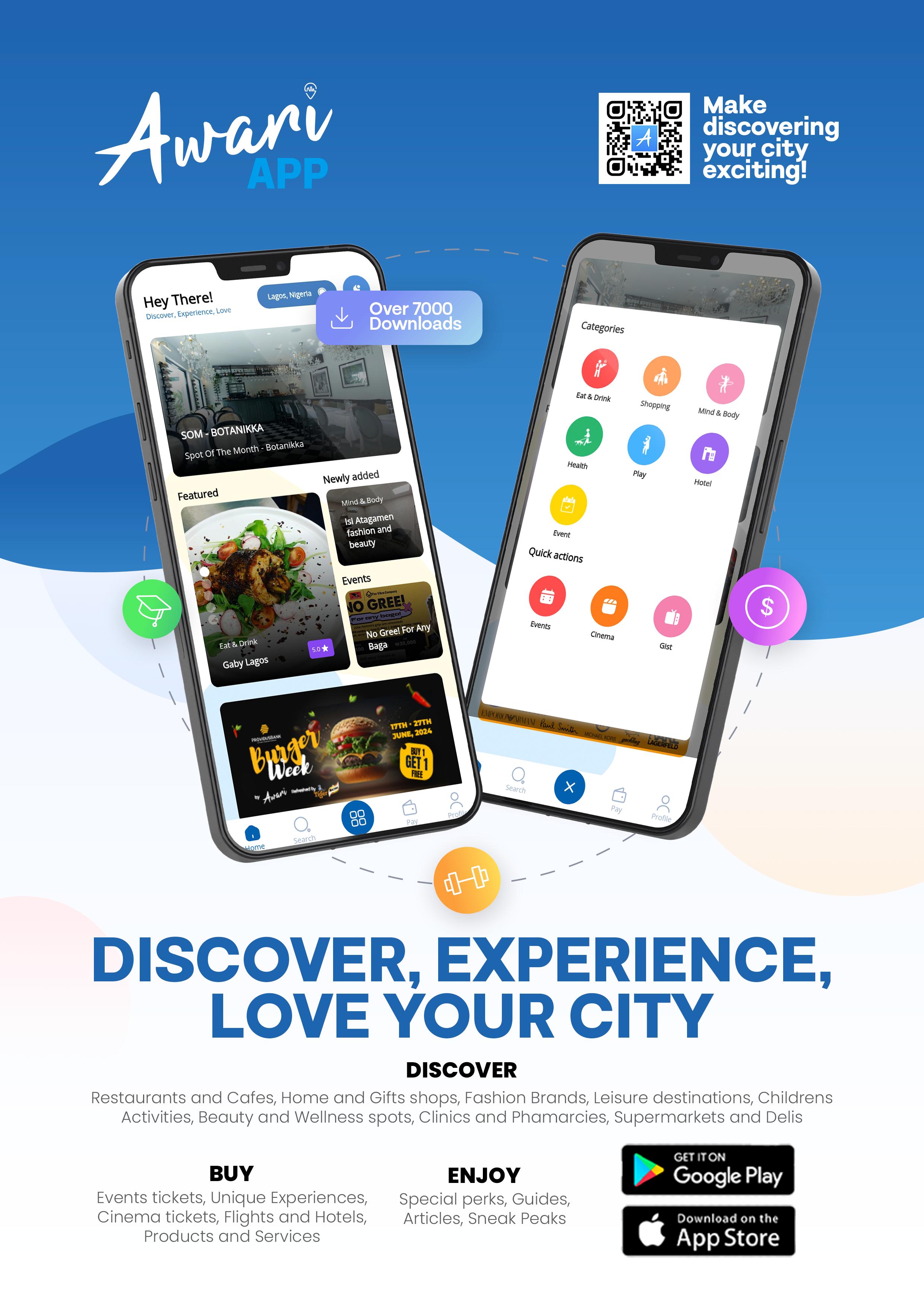




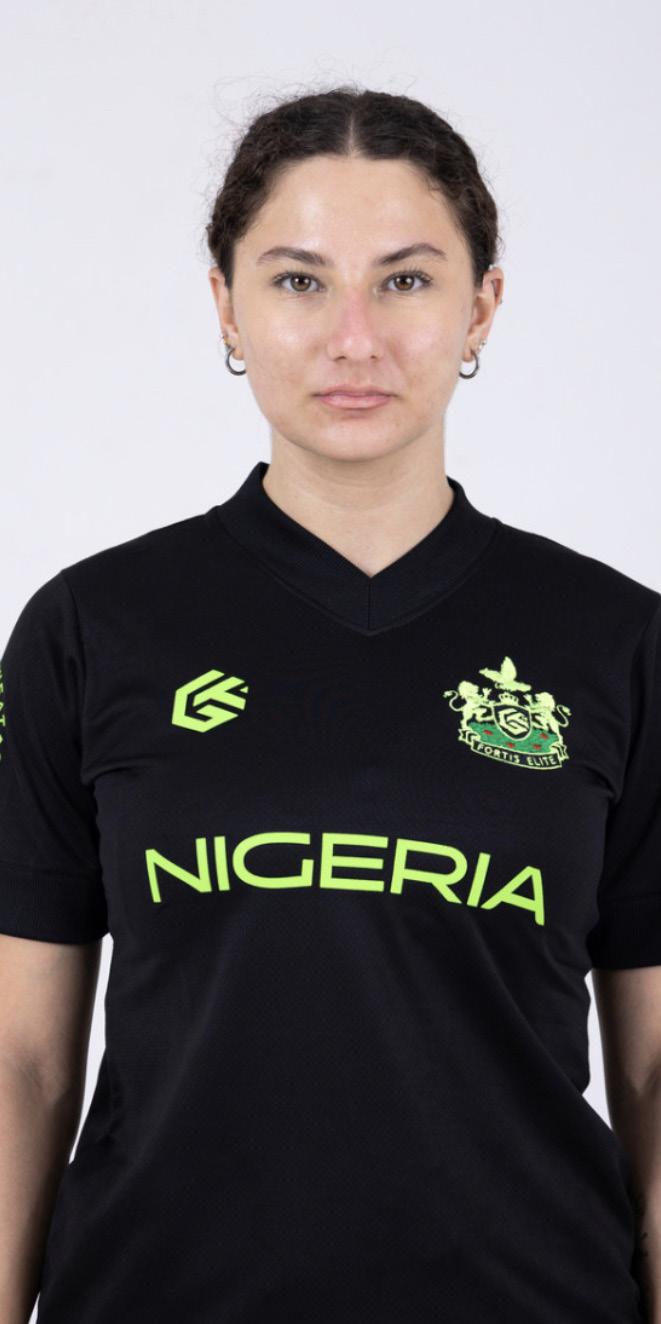




Elvis Osifo Editor-in-Chief, Lost in Lagos Plus Magazine IG: @edo.wtf












Elvis Osifo Editor-in-Chief, Lost in Lagos Plus Magazine IG: @edo.wtf

“This is our very first Sports issue.”
There’s a lot to unpack in that statement. I mean, “Yay, but how come? How come we’ve never had one?
This, dear reader, is just a microcosm of how sports have been, and are currently being overlooked in our dear country. You think we love sports? Well, it’s possible to love something and still neglect it.
In putting this issue together, I’ve come to see more clearly than ever: Nigeria has always been sitting on a goldmine, though overlooked, underfunded, but bursting with promise. From the raw thunder of Dambe arenas to the quiet strategy of Golf, from children learning to sail on the Lagos coast to cyclists carving freedom through the weirdness of our streets.
There’s genius here. Grace. Discipline. Purpose. And it’s ours. Yet, what do we do with it? We dissolve the Sports Ministry. We undercut our athletes. We create no real infrastructure, no pipeline, no future. We treat sport like a playground hobby, not the global soft-power behemoth that it is. And in doing so, we make an ‘own goal’, again and again.
LOST IN LAGOS 9.5 April 2025
We still haven’t connected the dots between national pride and global power. Sport is more than sport. It is diplomacy. It is youth development. It is education. It is business. It is tourism. It is innovation. It is national branding. And if we get it right, it is our future.
We tried to make this issue a transportive one, so that with every page turn, you can get an exclusive insider into the different sports, the business of it, and the people championing them. Inside, the Lagos Yacht Club takes Sailing, Showtime takes Flag Football, the Nigerian Rugby Football Federation takes Rugby, the Lekki Volleyball Club takes Volleyball, the Ikorodu City Football Club takes Football, Crossflex takes Golf, Cycology takes Cycling, and the AWFC takes Dambe. Check out our list of top 10 places to play sports in Lagos, and our list of top 5 local events in Lagos.
We must stop being spectators in an industry we should be dominating. This is the biggest issue yet, I mean, take a look at the size. So let’s get started, shall we?
#DiscoverNigeria
#ExperienceNigeria
#LostinLagosPlus
#LostinLagosPlusMagazine
Title: The ‘Passport’ Issue FOUNDER Tannaz Bahnam PUBLISHED BY Knock Knock Lifestyle Solutions
Ltd PRINTER Tee Digital Press EDITOR-IN-CHIEF Elvis Osifo EDITOR Pelumi Oyesanya DESIGN Ernest Igbes CONTRIBUTORS Elvis Osifo, Pelumi Oyesanya, Ernest Igbes, Matildah, Mona Zutshi Opubor, Kayode Oguntayo, Azeez Amida, Frank Ozomah, Temitope George, Tolu Adesemowo, Azeez Ladipo, John Shidiak, Daniel Watts, Hugh Thorely, Boma Alabi, Chiamaka Kanu, Jumai, Farouk Olawale Folawiyo, Waliu Ojetoye, Harrison Austin, Ziko Ezekiel, Adewale Emmanuel Toriola, Akinola Alli, Veronique dos Reis, Ibrahim Sagna, Emmanuel Okona, Coronavirus, Dan Alutan, Jeremiah Garba, Dr. Robert Ekat, Adaobi Nnorukah, Odafe Gbegbaje Chamuke, Pomovina, The Natalia collection Cover Credits The Padel Club

Every month, three products are selected from businesses in Nigeria and shared with you to appeal to your senses. They range from cool, functional items that become indispensable to intimate items that make thoughtful gifts to artefacts you can splurge on and everything in between. This month, I made three picks for sporty functionality and pizazz.
Gabriel Tosh Fortis Elite Jersey The Real Sportswoman
Every athlete desires a sense of freedom in their movements. Nobody wants to run, swim, or jump while feeling restricted. Gabriel Tosh’s Fortis Elite jersey delivers that sense of freedom and much more. Made from a premium blend of fibres, it combines style with practicality. Available in seven colours and suitable for all genders, it truly is a luxurious choice.
IG: @gabrieltoshluxury


Sweat can be an athlete’s worst enemy, especially during long days of activity. It’s not ideal for all that talent to be overshadowed by bad odours. The Romano Classic Deodorant Roll-On is here to help, leaving your sweat smelling fresh and sweet. This product features a blend of aluminium chlorohydrate, propylene glycol, cosmetic alcohol, and Laureth-4, which work together for quick evaporation, skin protection, and a delightful fragrance. They’ve got everything you need covered.
IG: @romano.ng


A BIT ABOUT ME:
Knee Brace Support Wrap Your Knee In Comfort
A true sportsman understands the importance of injury prevention and recovery. The KK Kano knee support is crafted from breathable and flexible fabric, providing stability and protection for your knees during high-intensity activities. Compete for that trophy with confidence, and if you do encounter any setbacks, this support will aid in your recovery. It’s the perfect companion for any sports enthusiast.
IG: @kk.ng


I’m a 20-something-year-old living in Nigeria, so you know I’m constantly tired. I spend way too much time obsessing over self-care, food, tech, and anything else that makes my life easier, making me your perfect plug for anything! Like most people, I find randomly shopping online at odd hours therapeutic, so much so that if you look into your mirror and say “retail therapy” three times, I will appear.

Featured Columnist
Mona Zutshi Opubor

Reality and fantasy intertwined in my childhood home. According to my parents, they were the two greatest people who ever lived: the kindest, smartest, most generous, etc. This kind of black and white thinking is common in homes with addiction issues, which run through my father’s line like veins in a piece of Stilton cheese.
The corollary–and often repeated message–was that my brother and I were the worst, most shameful children ever. We were called losers from the time we were small, and my parents were baffled how two perfect people had produced such rejects. They have a word for this kind of parenting now, and that word is ‘abuse’, but don’t worry about me. I survived and moved to Nigeria to find my happily ever after.
My parents were powerful fantasists, and we shared in their delusions. When you grow up in a dysfunctional environment, you can’t look at things too closely.
Children naturally trust their parents, and in homes where kids are unwanted or unloved, it is especially important to cling to the family message.
I was always puzzled about sports, though. If my dad was the most virile man around, why was he so tiny? Why did he get creamed when he played against his buddies in tennis? Why did he say he swam across Dal Lake twice as a boy, yet at the beach, he mostly posed on the sand, trying to look handsome without entering the water? How was he the best cricketer of his generation, yet there was no proof? It was confusing, so I tried not to wonder.
As my brother and I grew older, our lack of athleticism became apparent. Here we were, offspring of the world’s greatest athlete, and we were mediocre at sports. When my brother joined the wrestling team, the only match he won was the one against Perkins School for the Blind. I couldn’t help but wonder if his eyesight

lent him a comparative advantage. Likewise, I played field hockey and softball with little success; it baffled me that I ran as if stuck in molasses, batted like I was swatting a fly and wasted my reflexes on flinching and cowering in fear.
I was accustomed to being brilliant at academics, but sports were different. Even though I raced my chubby, little body over the neighbourhood hills to train in the summer, on the lacrosse field, lanky girls swept by me, stole the ball and scored before I knew what had happened. One day, we played football inside the gym, and I tried to kick the ball into the goal. To my surprise, it went in the wrong direction and ended up sailing through a basketball net, several feet above its target. “I will count that as two points,” I told myself, treasuring the memory to this day.
At university, I met a boy, and we fell in love. One day, I was chasing him across campus—literally, not metaphorically—and I couldn’t catch him. When he stopped to wait for me, I caught my breath and

managed to say, “I’m surprised you’re so much faster than I am.”
My boyfriend–now husband–was gobsmacked. “I’m an all-American athlete. You thought you could outrun me?”
I looked at him, unsure of how to respond. I couldn’t explain why I thought I could run faster than a man in the U.S. Olympic training pool. Perhaps delusion is also genetic.
Years passed, and this man and I had children. They inherited his sporty genes, thank goodness. I have gotten to live athletic glory through our kids, and it has been better than I imagined it would be. When they compete for their schools and triumph, I scream with reckless abandon, savouring the glory that comes from success in sport. There is nothing like being an athlete, and what my parents never understood is that many aspects of life, especially the important ones, can’t be faked.

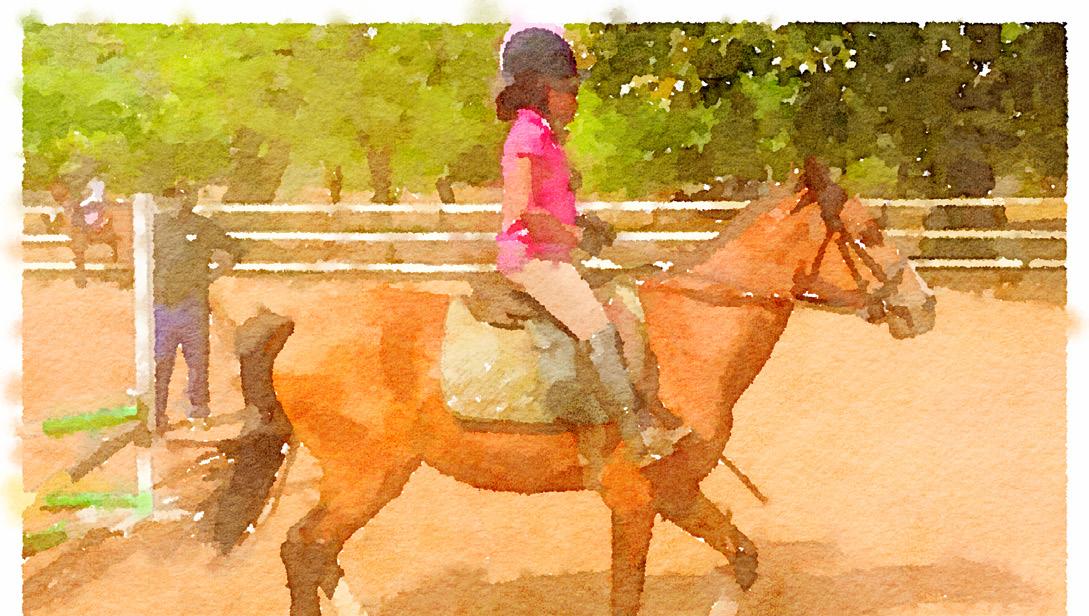


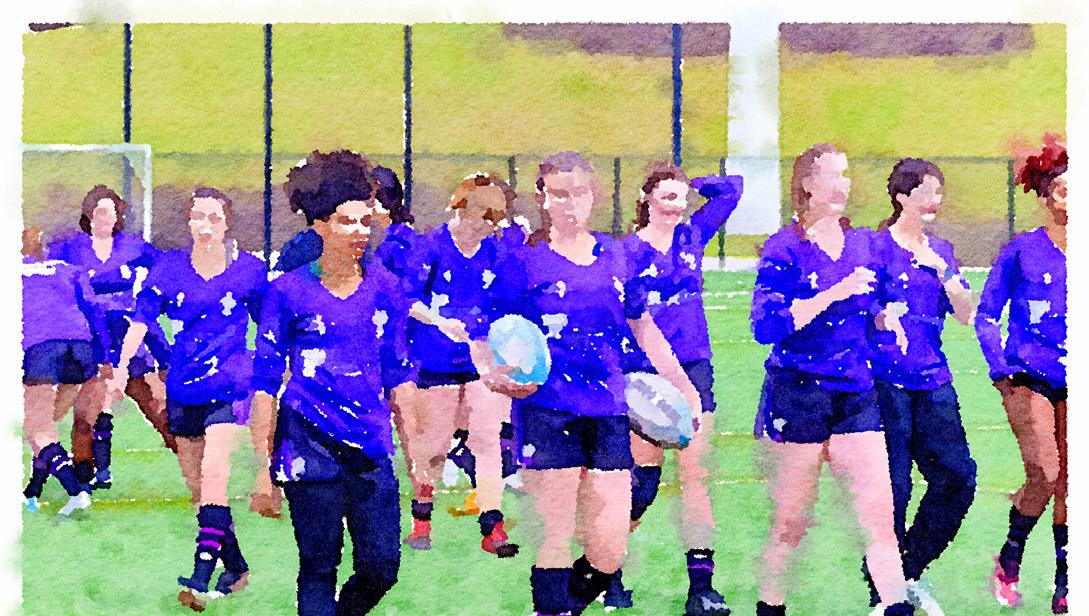
Mona Zutshi Opubor is an IndianAmerican and Nigerian writer. She holds an MSt in Literature and Arts from the University of Oxford, an MA in Creative Writing from Boston University and a BA in English Literature from Columbia University.
Read more at www.monazutshiopubor. com

By Tannaz Bahnam
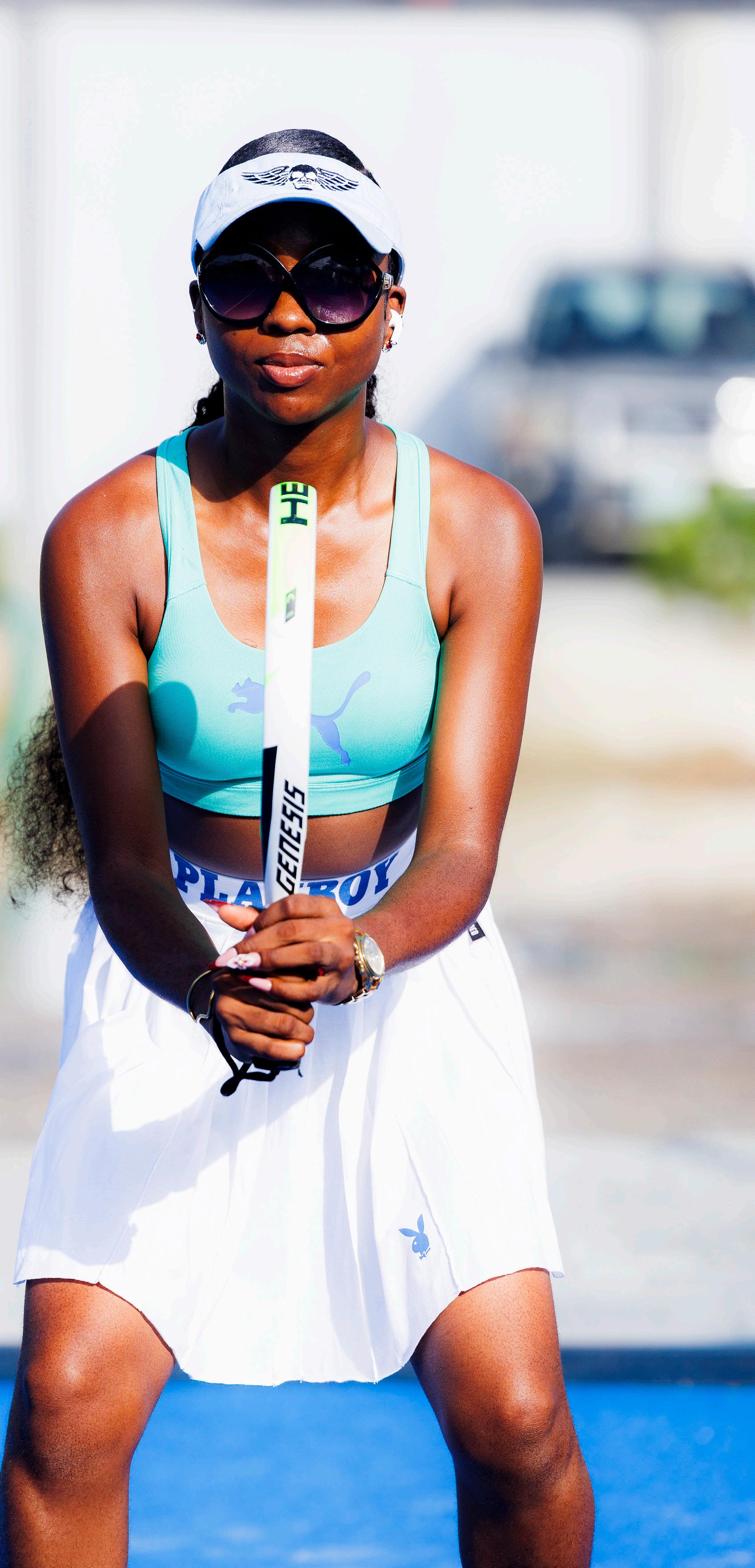

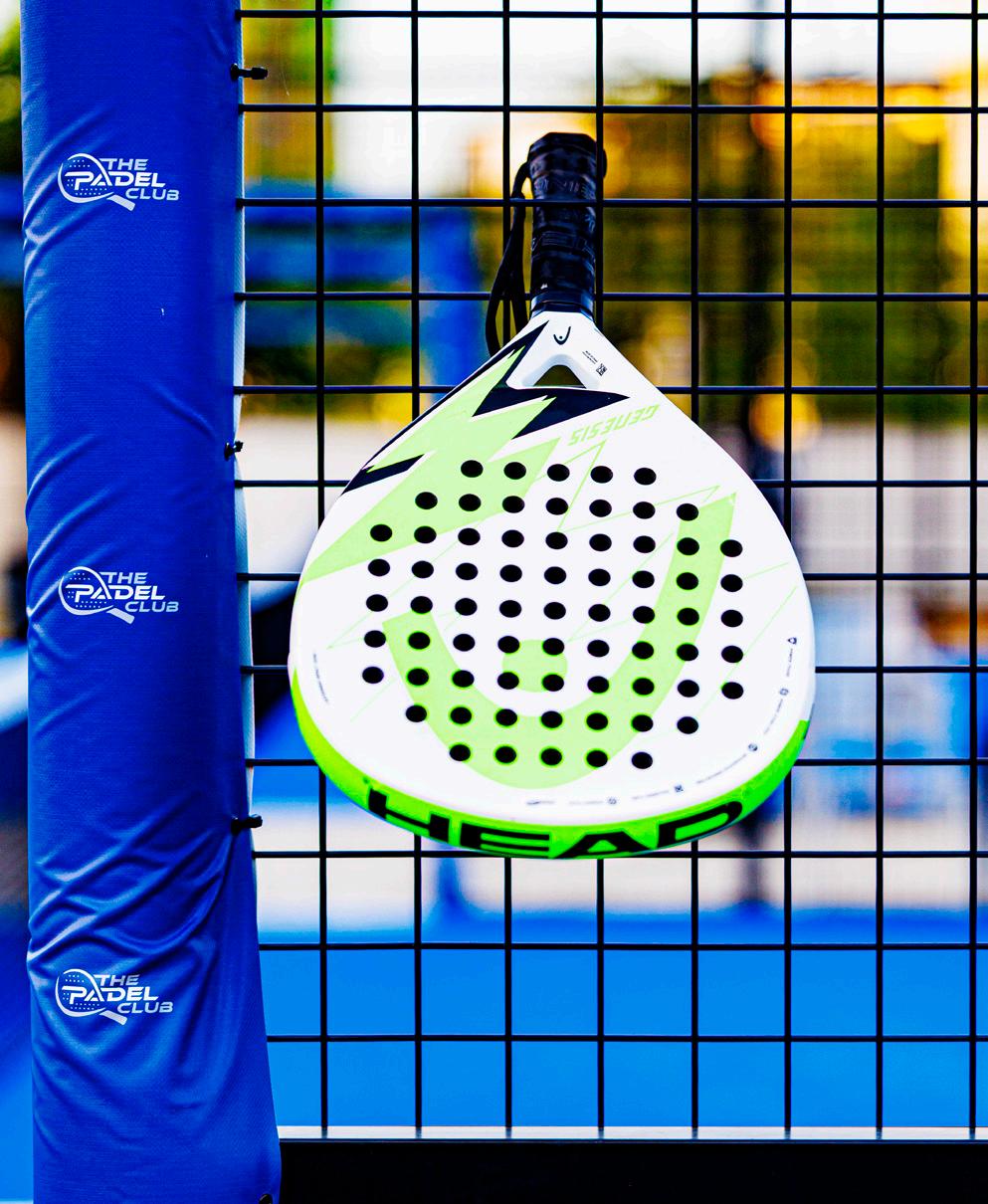
In the heart of Lagos, tucked away in a serene, tree-lined expanse, lies a sports facility unlike any other in Nigeria: Padel Club Lagos. With four professional-grade padel courts, built to the same exacting standards as those on the World Padel Tour, this club is not only setting a new benchmark for racquet sports in the country, but it is igniting a full-blown padel revolution.
These state-of-the-art courts were constructed by Spanish experts who specialise in international tournament specifications, ensuring that players experience the same
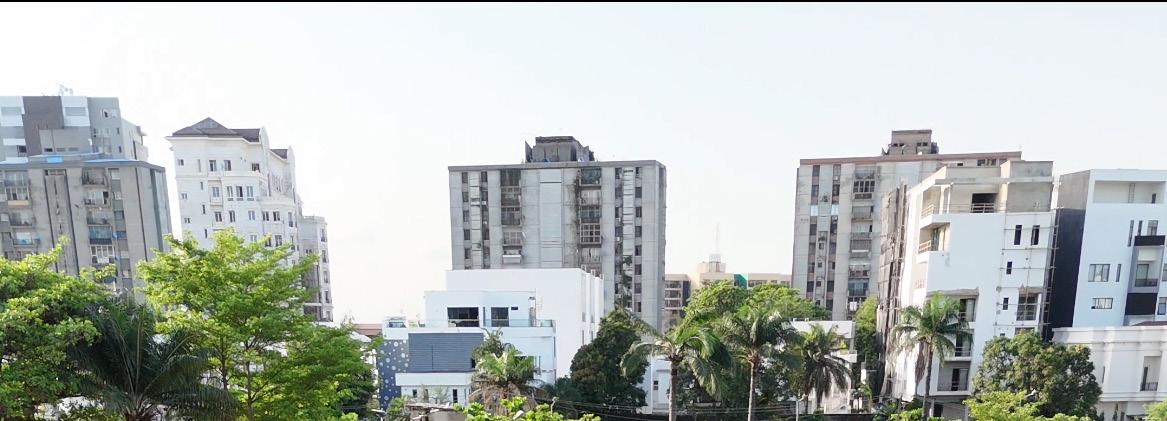

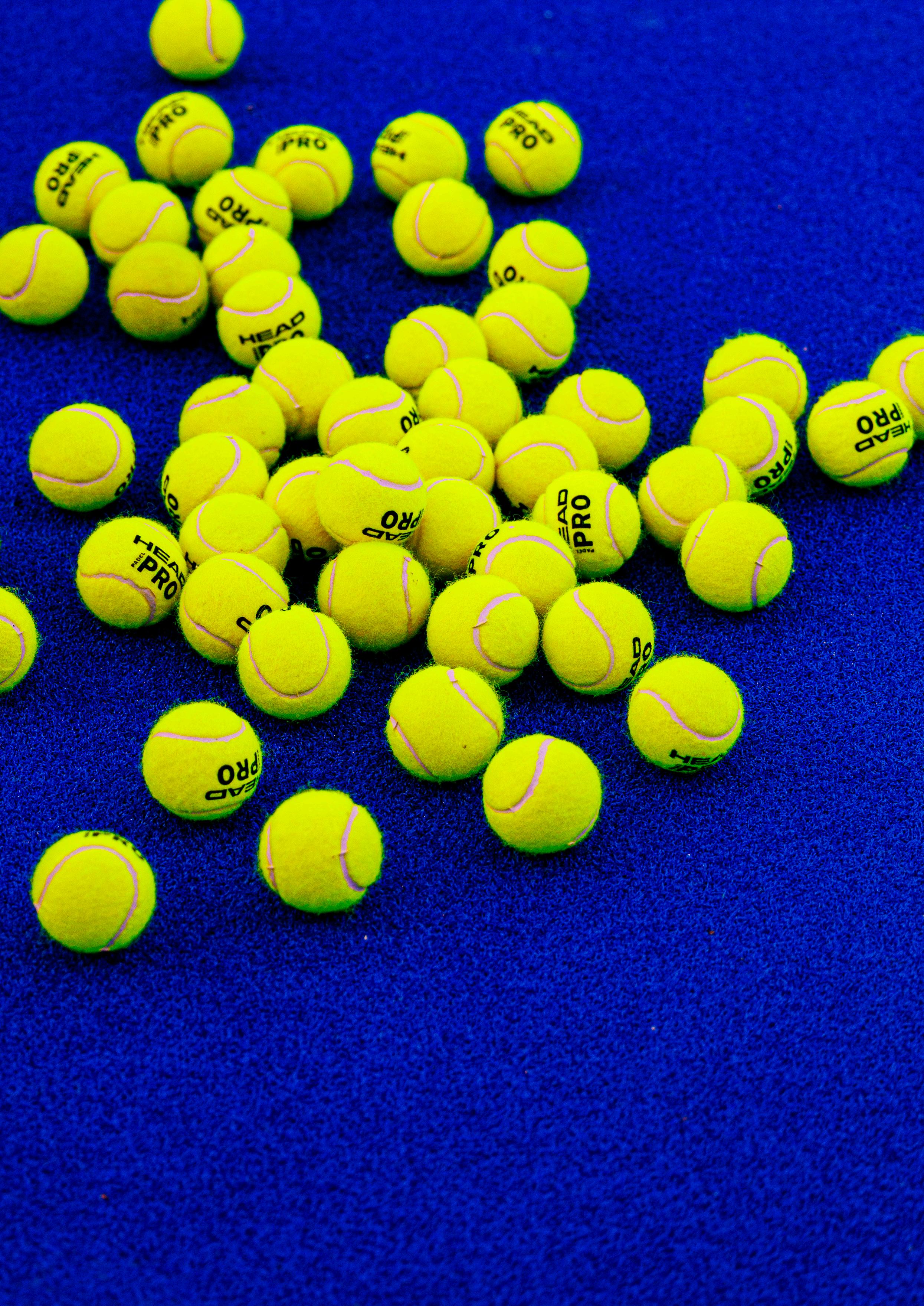

One of the most attractive aspects of padel is its accessibility. Unlike other racquet sports that can be intimidating to beginners or require exclusive memberships, padel welcomes everyone. Whether you’re a seasoned athlete or a total novice, the learning curve is gentle, the gameplay forgiving, and the experience undeniably fun. At Padel Club Lagos, the doors are open to all. No membership required. Just book a court, grab a racquet, and step into the game.
And if you’re just starting, you’re in good hands. Padel Club has three professional coaches on site, ready to introduce you to the game, teach the basics, and help you sharpen your skills. Whether it’s your first swing or you’re looking to level up, there’s expert guidance available every step of the way.
Played in doubles, padel is inherently social. It’s one of the few sports where four

people can share a court, compete, laugh, and bond all within an hour. This social fabric is what sets padel apart. It’s not just about the scoreline; it’s about connection, camaraderie, and community.
On any given day, you’ll find a vibrant mix of players, from young professionals and seasoned entrepreneurs to visiting expats and local enthusiasts, rallying, spectating, or simply soaking in the atmosphere. The club has quickly become a gathering point, not just for sport, but for culture and lifestyle. As the grounds continue to grow, so will the ecosystem around them.
Soon, a sports shop and modern changing facilities will open on site, further enhancing the player experience. And with spacious grounds shaded by growing trees, the environment is as calming as it is energising, a rare find in a city known for its hustle. The natural surroundings add an idyllic quality to the facility, making
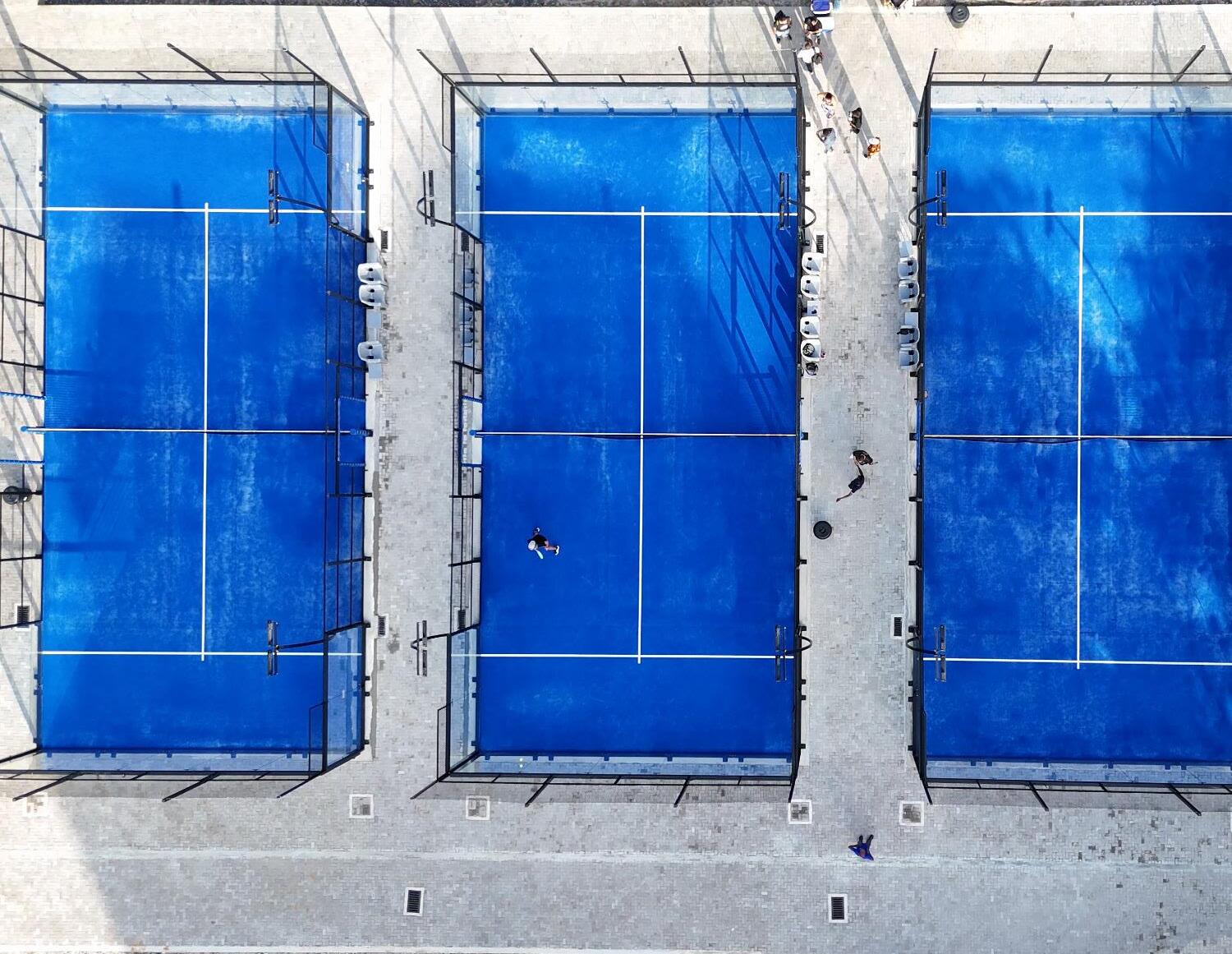
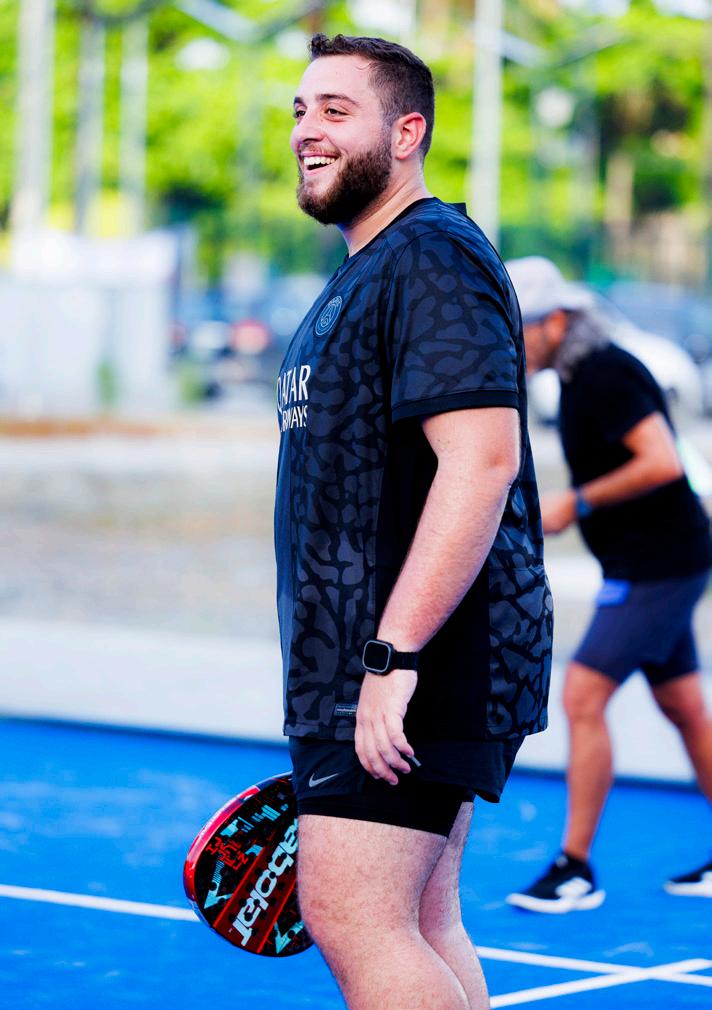
it as much a sanctuary as it is a sports club.
But this is just the beginning. As padel becomes more entrenched in the city’s social and athletic landscape, Padel Club Lagos is set to evolve into more than a sports venue. With events, leagues, and lifestyle experiences in the pipeline, the club is positioning itself at the centre of a cultural shift, where wellness meets fun, and sport meets community.
In a city that thrives on energy, connection, and ambition, it’s no surprise that padel is resonating so deeply. And whether you’re here to train, play, compete, or simply connect, one thing is certain: this is where Lagos comes to play.
Padel Club Lagos 57, Glover Road, Ikoyi, Lagos App: thepadelclub-nga.matchpoint.com IG: @the_padel_club_lagos
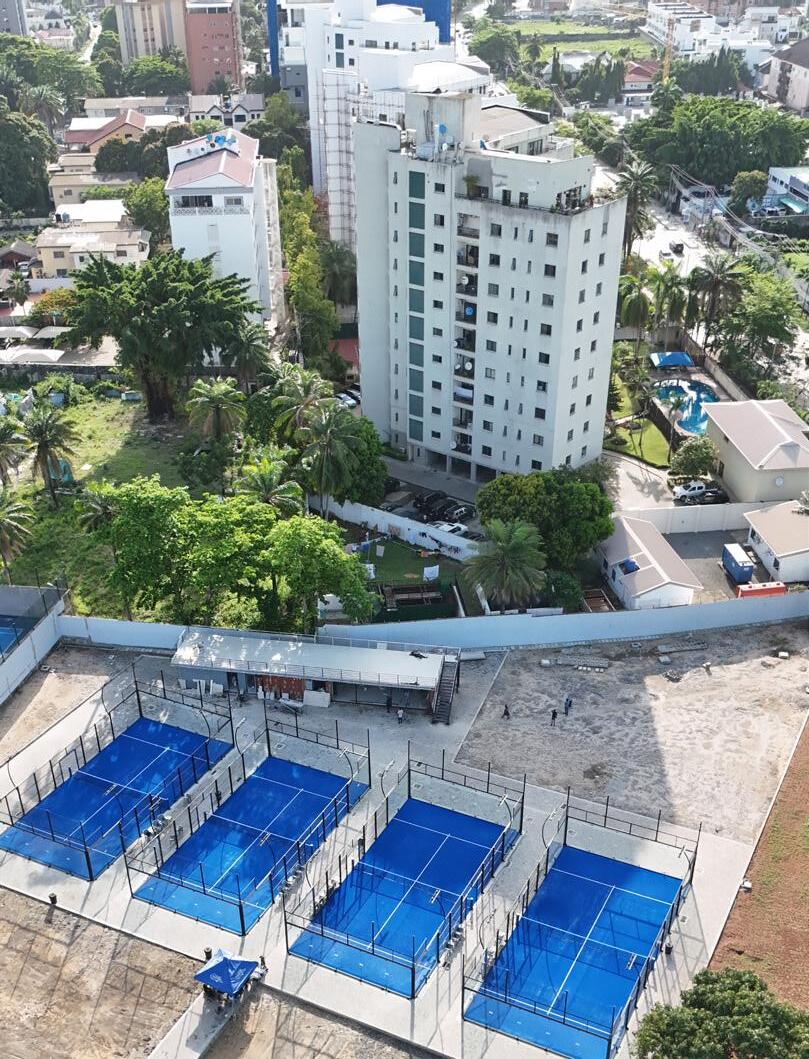

Interview
Waliu
Ojetoye
Team
Captain, Ikorodu City Football Club
MThe mindset and skills that have helped me over time are confidence, communication, awareness, and adaptability
eet Ojetoye Waliu, captain of Ikorodu City FC and a right-back player. As a foundational club member since its inception in January 2022, Waliu brings both leadership and skill to the pitch. Known for his ability to relay the coach’s vision and protect his teammates, he has become a central figure in the team’s growth. This season, he has recorded 9 assists and 1 goal across league and cup competitions. Under his leadership, Ikorodu City has won two Lagos FA Cup titles.

You’ve been with the club since its very first day. How would you describe the journey from inception to now, especially through the highs of winning two Lagos FA Cups?
The journey began with us gathering several talented players that our community can be proud of, and since that moment, we’ve been working hard to get an NPFL ticket, which we’ve achieved. Winning the Lagos FA Cup two times in a row has been a major achievement for the team.
As captain, how do you inspire and motivate the squad before big matches?
I remind them of how we started as a team and where we are presently. I also talk to them
about the hard work we have put into practice, and talk about unity and love, which have been helping us all in the games.
Right-back is a demanding position. What mindset and skills have helped you balance defensive duties with contributing assists and even getting on the scoresheet?
The mindset and skills that have helped me over time are confidence, communication, awareness, and adaptability.
As team captain, how do you approach leadership both on and off the pitch, especially with a squad that’s been building its legacy since 2022?
As a captain, I make sure I lead

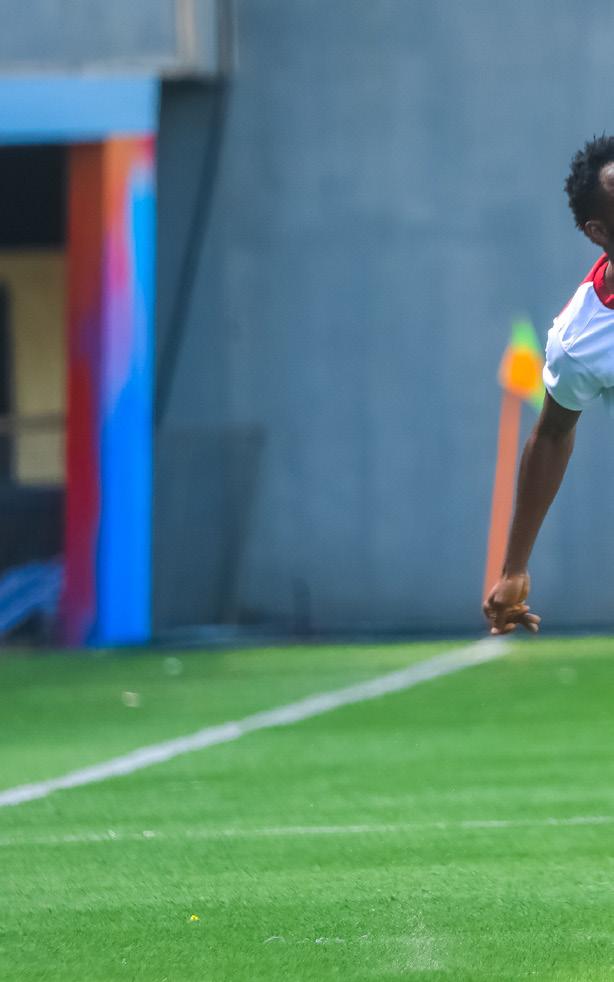
by example by showing good character and by assessing our opponent’s strengths and weaknesses. Off the field, I make sure I create boundaries for the team to grow while mentoring the younger and less experienced team members.
What lessons from your journey as a player and leader would you say are important for Nigeria’s evolving sports culture?
As a leader, the system requires me to do a lot of hard work, be persistent, patient, and accept a lot of things from the team, oftentimes, to move forward for unity.



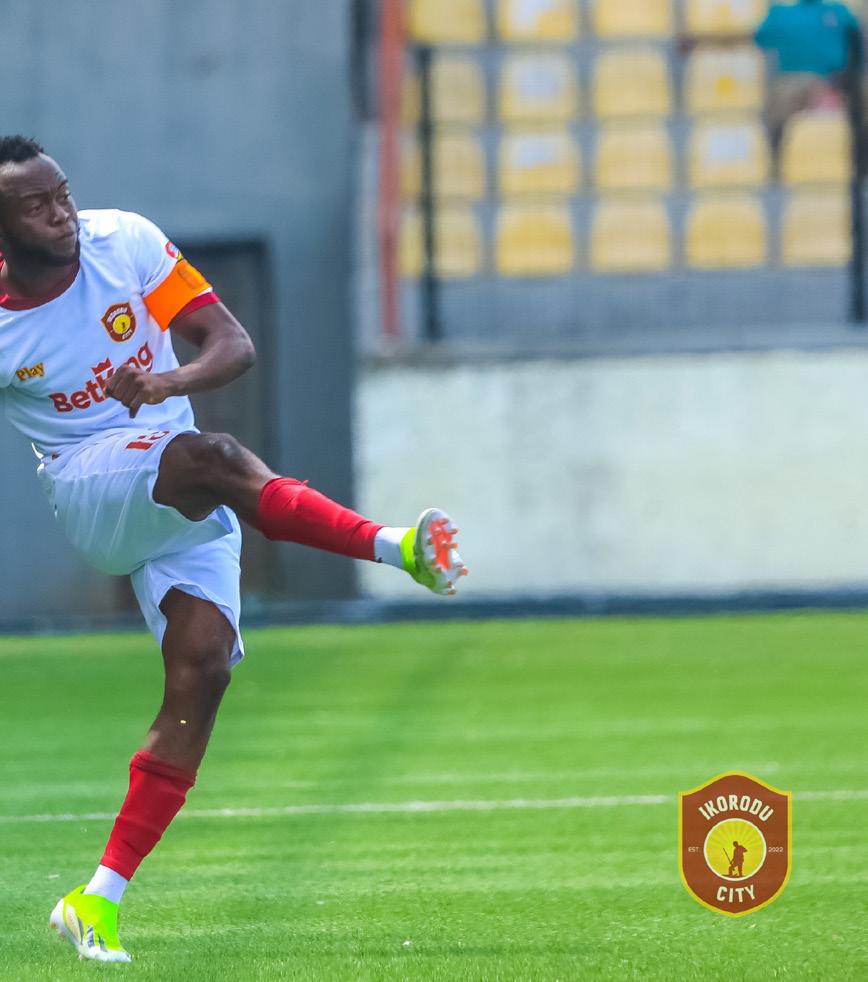

Harrison Austin Uzondu is the Vice Captain of Ikorodu City FC and plays as a left wing back. As a core member of the squad since its inception, he currently serves as the team’s third captain. Renowned for his creativity and vision on the pitch, Harrison leads the assist charts in the NPFL 2024/25 season with 9 league assists and 1 goal. Across all competitions this season, he has made 13 goal contributions (10 assists, 3 goals), making him one of the team’s most impactful players.
From your early days to now, how has being part of a club like ICFC strengthened your belief that football can build community and hope?

When I started with Ikorodu City FC, they made me realise I could further my career to the highest level. They showed me that I could be better than who I am and achieve my goals.
What has been the most memorable match or moment for you since joining the club, one that defines your growth or spirit as a player?
My most memorable match
that I can remember, which never skips my mind, was during our second season, the NNL “Ikorodu City against Adoration FC” during which I scored a goal in the dying minute. Also, Ikorodu FC against Lobi, where we did a comeback from 2-2 to 4-2. I made 3 assists in the game. The circumstances of the match made me realise I needed to do better and improve my mentality, and I did and got the job done.
How would you describe the chemistry between you and your fellow defenders and midfielders?
Considering the team’s structure, I can see myself walking a long road with this team and furthering my career to the highest level.
With the highest assists in the NPFL this season already under your belt, what keeps you hungry for more?
Even with the highest assist in the NPFL, what keeps me hungry for more is that I have a set target for myself that hasn’t been met; this is the only thing that keeps me going and hungry for more, plus I have a vision.
Considering the team’s structure, I can see myself walking a long road with this team and furthering my career to the highest level

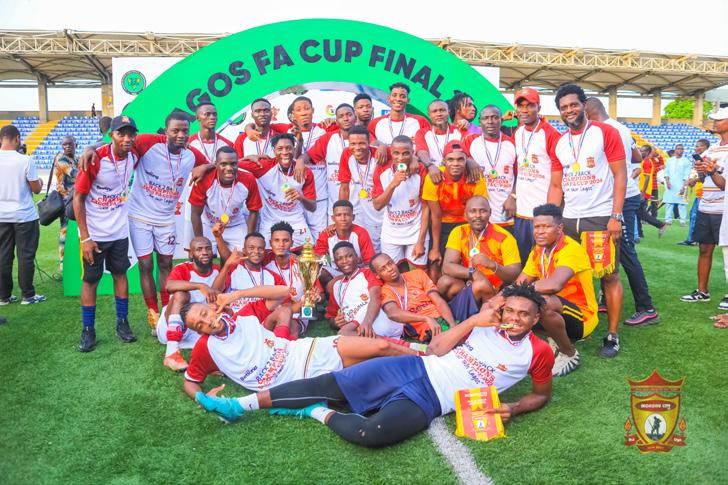
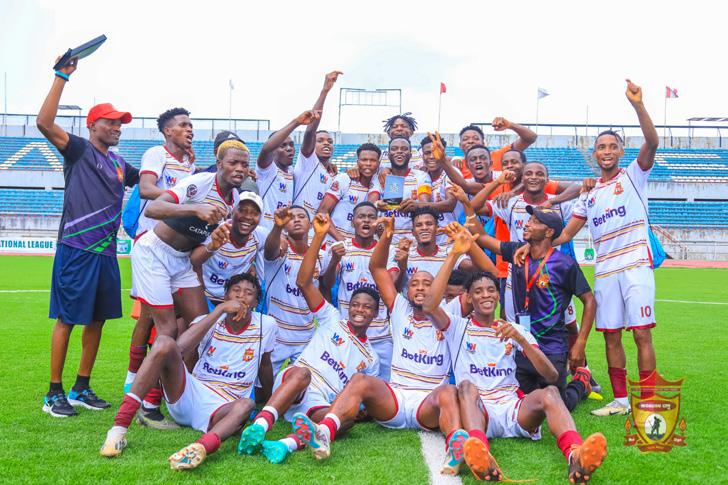

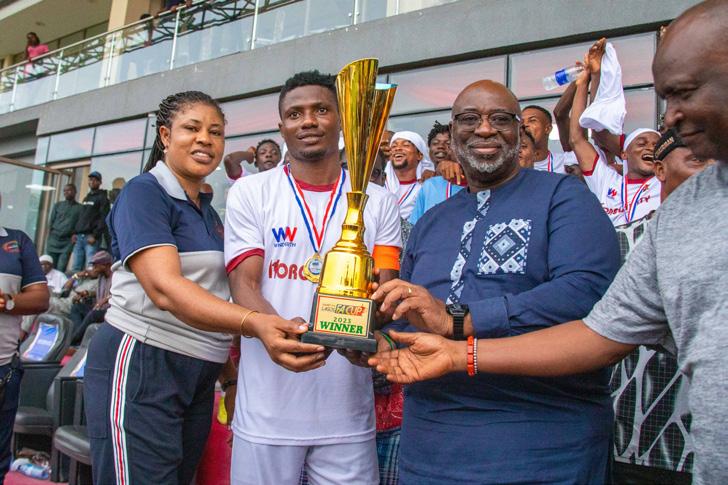
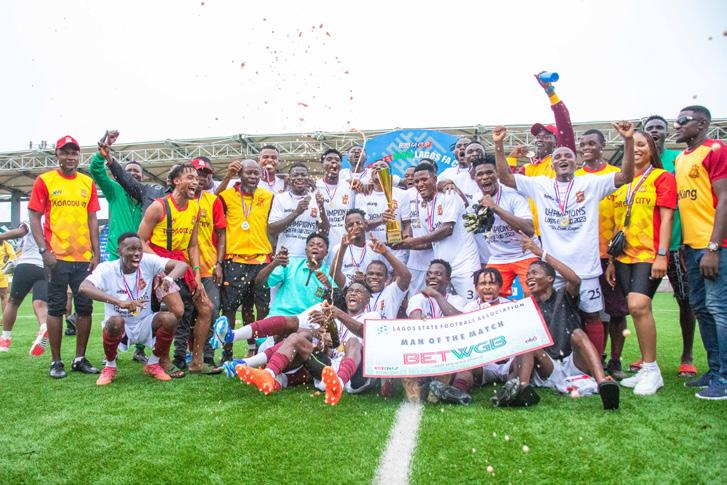
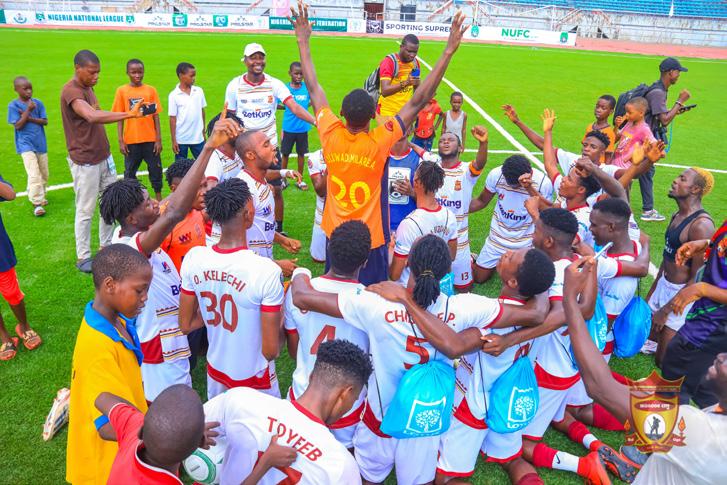

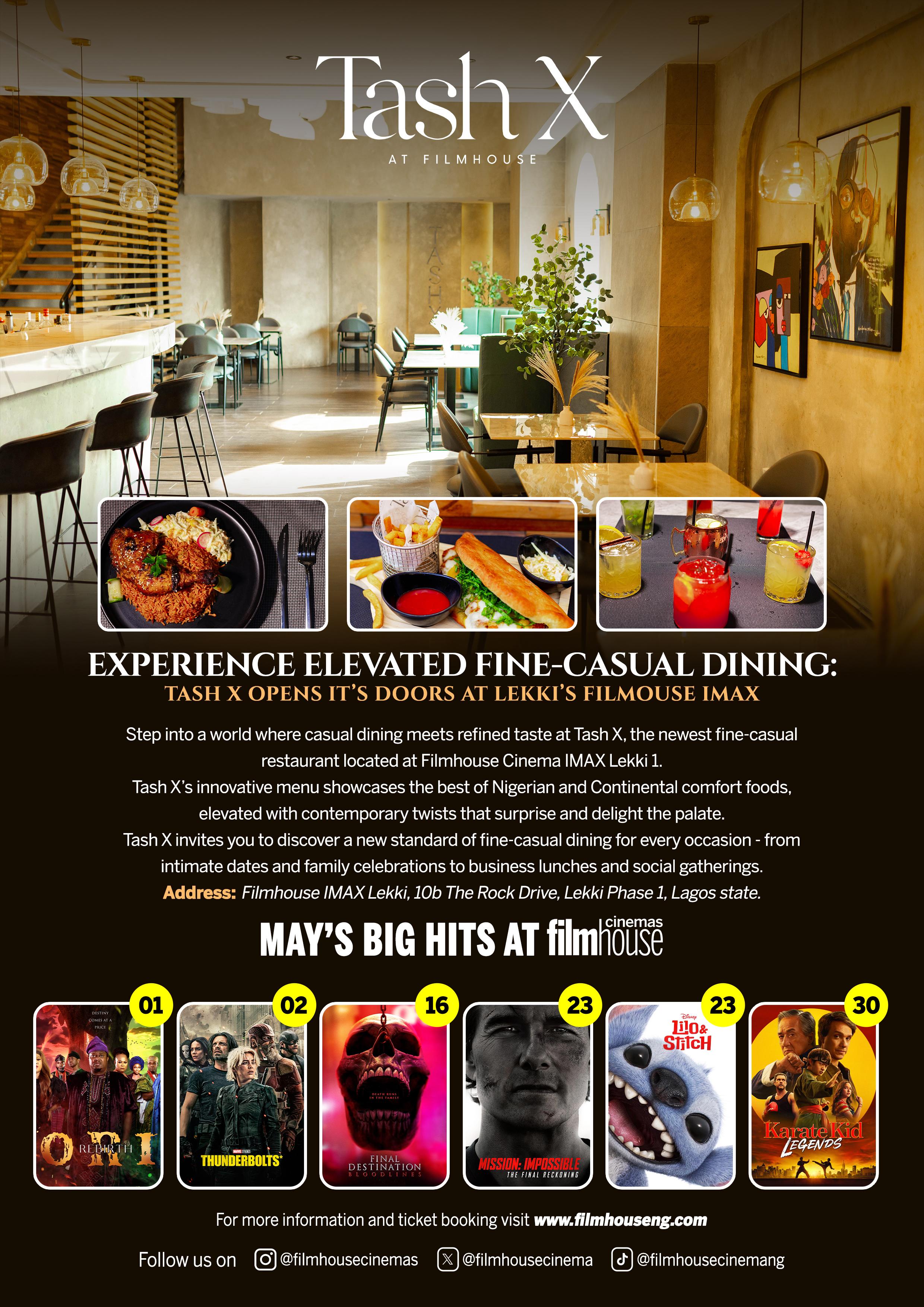

Interview Kayode Oguntayo Sports Leader

Prince Kayode Oguntayo is an Agripreneur and a passionate sportsman with over five decades of active involvement in sports. From a young age, he has embraced a wide variety of athletic disciplines, spanning team and individual sports, involving dribbling, hitting, throwing, and catching, across land, sea, and river. His lifelong dedication to sports reflects both his versatility and enduring enthusiasm for physical activity and competition.
You’ve had the rare privilege of leading and shaping multiple sports ecosystems in Nigeria: from golf and rugby to triathlon. What consistent threads or challenges have you observed across these different disciplines? The word discipline is consistent with all sports. Amongst other things, it teaches you to be disciplined in the playing, administration and running of sports. And this comes into use because the challenges of sports development and administration can be frustrating. Even when you have the will and can devise the way, funding is the ultimate challenge in Nigeria. You must be dogged, resourceful and think out of the box. There is latent talent in Nigerian sports, but the challenge is creating the platform to extract the rough diamonds.
From your vantage point, what is the current state of sports in Nigeria, at the grassroots and elite levels? What are we doing right, and what are we still getting wrong?
We still haven’t moved the needle in the development of sports in Nigeria, especially with the latent talent we have in the country. The challenges are structural, technical and of course, financial. We must select sports where we have competitive advantages; speed, physical strengths and natural athleticism to create a pathway from grassroots to the elite levels. It is doable because where was the movie and music industry a couple of decades ago? Now, Nigerian stars are dominating globally.
How would you describe Nigeria’s position on the global sports stage today? What are our greatest assets, and what structural shifts need to happen for us to become formidable global contenders?
We are obviously on the map when it comes to “our national sport,” football, on the individual level; and Lookman and Osieme winning the CAF Player of the Year, back-to-back, affirms that. Also, the number of players in the top football leagues in the world shows this. Likewise, basketball is another sport where we shine, but

individually. The challenge is transforming these individual successes into national team successes, starting from the age-grade levels and moving to the senior teams.
We must use the “current stars” to inspire kids and youths to want to become the future stars (as it happening in the music industry), but the structure must be in place to identify them, train and develop them, and expose them to regular and international competitions; enabling a conducive environment for them to automatically want to play for and represent Nigeria. The key pillars we must build upon are structural, technical, and financial. That’s how we can become formidable global contenders in the sports where we have competitive advantages.
From your experience, how can Nigeria better harness sports as a tool for economic growth, youth empowerment, and global branding?
Sports have never been just a recreation. That viewpoint has been the limiting factor in its development. Sports is a legitimate career, a lucrative business and impactful economically, socially and from a governance perspective. With a mean age of 16.7 years of a population of more than 220 million, Nigeria should and will become a sporting powerhouse, as we probably have the youngest and largest talent pool per capita in the world. I once again use the music industry as an example. We can harness sports to change lives, empower and become a domineering global brand.
With private sector involvement still limited, what models of sports funding and partnership have you seen work best in Nigeria? How can we unlock more support from the government and corporate Nigeria?
Private sector involvement is the only way! There is no discussion on that. We must find the incentive for the private sector to take the lead. The private sector has in-built motives that do not exist in the public sector. There may be PrivatePublic-Partnerships (PPPs) where the public sector sets
policies and directions, but the driver must be the Private sector in management, funding and marketing. These are what the private sector excels in, and therefore must be applied to sports.
What role does storytelling, through media, film, magazines, and digital platforms, play in shaping the perception and support of sports in Nigeria? Are we telling our sports stories well enough?
This is very crucial because perception becomes reality. Positive sport development stories must be narrated and disseminated in Nigeria, especially with the digital age we are in now and the access and power of social media.
You’ve been part of global sports conversations. How is Nigeria being perceived internationally in terms of our athletic potential and sports management?
Right now, everywhere in the world, Nigerians are popular and loved. Obviously, the secret to this is Afrobeats and the talents emerging from the country. This positivity is crosspollinating to our athletic potential, and we must put round pegs in round holes to drive the management of it.
If you had the attention of every young Nigerian athlete and aspiring sports administrator right now, what is one piece of advice you would give them about the future of sports in Nigeria and the role they must play in it?
Identify what you are talented at. Research, educate, and train yourself to become the best. Believe in yourself and be disciplined to endure challenges, and never give up on your dreams. Make or find a way to get on the path to bring it into fruition.
Last but not least, what’s your favourite thing about the Lost in Lagos Plus Magazine?
You are always putting Lagos on the map and helping to discover the hidden treasures of the city!
With a mean age of 16.7 years of a population of more than 220 million, Nigeria should and will become a sporting powerhouse, as we probably have the youngest and largest talent pool per capita in the world. ‘‘

Interview Chiamaka Kanu Student-Athlete


Chiamaka Kanu is a secondyear undergraduate student-athlete studying Neuroscience and a dedicated member of the Hamilton College Swim and Dive Team. Her passion for swimming began at the age of four in the Ikoyi Club pool and has since grown into an international career representing Nigeria at local and global competitions. Now training in a new environment far from home, Chiamaka embraces the challenges and traditions of collegiate athletics, especially her team’s annual training trip to Florida.
What made you fall in love with swimming?
The community made me fall in love with swimming. Although sometimes the training was hard, I was surrounded by fun teammates and very supportive parents all around.
What changes would you like to see in your swimming team?
I would love to see more openness in my swim team and diversity.
What’s your favourite memory as a swimmer?
My favourite memory as a swimmer was the competition in Germany. Iman and I would always talk about packing our bags, what new swimsuit we were going to get, and what new friend we were going to meet. One of my favourite moments in the trip was exchanging our caps with the
other teams, and that’s how we met our friends from Ghana.
How has being part of clubs like Ikoyi Swim Club and Dolphin Swim Club helped you grow as a swimmer and as a person?
Being part of the Ikoyi Club swim club emphasised three important things: Hardwork, Respect, and Community. Hard work was essential to get good times, but along the way, you need to respect your competitors. And of course, none of this could have been done without the endless support and laughter of the community.
What are your dreams as a swimmer?
I am already living my dreams as a swimmer: representing my country and swimming in college.
I am already living my dreams as a swimmer: representing my country and swimming in college. “ “

Farouk Olawale Folawiyo
Receiver, Team Ikan Sports

Meet Farouk Olawale Folawiyo, a wide receiver for Team Ikan Sports, one of the newest but most ambitious teams in the Showtime Flag Football League. Though new to the league, Ikan Sports has quickly positioned itself as a team to watch, blending experienced veterans with fast-learning rookies. With a bold aim to become the first debut team in league history to reach the playoffs and clinch the championship, Farouk and his teammates are out to make history.
‘‘
Flag football has shown me that no matter the pressure or difficulty, you can overcome it with determination, dedication, and belief
You came into the league with fireworks: Rookie of the Year, back-to-back championships, etc. Did you expect such a meteoric rise?
I owe my Rookie of the Year success to my former teammates. They played a huge role in helping me learn and adapt to the game quickly. I came from a basketball background and had to step into a big role left by a top receiver on the team I was with at the time. I had to learn fast. Our championship wins were a team effort, and I’m grateful I was able to play a vital role in that success. I came into the game with a winning mentality, something I believe every athlete should have, and that’s the same mindset I’m bringing to Ikan Sports.
Switching teams in Season XII was a bold move. What motivated the transition, and how has it shaped your game?
The decision to switch teams wasn’t easy, as I had several
offers from other teams. But after a conversation with the team owner and quarterback of my current team, who said he wanted to win and enjoy playing football again, I knew I could relate to that. I chose to join a new team where I knew I could make an impact and play a vital role.
Joining a new team has helped me understand the game better and see it from a different perspective. I had to quickly adjust to a new quarterback and new teammates. It elevated my game because I now show up and show out for teammates who believe in me, and I believe in them, too.
What have you learned about teamwork, pressure, and trust through flag football?
In Flag football, or any team sport, you’re only as good as the next man on your team. That lesson has helped me in many ways, both on and off the field. Flag football has shown me that no matter
the pressure or difficulty, you can overcome it with determination, dedication, and belief.
What does it mean to be a young Black man in Nigeria playing a sport like flag football that’s not mainstream, and thriving at it?
Playing flag football in Nigeria means a lot to me. It gives me a platform to showcase my athletic abilities and express myself in a sport that’s not yet mainstream here. It has shown me that you can truly achieve anything you set your mind to and be great at it.
What would you say to someone who’s never seen a flag football game? What’s the one reason why they need to show up? You’ve got to see the speed, energy, and fun—flag football is nonstop action without the heavy hits, and anyone can shine. It’s pure excitement from start to finish!

Interview
Jumai
Wide Receiver, Warriors Flag Football Team
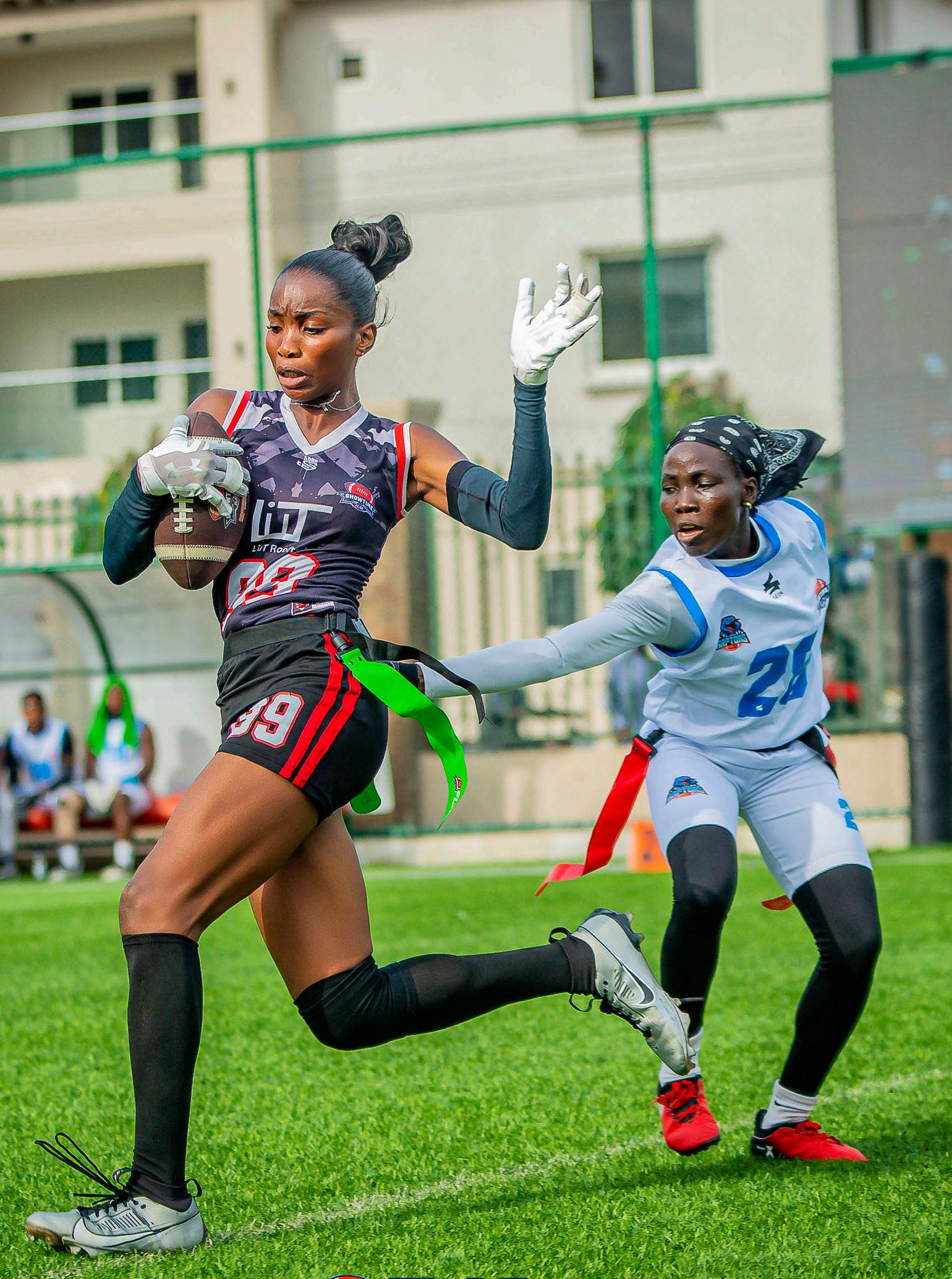
Beyond the stats and highlights, what does playing in Showtime Flag mean to you personally?
The Showtime Flag has become much more than just a league for me. Every time I put on that Warriors jersey and step into the Showtime Arena, I’m reminded that I’m part of something bigger than myself. The community we’ve built transcends competition, and these are relationships that extend beyond game day, so I am very grateful for it.
What does it mean to you to be the standout female player in a sport still growing in recognition in Nigeria?
Honestly, it’s a responsibility, a privilege, and humbling. Sometimes I still can’t believe how far I’ve come from not even knowing this sport existed to being seen as a standout player. It means a lot because I know so many incredibly talented women just need the chance to be seen, too. I carry that
jumai is a wide receiver for the Warriors Flag Football Team in the Showtime Flag League. Passionate about authenticity and creating empowering spaces, especially for women, she brings both skill and heart to the field. Known for their explosive offence and strong team bond, the Warriors have built a unique, family-like culture that sets them apart in the league. Jumai is proud to be part of a team that thrives on unity, visibility, and excellence.
‘‘ I know so many incredibly talented women just need the chance to be seen, too. I carry that with me every time I suit up, not to prove anything, but to remind myself that I’m part of something bigger
moments still give you goosebumps?
I will need at least 50 pages to respond to this. I wouldn’t have gotten that MVP title without my team and coach; everyone did their job well. And because they did their job, it made mine easy too. We had a tournament last year, the “Community Cup”, and we were down by 7 points. It was in the rain too, and with 2 seconds left on the clock, my QB hit me on that corner route, and boom TOUCHDOWN! It was fantastic! Seeing my teammates grinning, oh my! Their happiness made me happier, and I cried a little too.
What lessons from your journey so far as a player and leader would you say are important for Nigeria’s evolving sports culture?
with me every time I suit up, not to prove anything, but to remind myself that I’m part of something bigger. If my journey helps even one girl believe that there’s space for her in this sport, then it’s all worth it.
How did you first discover the game? Did you always imagine yourself catching clutch touchdowns?
Shout out to my friend Todun! We had plans to hang out that night, and she called to cancel because she had an impromptu scrimmage (didn’t know what that meant at the time), she explained, and I was like “okay! I’d come to watch”. I went to watch the scrimmage, immediately fell in love, and the rest is history. I hardly imagine anything, to be honest. I just want to catch every pass and hope that the next pass to me is also completed.
You had an unforgettable Season XI. When you look back at that MVP title, what
Showing up. Even when it’s hard, even when nobody’s watching. There’s so much pressure to always be tough, fast, and perfect, but we’re human first. I’ve also learned to be kinder to myself and others, because everyone’s carrying something you can’t always see. As sports culture grows in Nigeria, I hope we create environments where athletes can thrive not just physically, but emotionally and mentally too.
What would you say to someone who has never seen a flag football game? What is one reason they need to attend?
If you’ve never experienced flag football in person, you’re missing the perfect combination of a strategic chess match and athleticism. I don’t know if that makes sense, but if you’ve never seen it before, just come to one game, and you’ll feel the pulse of something special, something real. And maybe, just maybe, you’ll see yourself in it too, because the Showtime Flag experience goes beyond what you see on highlights. It’s something you need to feel in person, I lose my voice every weekend.
By Azeez Amida Chairman, Showtime Flag Football League

Flag football is a fast-paced, inclusive, and dynamic sport poised to change the global sports landscape. Played without tackling to the ground, where defenders pull a flag from the ball carrier’s belt instead of bringing them down, flag football is a game designed for the modern world: quick, exciting, and accessible. With its inclusion in the 2028 Olympics, the sport is set for a global surge, and the Showtime Flag Football League is positioning itself at the heart of this transformation.
At Showtime Flag Football League, we are doing more than playing the game, we are building a community and much more, an industry of sports entertainment. For three years, we’ve been quietly but deliberately investing in the business of flag football. I am a strong believer in the fact that Nigeria and Africa at large need more long-term investment in their foundational sectors, and sports is one of them. If we want a continent where growth is consistent and self-driven, we must stop waiting for change and start building the systems ourselves. That’s what Showtime has been doing.
Today, we are proud to say that Showtime Flag Football is the largest co-ed league in the world and the foremost professional one globally. We are not just participating in a global movement but leading it. We have sold out every ticket at the last two showtime bowl events (our championship event) and look to continue the same trend at the next bowl scheduled for June 1, 2025. We have also consistently drawn a digital reach of over 7 million annually and built Africa’s first dedicated flag football stadium: The Showtime Arena, located on Meadow Hall Way in Lekki, Lagos.
Every Sunday at 3 pm, the Showtime Arena comes alive. With fans, music, energy, and a game that speaks the language of a new Africa, bold, creative, competitive, and ready for the global stage. For us, flag football is only our entry point. What we’re building is an entire sports-entertainment
ecosystem. Where we merge sport with music, culture, fashion, food, and digital storytelling. One where brand partnerships aren’t just about visibility but about community, lifestyle, and shared identity.
We have built our vision around four main pillars:
Cultural Relevance.
Every Showtime game day is an experience. It’s not just about the scoreboard; it’s about being part of a movement. We’re curating an atmosphere that draws fans, influencers, families, and professionals alike. From the high-octane gameplay to the fashion and food vendors, to the music and media, we are creating events that define culture and open up commercial opportunities in ways traditional sports have not.
The new generation of fans doesn’t just want to watch sports, they want to live it. At showtime, we’re creating an experience that aligns with the lifestyle, identity, and interests of our audience. We’re not just creating a league but curating a space where people feel seen, connected, and inspired.
Our livestreams and online content already reach fans in over 50 countries. We’re not stopping there, but we are investing in the next generation of African sports media, digital-first, mobile-friendly, and content-rich. We aim to become the go-to platform for fans who want content that is global in quality but proudly local in identity.
We believe in partnerships that go beyond the logo. Showtime Flag Football is creating long-term collaborations that resonate with the lifestyle and interests of our growing community. Our fans are trendsetters, and brands that want to connect with this vibrant, youthful, and culture-savvy audience will find a powerful
platform in Showtime. Together with our partners, we aim to co-create experiences, unlock new revenue streams, and shape a new kind of brand engagement in African sports.
We are not a one-season wonder. Our approach to flag football is disciplined, structured, and scalable. We’re building talent pipelines and standardising league operations. We’re working with national bodies. We’ve created jobs, built infrastructure, and launched a platform that will only grow in value over time. For investors and partners, this isn’t just about sports, it’s about long-term asset creation.
A Global Vision
Our ambition goes far beyond the borders of Lagos. Flag football is primed for explosive growth, and Showtime Flag is ready to play a leading role in that journey. Starting in Nigeria, we’re working to grow the sport by fostering collaboration, developing talent, and expanding access across Africa and beyond. By building a sustainable athlete ecosystem and partnering with both local and international stakeholders, we aim to become a global platform for flag football’s rise. We’re taking the sport to the world and inviting them into an experience proudly and unmistakably Nigerian.
On June 1st, we are set to host the Showtime Bowl, a spectacular culmination of our season and a celebration of everything we’ve built. It will be thrilling, and it will be unforgettable. But even more importantly, a first look at what the future holds.
Africa needs more builders. At Showtime, we’re building something that merges passion with business, and culture with commerce. The world is starting to pay attention to flag football, and we’re ensuring Africa is not just part of the story…we’re writing it.

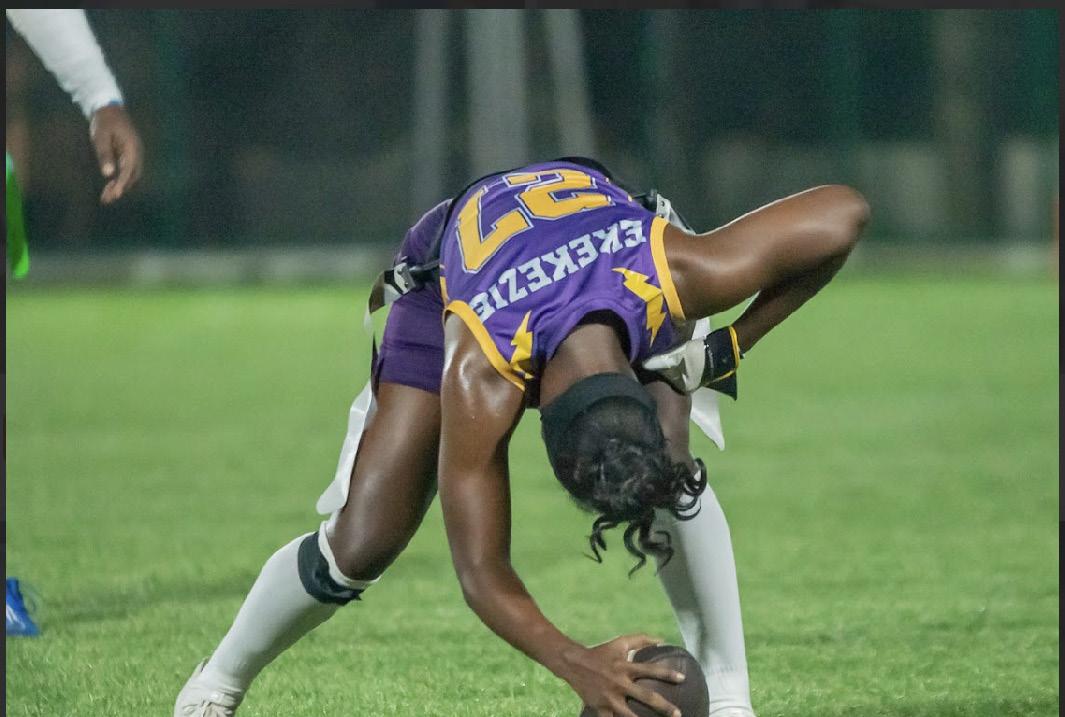
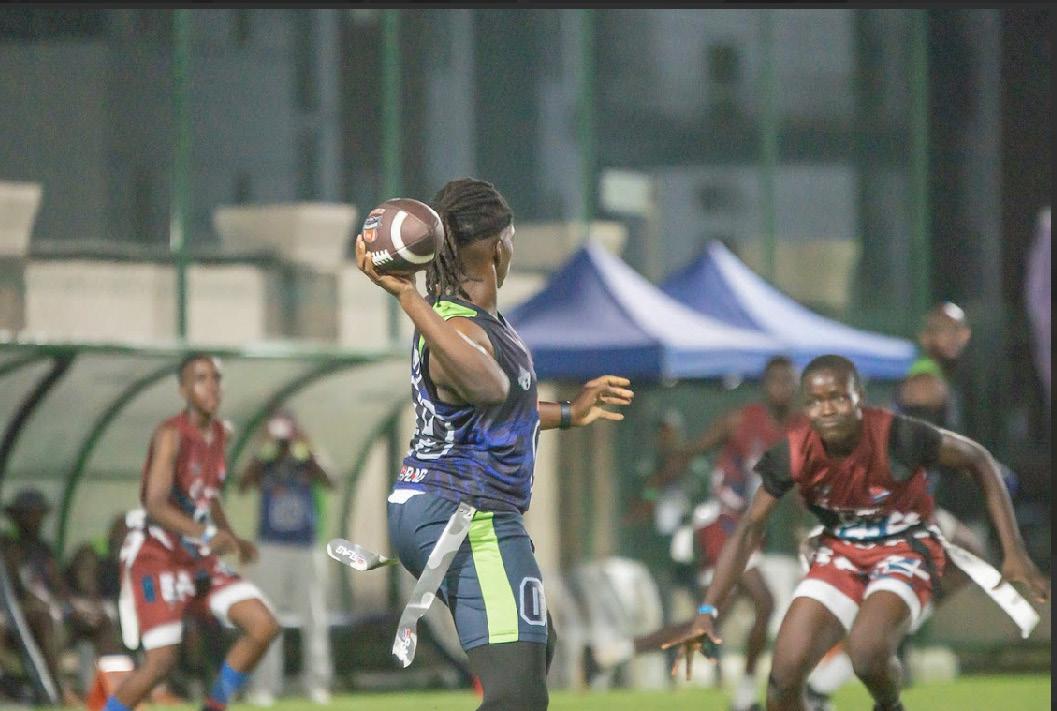


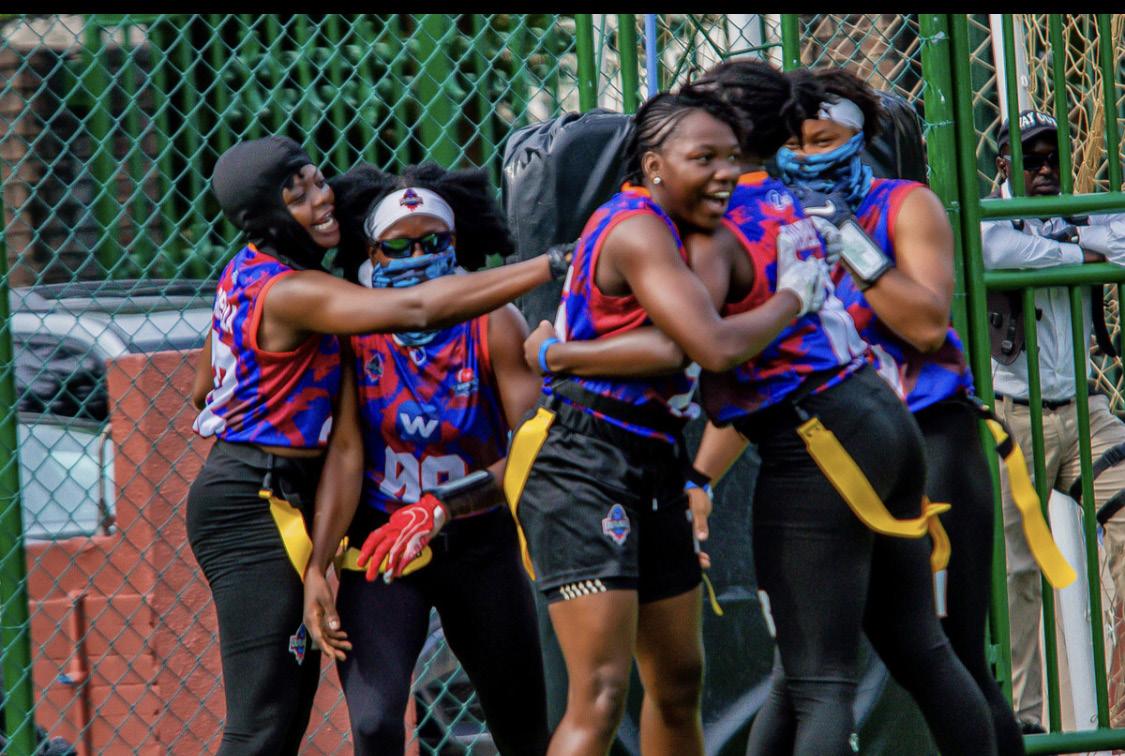
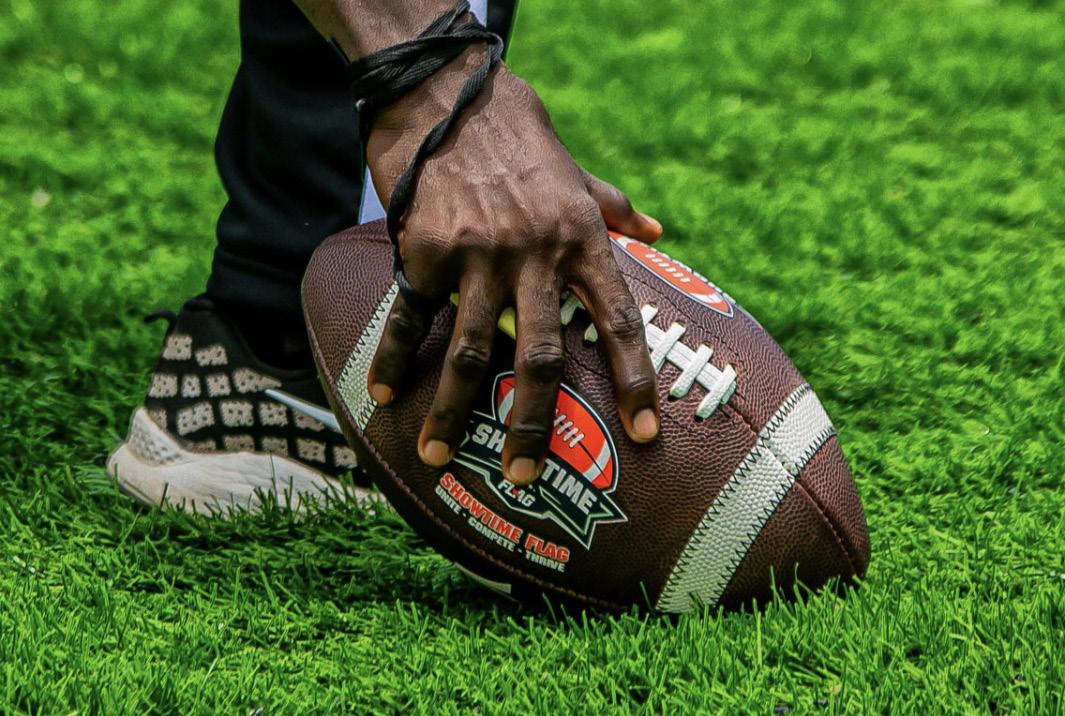
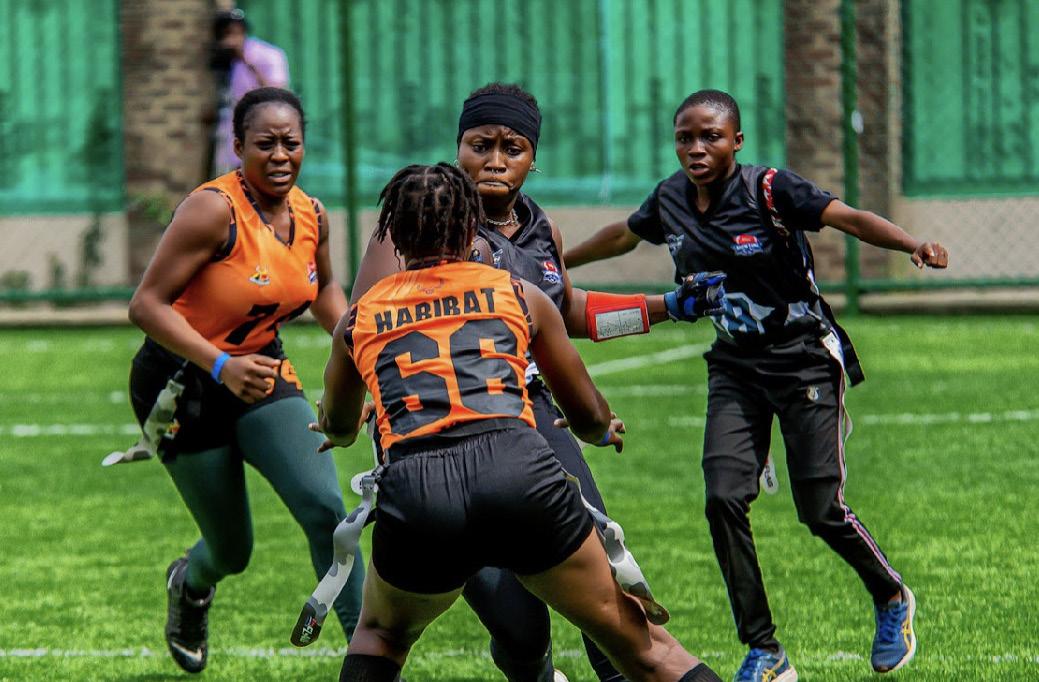
The business of rugby in Nigeria is currently in its early stages but holds massive untapped potential. While we are still laying foundational blocks, key structures are emerging that could turn the sport into a viable commercial ecosystem in the near future.
Here’s a breakdown of where things stand and where the growth is coming from:
Revenue Streams Are Nascent
The main sources of income are still a few local sponsors, a small amount of World Rugby development subsidies, which have remained the same for a long time, and individual contributions from enthusiastic stakeholders. Gate revenue is non-existent due to low public awareness and limited event infrastructure; however, merchandise sales are starting to pick up due to collaborations with renowned global brands like UMBRO. Corporate sponsorship is growing (e.g., BLK, UMBRO), but remains a huge untapped opportunity.
Limited Professional Infrastructure
There’s no fully professional league yet, most players are amateur or semi-pro.
The national teams are the main commercial assets, and there are no centralised media rights deals or formalised player salary structures.
High Interest, Low Accessibility
Rugby is popular in private schools, and we have just made inroads into the national universities games (NUGA), but access is limited in public institutions. There’s strong grassroots energy, but it lacks coordination and commercial backing.
Professional League Development
Creating a national 7s circuit or semi-pro league would drive local engagement, attract sponsors, and give players a visible pathway. Structured competitions equal content for broadcasters, plus platforms for talent development.

Media and Content Partnerships
Streaming, documentaries, and social storytelling around Nigeria’s players, rivalries, and grassroots stories could explode public interest. Partnering with local broadcasters or platforms like Super Sports or Channels TV can drive improved visibility. We currently have partnerships with Brilla Sports and NTA.
School and Youth Expansion
Rugby in public secondary schools and universities is a gamechanger.
Partnering with state ministries of education and sports to introduce Rugby-in-a-Box programs builds a lasting talent and fan base.
Corporate Sponsorship and CSR Integration
Rugby aligns well with values like discipline, teamwork, and resilience—ideal for banks, telecoms, and FMCG brands. CSRdriven campaigns tied to education, youth development, and gender inclusion could attract big-name partners.
Events and Matchday Experiences
Hosting international tournaments, regional 7s events, and fancentred festivals can generate revenue and culture around the sport. A few well-executed events can turn rugby into a social lifestyle product, not just a sport.
Diaspora Engagement
The Nigerian rugby diaspora is huge and successful. Tapping into their expertise, funding, and networks can accelerate growth. Creating investment opportunities (academies, franchises, camps) targeted at the diaspora could bring in new capital.
Rugby business in Nigeria is emerging, but the potential is there to create a proper sports economy within 5–10 years. The levers are: Visibility, Structure, Youth pipeline, Media, Sponsorship and Events
It is not just about rugby, it is about building an ecosystem that feeds talent, inspires fans, and delivers value to brands.
Azeez Ladipo GM, Nigeria Rugby Football Federation (NRFF)

‘‘
“The old myth: ‘Rugby is not for us.” The new truth: “Rugby is Nigerian. It’s tough, it’s smart, and it’s ours.”
Rugby is often under the radar; how are you changing that narrative?
We are changing the narrative by building visibility, credibility, and community around the sport. We’ve raised performance levels under the leadership of Dr Ademola Are as President, and we are securing major sponsorships from trusted global brands like BLK and UMBRO as kit sponsors. That is not just gear, it is validation. It tells the world (and Nigeria) that rugby here is worth investing in.
We have also invested in workforce development, which has led to Nigeria having the highest attendance and a well-organised world rugby technical and medical training session, including nine strands with 92 participants in September last year. Lastly, we are strengthening grassroots development, focusing on youth programs, school rugby, and community clubs, and we are fostering a
culture where rugby is a badge of pride, not an afterthought.
How is the NRFF working to build a commercially viable rugby ecosystem?
We are laying the foundation for a commercially viable rugby ecosystem by combining performance-driven results, strategic partnerships, and institutional reform. Our approach is not just about playing the game, it is about building a sustainable business around it. We’ve professionalised the national teams; we have made the Stallions 7s and 15s teams our flagship assets, improving their visibility and competitiveness to attract commercial interest, we are rebuilding trust and governance, creating structured competitions and engaging brands with purpose.
We are investing in our digital and media strategy and focusing on grassroots
Azeez Ladipo is the General Manager of the Nigeria Rugby Football Federation (NRFF), where he leads the development and execution of Nigeria Rugby’s strategic plan. A former captain of the national team, the Stallions, he now focuses on growing the sport through workforce development, youth engagement, and high-performance initiatives nationwide.
expansion, which will lead to market growth, more players, which equals more fans, and more market value. We are also tapping into the diaspora, as well as international and regional collaboration. The NRFF is not waiting for the business to come to us—we are building the platform. It is a long-term play, but the pieces are coming together: strong teams, honest governance, marketable events, youth programs, and commercial pathways. Rugby in Nigeria is no longer a side sport. We are building it to become a mainstream, self-sustaining sports industry.
How do you see rugby as a tool for youth engagement and national pride? At its core, rugby teaches the values lacking in our society, which our country needs: discipline, resilience, teamwork, respect, and passion. And right now, Nigeria’s young population is hungry for identity, opportunity and purpose,


rugby delivers all three. Through youth engagement through structure, identity and opportunity, accessibility for all backgrounds, community building and legacy, we are not just building players, we are building people.
What is the biggest misconception about rugby in Nigeria, and how are you working to shift it?
The biggest misconception about rugby in Nigeria is that it is a foreign, elite, or dangerous sport, something only played in private schools or abroad, with little relevance to the average Nigerian. This perception has kept the game under the radar, limiting its reach and potential. But the truth is: rugby is for everyone, and it is one of the most inclusive, characterbuilding, and community-driven sports in the world. The old myth: “Rugby is not for us.” The new truth: “Rugby is Nigerian. It’s tough, it’s smart, and it’s ours.” We are changing the game by changing the narrative, on the field, in the media, and across every community we reach.
What role do you believe sports like rugby can play in rebranding Nigeria’s image to the world?
Sport transcends politics, divisions, and stereotypes, and can create moments
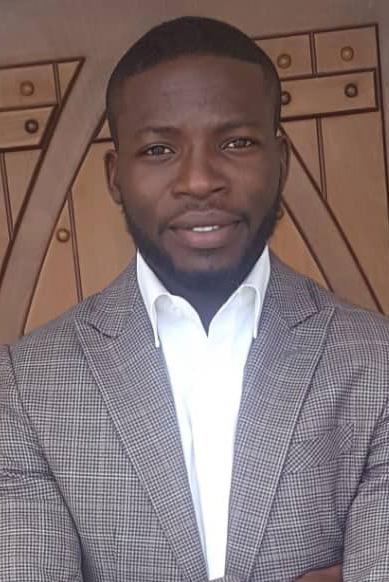

of pride, unity, and visibility that can reshape how the world sees a nation. Rugby, specifically, can contribute to rebranding Nigeria’s image by being a platform where Nigerians at home and abroad come together around a common identity, by winning respect on the global stage, by attracting business, tourism and investment, and by showcasing a new nigerian identity and image of: a youth-driven, ambitious nation, a country capable of unity in diversity, leaders and athletes who represent integrity and excellence. Every time the Stallions step onto the pitch, they’re ambassadors for a better Nigerian story.
What’s the most powerful moment of impact you’ve witnessed from someone touched by the sport?
One of the most powerful moments I have witnessed was with a young boy from a low-income neighbourhood in Ajegunle, Lagos, who joined a community rugby program with no prior experience, no boots, and barely enough money for transport. At first, he was quiet, almost invisible. But within months, the sport transformed him. Through rugby, he found confidence, purpose, and structure. He is an important member of his local youth team, he speaks

up, mentors others, and travels the world. The most emotional moment came when he represented the national team and called his family, crying, not because the team won, but because, for the first time, he felt seen.
What does legacy look like for you? What would you love to be remembered for, not just in Nigerian sports, but in the global conversation around leadership and impact?
Legacy for me is not about titles or trophies. It is about transformation. I want to be remembered as someone who used sport as a force for national and human development, who showed that rugby, and by extension, Nigeria, could be more than what the world expected.
In Nigeria, I want my legacy to be a rebuilder of a forgotten sport, who helped restore pride, structure, and purpose to rugby. A bridge between old and new generations, between grassroots and elite, between Nigeria and the world. A champion of youth who turned sport into a tool for education, identity, and upward mobility. I want kids in Ajegunle, Jos, Enugu, Bauchi or Makurdi to say, “Because of what we saw him build, we believed there was space for us.”.
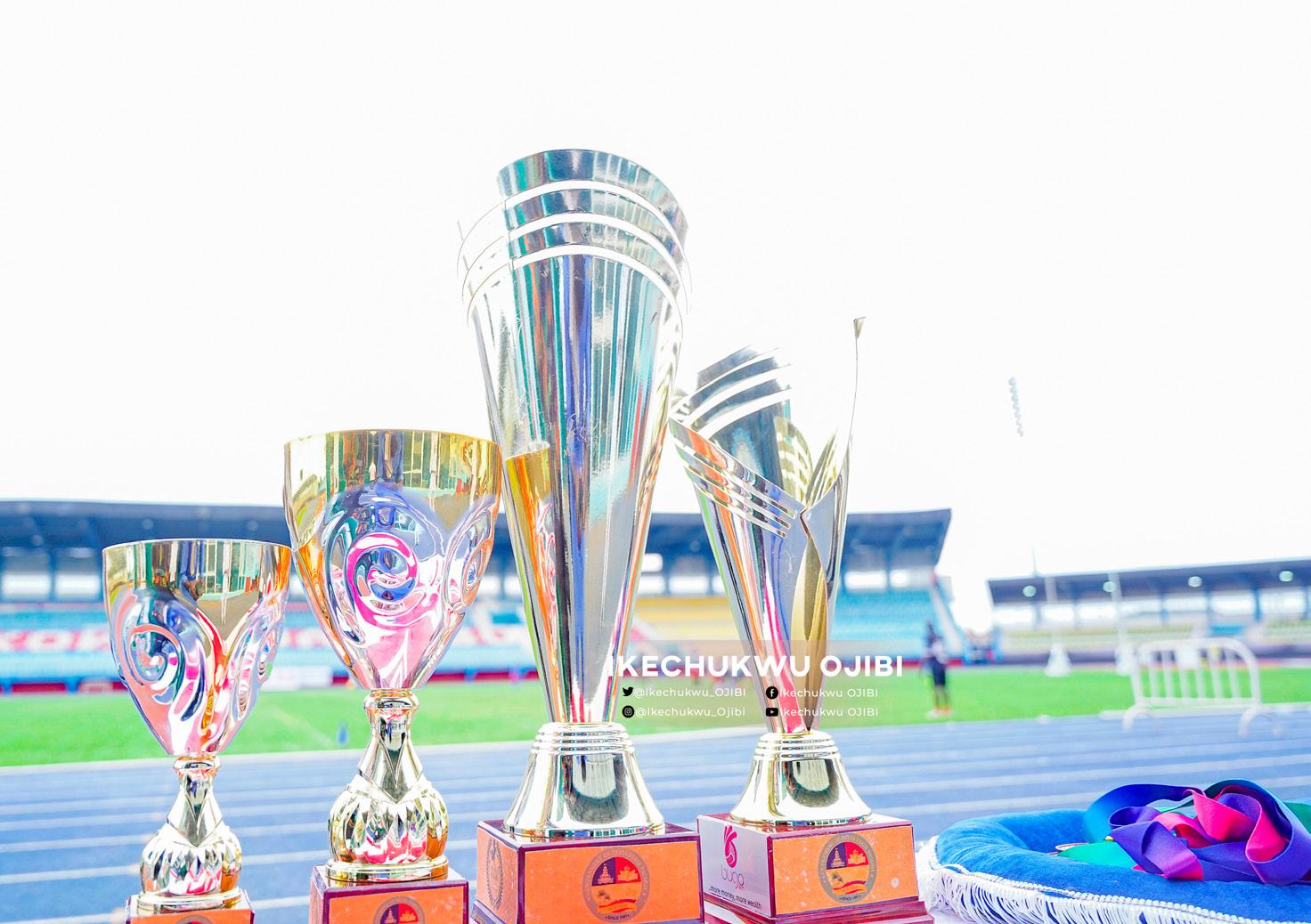

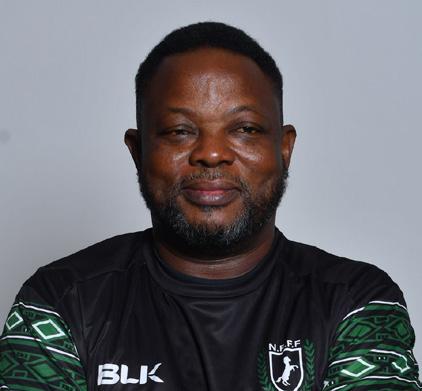

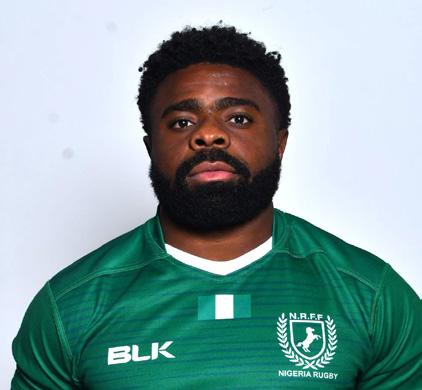






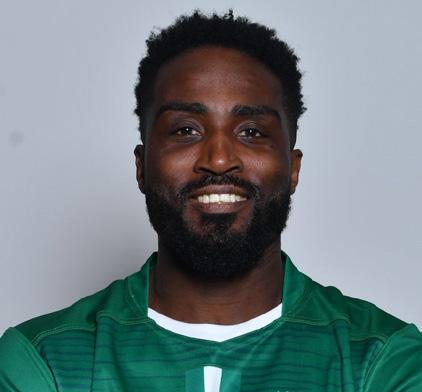




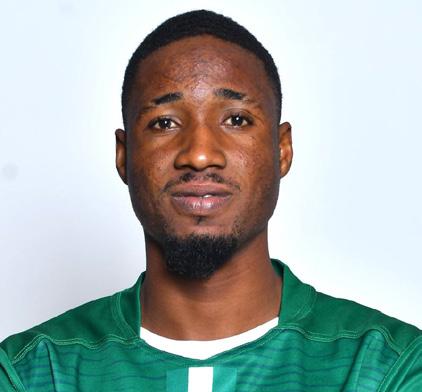

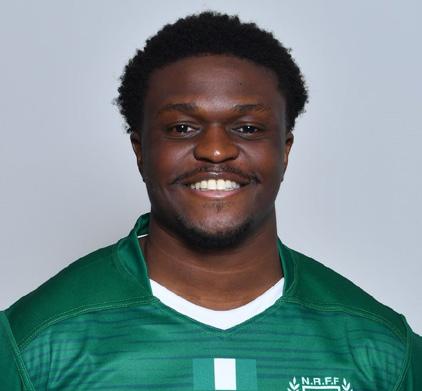

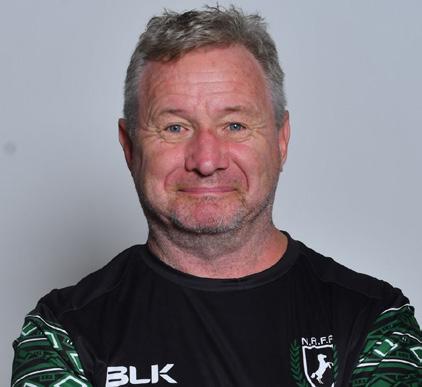


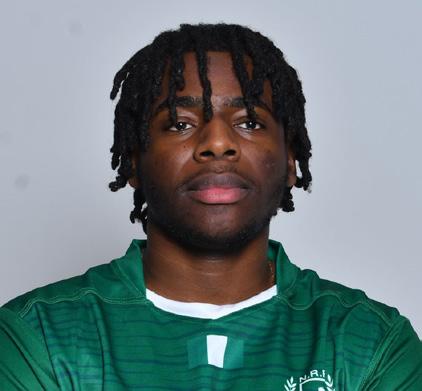







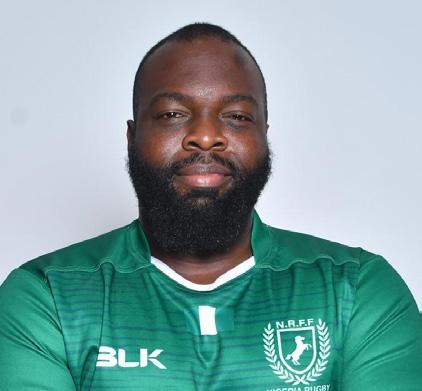

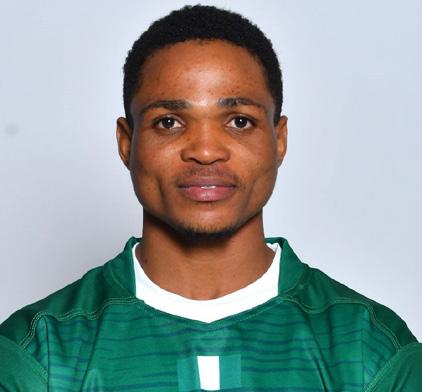


Interview
Adaobi
Nnorukah
Vice President, Lekki Volleyball Club (LVC)

Ma Senior Investment Professional and Vice President of the Lekki
For the purpose of this interview, could you please introduce yourself and tell us a bit about yourself and your work?
I’m Adaobi Nnorukah, and I work as a senior investment professional in a private equity fund that invests in infrastructure projects across West Africa.
Sport is more than competition, it’s a vehicle for social transformation. How have you seen Volleyball shift identity, belonging, or hope for young people in Nigeria?
Volleyball in Nigeria has transformed from a niche sport associated mainly with NYSC camps and armed forces to one recognised by young Nigerians as an avenue to find community, build resilience, and access opportunities.
Volleyball cuts across Nigeria, featuring intergenerational play, fostering mentorship and a welcoming community that transcends age barriers. In addition
‘‘
As a country with a teeming young populace, sports represent a force for social good, and I expect to see volleyball play a bigger role as an option for the young
to its physical benefits, the sport’s dynamic nature teaches players to manage stress, recover from setbacks, and persist through challenges. These lessons transfer directly to other areas of life, equipping players with the grit necessary to navigate life’s complexities. And for the talented, volleyball can offer alternative career pathways through domestic leagues, international opportunities, and educational scholarships that were previously nonexistent. I think this is why we find that people who play volleyball are very dedicated to the sport.
You’re a woman shaping one of the most male-dominated sectors. What’s been your boldest win, and what challenges still exist that people rarely talk about?
I am proud to say that as an executive committee for the club, we have made a conscious effort to encourage female participation in all aspects of our activities, including our competitions, where there is parity in prize amounts. We also stay open to feedback from our members on what we can do to improve.
What role do you see volleyball, and LVC specifically, playing in Nigeria’s future sports development?
As a country with a teeming young populace, sports represent a force for social good, and I expect to see volleyball play a bigger role as an option for the young. As a club, we hope to encourage more primary schools, secondary schools and universities to add volleyball to their offering, and we’re looking for the right partners to structure competition at varying age levels to develop the pipeline of talent.
In a sports ecosystem like ours, which is often overshadowed by football, how have you succeeded in keeping a club like LVC alive and thriving?
Volleyball is a sport that inspires dedication. As a club, we view ourselves as providing an avenue to express that dedication. We also encourage a path for discovery and improvement for the curious. Finally, we emphasise community as much as physical exercise. LVC would not be where it is without the constant support of its wonderful members.
What legacy do you hope LVC leaves, both on and off the court?
I hope that LVC continues to champion the growth of volleyball in Nigeria and that it grows into an institution that represents the very best of the volleyball community.

Interview
Dr. Robert Ekat
Club Captain, Lekki Volleyball Club (LVC) IG: @bob_ekat
Meet Dr. Robert Ekat, Club Captain of the Lekki Volleyball Club and a seasoned Public Relations expert. Beyond the court, volleyball is his therapy— fueling his passion for leadership, friendship, and fun. Known for his humour and humility, Robert brings unity and energy to the LVC community. For him, volleyball is more than a sport; it’s a lifestyle, a way to connect deeply with others, and a powerful reflection of what it means to lead with heart.
For the purpose of this interview, could you please introduce yourself and tell us a bit about yourself and your work?
My name is Robert Ekat (PhD). Besides volleyball, I work as a Public Relations expert. Volleyball is how I ease off the stress of Nigeria’s turbulence; it’s a therapeutic game.
As captain, what responsibilities do you carry on and off the court for your teammates?
The captain is the inspirer-in-chief. Besides playing my part during games, it’s my responsibility to motivate the players to put in their best while also caring for their welfare. To be honest, there’s not much to do in leading the players of the club, as LVC is an easy-going club with mature and experienced players.
Off the court, I try to forget about responsibilities and cruise with my club members. Lol
How does volleyball shape your sense of identity, purpose, or community?
Volleyball plays an immense role in shaping my sense of identity, purpose, and community. There’s no better place to define the social nature of human beings than on the volleyball court. Lekki Volleyball Club supplies a huge chunk of my social needs, from providing uncommon

friendships to frequent parties and celebrations of wins. It may sound unusual to say that I introduce myself in all circles as first ‘a volleyballer’ before anything else.
The game of volleyball has a unique way of reminding us that we are humans. As a highly sociable game, we tend to loosen up on the court; laugh at all kinds of jokes and characters, sit on the floor without caring and show up for one another in the most glaring show of humanity.
From your vantage point, how do you think our local volleyball teams are perceived from the outside in terms of our athletic potential and management?
I think Nigerian volleyball is perceived as ‘rapidly developing’. Indeed, in athleticism and skills, the improvement is colossal, as evident during competitions. The players always hold audiences spellbound with the energy they bring to bear when they play, from spikes to blocks and defences. However, a lot remains to be seen from the point of view of management.
Personally, I doubt the volleyball federation is doing enough for the game. The league still suffers from poor organisation and inadequate remuneration for players. There’s a lot that could be leveraged from private partners and the government, and the existing gap continues to
frustrate players who often find better opportunities abroad.
What’s the most important lesson volleyball has taught you about leadership?
The most important lesson I’ve learned about leadership from volleyball is that the leader is not always the best in skills and intelligence, so the leader must first be a follower. Fortunately, we have an abundance of humility in the people who lead our club. The nation has a lot to learn from us.
What advice would you give to a young Nigerian who’s curious about joining a volleyball club but unsure where to start?
My best advice to someone contemplating joining a volleyball club is to say, “Do it now!” Volleyball clubs are in virtually every neighbourhood. Go online and find the closest place to you. As someone who has passed through many clubs, I can tell you that the fun is everywhere; in every volleyball club.
There’s a unique, fun trait that volleyball bestows on the players, hence their vibe is always positive and fun-loving. Finally, if you live around the Lekki area or can afford to make the trip, joining the Lekki Volleyball Club will be one of your best decisions. Trust me!
“The game of volleyball has a unique way of reminding us that we are humans”


Interview
Jeremiah Garba Club Coach, Lekki Volleyball Club (LVC)
IG: @garbajeremiah
For the purpose of this interview, could you please introduce yourself and tell us a bit about yourself and your work?
My name is Garba Jeremiah Peter, and I am the club coach of Lekki Volleyball Club (LVC).
Coaching is about more than skills. How do you train mindset and character at LVC?
Training mindset and character in sports involves developing mental toughness, resilience, and a growth mindset. Some strategies that help in this process are goal setting, positive self-talk, a spirit of sportsmanship, teamwork, and discipline.
What are the key differences in coaching competitive vs. recreational players in a club like this?
Coaching competitive players involves high-intensity training, specific goals, mental preparation and detailed analysis of what we want to achieve as a club and team. So, all our training and skill development is channelled towards achieving the set goal.
j
eremiah Garba is the Club Coach of the Lekki Volleyball Club, where he blends technical training with mentorship to build both skill and character. With a passion for teamwork, discipline, and player development, Jeremiah fosters a culture of respect, resilience, and unity, helping athletes grow on and off the court.
It’s important to make each player feel valued, respected, and part of the team
Meanwhile, coaching recreational players focuses on enjoyment, basic skill development, social atmosphere and flexible goals.
How do you cultivate team chemistry and discipline across a group with such diverse backgrounds? It’s important to make each player feel valued, respected, and part of the team. Cultivating team chemistry and discipline in a diverse group requires team-building activities, shared goals, clear
expectations, positive reinforcement, and constructive feedback, while also understanding and appreciating the diverse backgrounds and perspectives of all players. Lastly, support and challenge each player to go beyond their unique capabilities.
Wrapping up, if you had the attention of every young Nigerian athlete and aspiring coach right now, what is one piece of advice you would give them about the future of sports in Nigeria and the role they must play in it?
To succeed in the future of sports in Nigeria, I’d advise young athletes and aspiring coaches to focus on developing a strong foundation in sports by building a strong support network. Seek out experienced coaches and mentors who can provide guidance and collaborate with fellow athletes to share knowledge and best practices. Also, invest in both your athletic and academic development to create a solid foundation for success.
Volleyball in Nigeria is more than just a game – it’s a growing industry that’s got everyone buzzing. With talented players putting in the work, the sport is experiencing a surge in popularity, and it’s not hard to see why. From the thunderous spikes to the lightning-fast blocks, Nigerian volleyball is a force to be reckoned with.
And Nigeria is not alone in its love for volleyball. In fact, volleyball is one of the top 5 most popular sports in the world, with a massive global following. It’s a sport that transcends borders, cultures, and ages, and its popularity continues to grow.
One of the most exciting developments in Nigerian volleyball is the proliferation of tournaments. We’re talking Thunder Games, Japa Games, Legacy competition, the national league, National Sports Festival, and many more. These tournaments are happening all over the country, providing a platform for players to showcase their skills and for fans to enjoy the thrill of the game.
But what’s really driving the development of the game in Nigeria are private individuals and companies putting in the resources. They’re investing time, money, and effort into building facilities, organising leagues, and supporting talented players. This private sector involvement is making a huge difference, and it’s helping

to take Nigerian volleyball to the next level.
And it’s not just local clubs that are taking notice. Foreign clubs are starting to pay attention to Nigerian players, and many are exploring opportunities abroad. Imagine being a volleyball star, earning foreign currency, and representing your country on the international stage. It’s a dream come true for many young players, and it’s a testament to the talent and hard work that’s going into the sport.
So, what does the future hold for volleyball in Nigeria? Well, the hope is that as more private organisations support the game, it will become a major contributor to youth empowerment. We’re talking job creation, skills development, and a platform for young people to build their confidence and self-esteem. And let’s not forget the business potential – clubs are already starting to capitalise on the sport’s popularity, and we’re expecting to see more investment and innovation in the years to come.
The business of volleyball in Nigeria is an exciting space to watch, and we’re eager to see how it will continue to grow and evolve. With the right support and investment, there’s no limit to what Nigerian volleyball can achieve. So, let’s keep spiking and see where this thrilling game takes us!





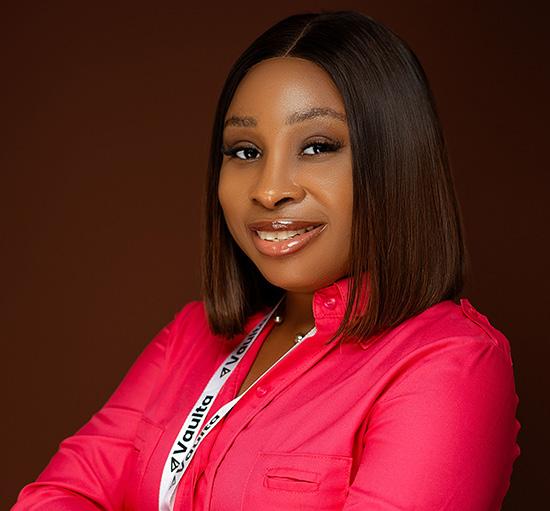









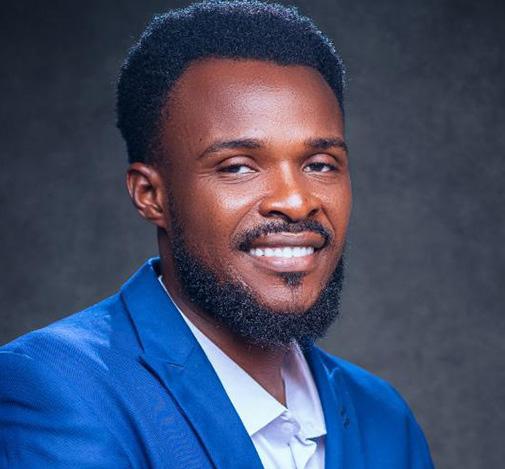

Interview Boma Alabi Trustee, Lagos Yacht Club
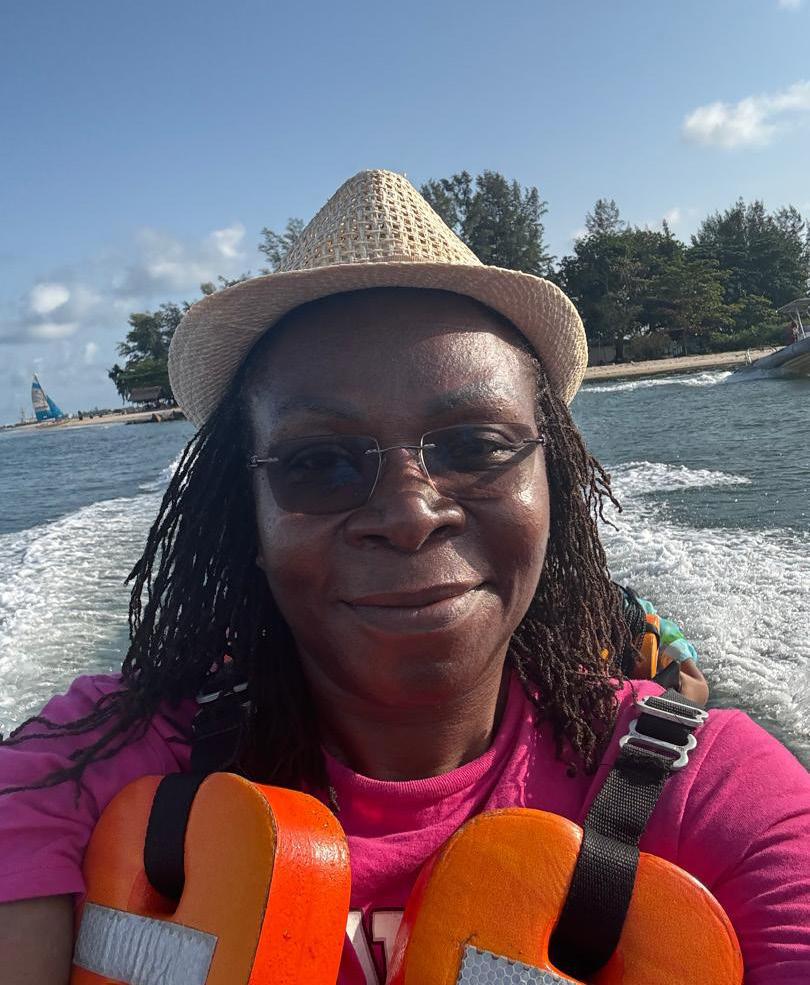
As a trustee and steward of the LYC legacy, what values anchor the club through time?
Our club is very family-oriented, and I think that’s a very good thing. Sailing is a sport that the entire family can participate in; husband, wife, and children. We encourage family involvement because, for example, if a family has a sporting conversation around the dinner table, the boys might be interested in football while the girls may not, though I recognise this is a stereotype. However, in a sailing family, everyone shares a common passion.
What is it like being a Nigerian member of the club?
We know the reputation we have out there, that we’re the last bastion of colonialism, and we’re the only “Oyibos.” It’s a load of tosh. We are interested in sailors; anybody who wants to sail is welcome. Nigerians, generally speaking, like a sedentary lifestyle, so we want to be on the boat with a driver, just like we are in the car with a driver. We don’t want to be driving ourselves on the boat, because that for us is not an idea of leisure, and so it will take, you know, a different mindset to see this as a sport and enjoyment rather than a punishment.
We want Nigerians, but it’s not culturally well-known to most of us as Nigerians. We’re mostly landlocked people. I’m probably different because I’m from Port Harcourt, so I grew up with the water, and I’m comfortable around water. A lot of us are not, and that also is the reason why I don’t have a phobia, I’m saying most Nigerians, quite a few do. They have a healthy respect for water, and they won’t even let the kids come and learn to sail. So this is why we certainly would love to see more Nigerians in the club. When Nigerians come, we actively welcome them, give everybody the same rules, and a level playing field.
What does it mean to hold space for culture and leadership in an institution with colonial roots?
We’re described as a mini United Nations, because we have nationalities from literally everywhere, and all the continents are represented in the Yacht Club. We have sailors who are speaking French, Danish, Yoruba, English, Hausa, Afrikaans, and so on. For us, really, it’s not about your nationality or your culture; the rich tapestry of cultures and the diversity is something we welcome and celebrate.
In some of our events where we try to
Boma Alabi, SAN, is a Senior Advocate of Nigeria and a dedicated sailor. She has been a member of the Lagos Yacht Club for over a decade, discovering it soon after returning to Nigeria, a discovery she credits with anchoring her decision to remain in Lagos. Boma currently serves as a trustee of the club and has previously held key roles, including secretary and house committee member. For her, sailing is more than a sport, it’s a community built on active participation, which she believes is the heartbeat of the club’s longevity.
assist Nigerian charities, we get to go on a world culinary journey. You’ll see a Nigerian stand where we have the Nigerian dishes, we have the Russian stand where they bring the Russian food, we have Bulgaria, Jamaica, and whichever country wishes to be represented, where we welcome them happily.
What would support for The Yacht Club look like?
This club is part of the heritage of Lagos. We have records in pictures of sailing happening here from 1908. This is 2025, over 100 years of sailing from this spot. So, this is a heritage site for Lagos. It would be nice if there were some support from the government beyond what we are doing as individuals, to keep it going for posterity.
The Yacht Club is the oldest sports club in Lagos, as far as I know, we’re older than Ikoyi Club and the Polo Club. Remember, Lagos is an island, and well, Lagosians are waterside people, so this is the Lagos club. That should be a concern for the government and people of Lagos, that sailing should never, as they say, depart from these shores.
What does legacy look like for you? What would you love to be remembered for, not just in Nigerian sports, but in the global conversation around leadership and impact?
The first time I walked into this club, the reason I was attracted to it before sailing, because I remember I learned to sail here, was the camaraderie, the friendship. People welcomed you. Nobody asked what you did for a living; nobody cared how much you earned. The fact that you were interested in sailing was just sufficient.
And that has stayed on, largely because those of us who enjoyed that kind of welcome have made sure we also welcome new members in the same way. You don’t see someone coming into this club and just sitting alone. We’ll invite you to join our table or whatever. We’d like to carry on. I think that’s a very precious thing we have, and it should continue.

Hugh Thorley has a longstanding connection to Nigeria, dating back to 1965. He began sailing at the Yacht Club in 1970 and eventually made Nigeria his home in the early 1980s. With family ties to the country, including his daughter Eku Edewor, a film producer, he has developed a deep appreciation for Nigerian culture. Despite the challenges that come with living in Nigeria, he continues to enjoy life in the country, embracing its unique experiences and opportunities.
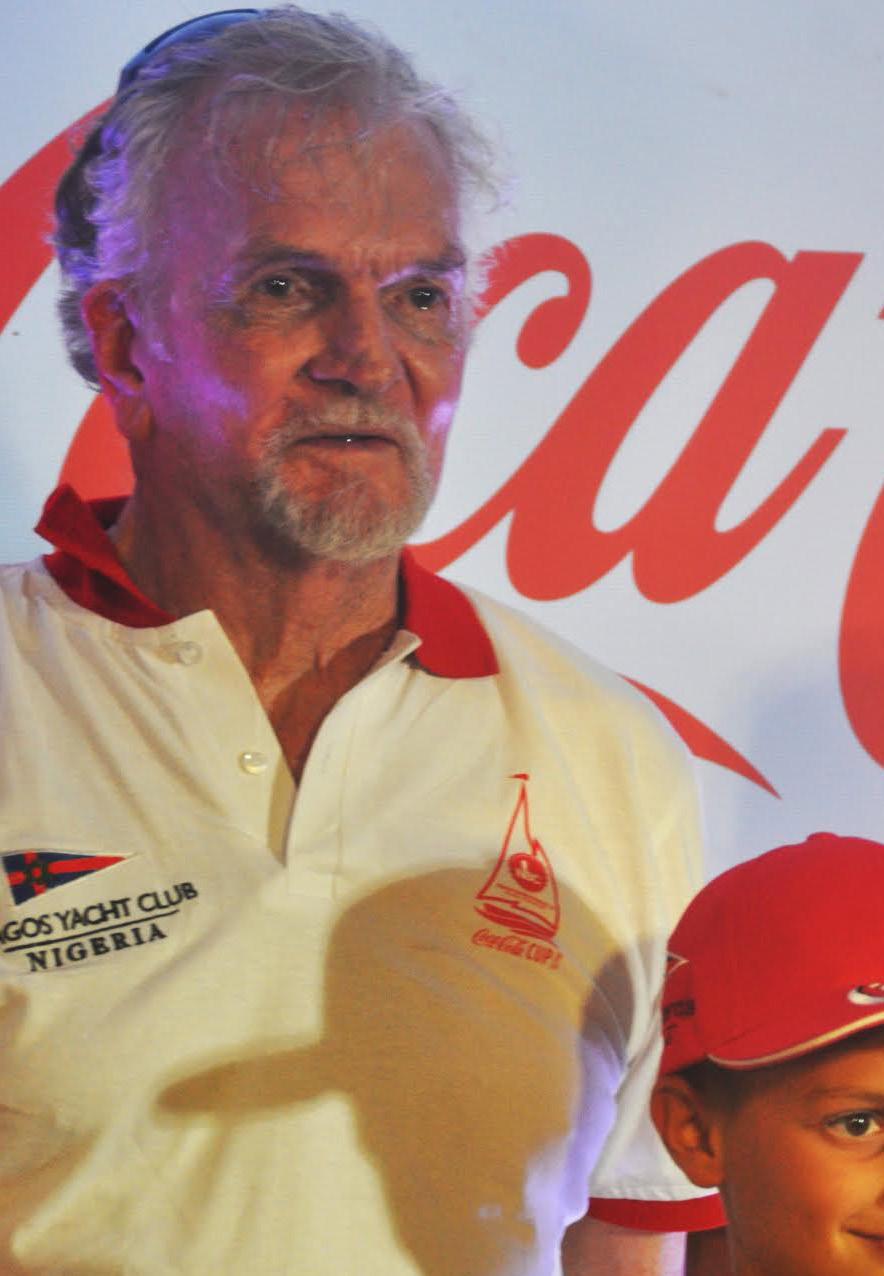
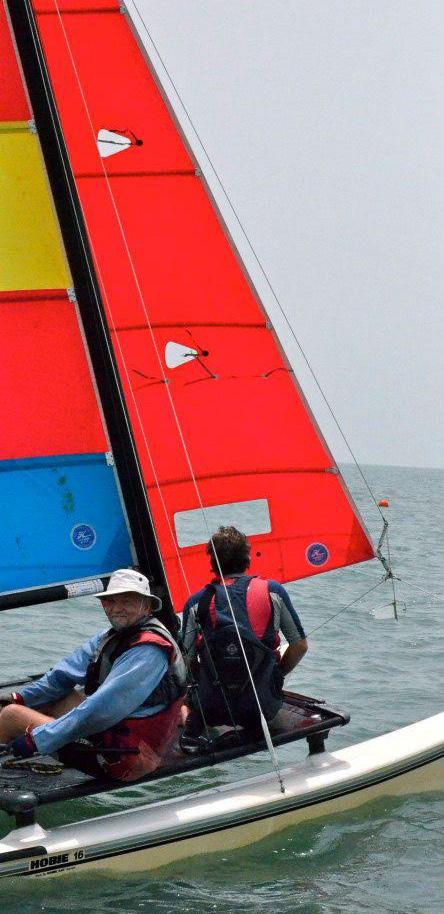
You’re one of the longest-serving members of this club. You’ve probably seen it all. What is that like, and what has experience taught you about time, nature, Lagos and humans in general?
Well, I first started sailing very young because an older cousin came back from military service. We went to see him, he lived on the North Brook, which is a sailing centre in England. He picked me up and said, “We’re going sailing.” I must have been about three at the time. I later joined as a founding member of the Northampton Grammar School Sailing Club, and it sort of started from there. So one of the first things I did when I came to Nigeria was find out about sailing here. And if you want to sail in Nigeria, it means you have to sail at the Lagos Yacht Club. There’s only one place to sail, fabulously positioned on the harbour, with great facilities.
What changes have been made since your first sail in 1970?
Well, in the ’70s, there was actually a waiting list to get into the club, and it was predominantly white, predominantly expatriate. I think the biggest change now is the number of new Nigerian sailors we have, and, in addition to that, the number of young sailors. This particular committee has been very keen to introduce training sessions for youngsters, and I think we now have some 15 to 20 kids learning how to sail. We’ve got special boats for them, we run training sessions, and they’re starting to compete in the grown-ups’ races. That is an exciting development.
What keeps you coming back to the water after all these years?
Well, I think sport is important, and I think life in Nigeria can be very challenging and frustrating at times. So the great thing about sailing is that when you’re on the water, and sailing in Lagos in particular can be very difficult as well, we often don’t have much wind, we sometimes have very strong tides, so you have no time to think about anything else. You have to concentrate on getting round the next mark, beating it. That is a critical thing, and I think everybody needs to be able to sort of shut off from the work challenges and think about other things. So sailing for me has always been that, and I think if you can sail well in Nigeria, you can sail well anywhere in the world.
What would you say is your fondest sailing memory here in Nigeria? I suppose getting rescued in a lifeboat when my boat had blown away has to stand out as one of the best memories. Also, winning the Badagry Race, which is the longest race we run and a traditional event that’s been held for as long as the Yacht Club has existed. I have lots of wonderful memories, but the Lagos Yacht Club, for me, is definitely a home away from home. I think if it didn’t exist, all the friends, the camaraderie, the bar, the food, the good kitchen, etc., then I doubt I would have stayed in Nigeria quite as long.
What’s changed the most in Nigerian sailing, and what has beautifully stayed the same?
The spirit has stayed the same, and the change has mostly been the growth of youth sailing. Many more Nigerians who sail, and more ladies in particular, who help as well. I think these are very positive developments for the Yacht Club. The membership is pretty well near its maximum 400, so it shows the popularity of the club, and I think many people don’t even know it exists.
It sort of sits at the end of the marina, just by Independence Bridge, and many people pass it by without even knowing about it, which can, in some ways, be an advantage. But it’s a very open place, very welcoming, open to anybody. And anyone who wants to learn to sail will be very welcome.
What advice would you give a young person considering sailing today?
Come along to the Yacht Club and get joined in. Anybody, I mean, I would say that half the people who are coming to the Yacht Club probably have never sailed before, so it’s easy. The Yacht Club is great value for money here.
Yachting, sailing around the world is often thought to be an elite sport, which is too expensive for most people. It’s not true of sailing in Nigeria. We race every Saturday and we’re always looking for additional crews, people are there to train. I don’t know how many people I have trained in my 50-odd years of sailing here. But that is a great thing. If you can introduce somebody to the sport, encourage them, and not frighten them!
I think if you can sail well in Nigeria, you can sail well anywhere in the world.


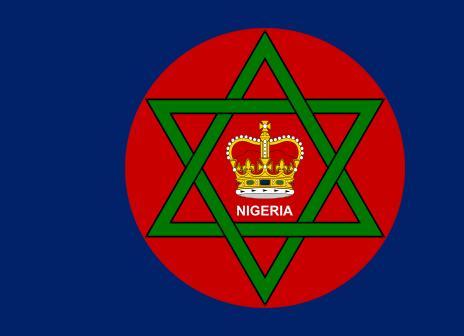
M
What role can sailing play in youth character development in a country looking for anchors of discipline?
Sailing is one of the few sports where kids and adults can interact on a more or less level playing field. It’s accessible to people of all different ages, and you find that it’s a very healthy environment for kids to participate in, one where they’re having very age-appropriate conversations and learning to communicate and interact with adults. That’s very important in building their confidence and many other character traits.
Also, in youth sailing, with the older kids, they tend to take on leadership roles quite early and start training the younger one. We’ve had a lot of feedback from members who have expressed how their kids’ confidence has improved thanks to their experiences at the yacht club. Many kids may start off shy but eventually become comfortable engaging with adults and develop confidence in navigating those relationships – something that is increasingly rare today.
always been a part of Lagos’ culture, whether it’s with locally made crafts or colonial-type vessels. So when it comes to Lagos, there’s a long and rich history.
The Nigerian aspect of it is more complicated because although there have always been Nigerian members of the Lagos Yacht Club since its inception to date, Nigerians’ relationship with water
encouraging.
What are the biggest highlights of the current racing calendar, and what do they symbolise for the club?
This is a club that’s been around for 92 years, and so many people have filled roles and made the club. What is important is ensuring that, 60 years from now, and 100 years from now, there is still a thriving Lagos Yacht Club
Sailing is also one of the few family-friendly outdoor activities you enjoy year-round in Lagos. It even gives families a great reason to travel and plan holidays around sailing events.
What role does sailing play in Nigerian identity, especially in a city like Lagos, rich in coastal culture?
Water plays a very significant role in the makeup of Lagos, and sailing is definitely a big part of Nigeria’s history. Sailing has
is not always a very straightforward one. Unfortunately, there’s sometimes a fear or unfamiliarity with water-based recreation, which has historically made participating in water sports, especially in Lagos, difficult. But it’s something that we see is changing, and we have more and more Nigerian members who are very active and are interested in sailing and racing with us. The Nigerian Navy and its sailors have always played a key role in promoting sailing and we have maintained a special relationship with the Navy Sailing Club since its inception. While most Nigerian sailors have traditionally come from the Navy, sailing is becoming more accessible to younger Nigerians generally, which is
We’re essentially a racing club in the sense that every single Saturday, public holiday, Wednesday and a few Sundays a year, there is a race. So, racing and competitive racing are a big part of what the Lagos Yacht Club is all about. In terms of big races, we have a few on our calendar. One of the most famous ones is called the Hermitage Cup also known as the Badagry Race, an overnight race to Bagadry and back. Because of the limitations of sailing in and out of the harbour past curfew, people must stay on their boats and be selfsufficient during the whole race. It’s a very tactical race and different from others, where typically the first person to cross the finish line is the winner. In this case, it’s not.
You have to log your sailing time and choose diligently when you will sail based on the current, wind, and other factors. You’re free to stop your boat and wait for the optimal conditions and at the end you add up all the time sailed, and that’s how we determine the winners. On average, you’re looking at probably 15 or 16 hours of sailing overall over the two days. It’s a fantastic experience.
We also have a race called the Governor’s Cup, which is one of our big historical races, which has also been sailed since the 40s. The trophy is a very historic one, which was donated by the then-governor of Nigeria, Lord Bourdillon. It continues to

be sailed on an annual basis.
Other races include the national championships for each type of boat we sail whereby the winner can represent Nigeria at international competitions. While we have a strong focus on racing, we also maintain a vibrant cruising and social sailing culture.
What is your vision for LYC as a club in Nigeria?
Whenever we’re talking about vision, we have to remember that this is, first and foremost, a sailing club. We must understand and respect that legacy. Second of all, as a committee, and as members, Commodore, Vice Commodore, we’re all members of the club, elected by members to drive the vision of the club. Our number one guiding principle is to ensure that we’re leaving behind a club that is in a better shape than what we inherited.
to know where this Star of Solomon comes from, but actually, it comes from the colonial flag of Nigeria. Few people know that Nigeria had a colonial flag or what that flag looked like, but if you look up the colonial flag, (We would print the flag next to this question. Check folder for image) it’s your typical British territory flag, which has the Union Jack in the top left quadrant on a
you love to be remembered for, not just in Nigerian sports, but in the global conversation around leadership and impact?

This is a club that’s been around for 92 years, and so many people have filled roles and made the club what it is. What is important is that 60 years from now, and 100 years from now, there is still a thriving Lagos Yacht Club, that is still the sailing club of Lagos, giving back to the city as a whole.
navy blue background. In a red circle it had the Star of Solomon with a crown within and Nigeria written in it.
The star on Nigeria’s colonial flag is linked to Lord Lugard, the governor-general at the time. During battles while merging northern and southern Nigeria, British forces discovered loot that included a
For me, two things are important in terms of the club. It’s a volunteer-run organisation, we have a main committee of nine, and a dozen other volunteer committee members who give up a lot of their time so that this place can run. These volunteers are all unpaid, and receive no benefits, doing it really for the love of sailing and giving back. To be very frank, this club has given a lot to many people. It’s our second home, and has been a place where people have made great relationships, and participated in a fantastic sport, while enjoying Lagos in a different way than they could have if the club didn’t exist.
We’ve been working to put processes and structures in place so that the club can survive in this modern day, where people like us have less and less time to give to volunteer activities. When I think of Nigeria 60 years ago, and Nigeria today, it is a very different place. There’s much more pressure on your time and while we do believe we will continue to find dedicated


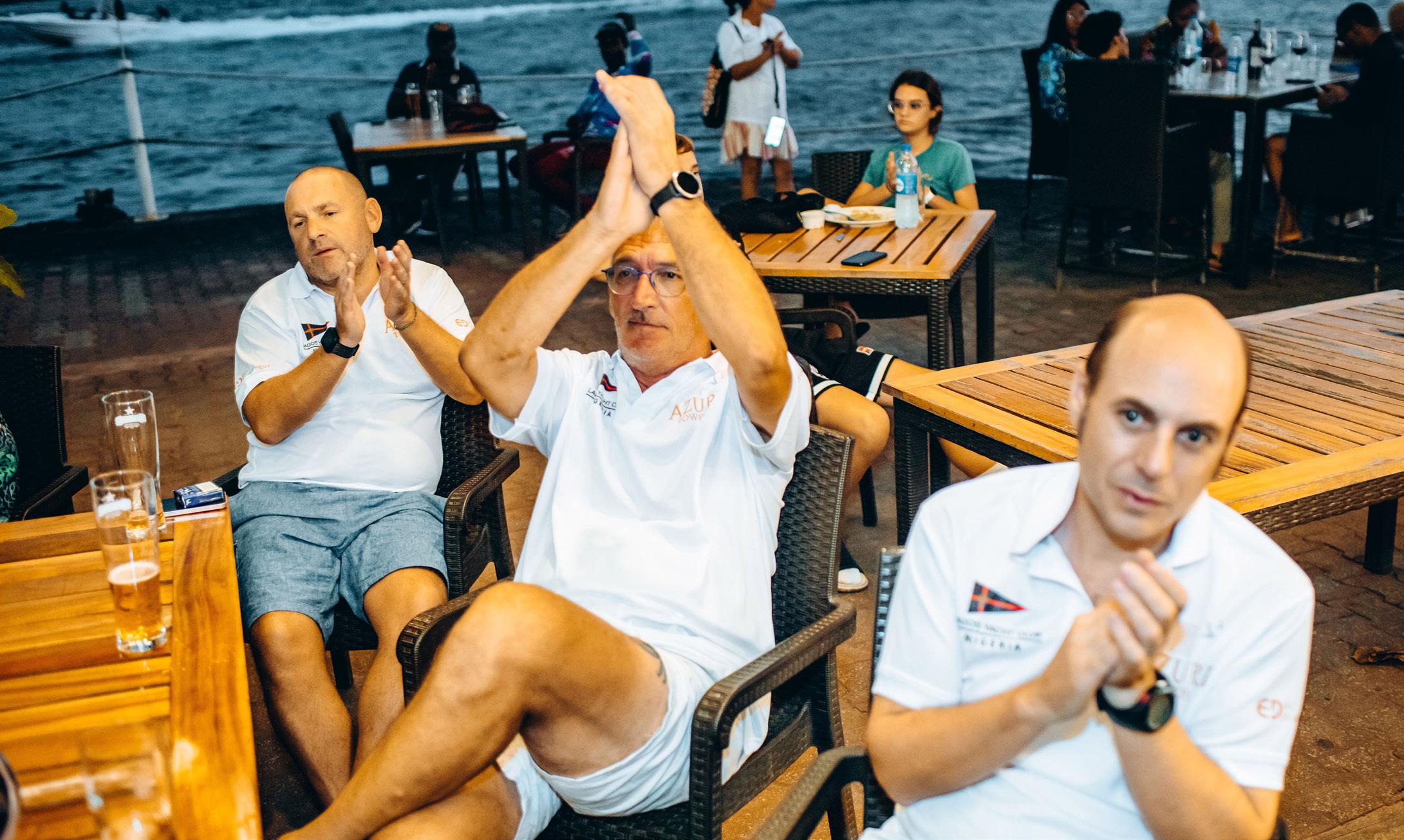
What inspired the investments in youth sailing?
For the club, continuity is important. We have young people coming through the club and getting into sailing, and one day we’d really love to have somebody from Nigeria competing at the Olympics under the Nigerian flag. That would be an awesome thing to achieve, so it’s about investing in young people and giving them a sport that they can enjoy.
How do you balance tradition and innovation, particularly when teaching the younger generation?
I think what’s probably unique about sailing is that while there are techniques that help a boat go fast, everyone eventually develops their style to achieve that. It’s both a physical and mental sport; you need to be agile, able to move around the boat, trim the sails, and switch sides efficiently. But at the same time, you’re constantly thinking about the wind, where it’s coming from, how it’s shifting, because it’s never completely steady.
Then there’s the third element, especially here in Lagos Harbour: the current. It’s either flowing in or out, and that changes daily. So, every time you sail or race, you’re faced with a new set of challenges to solve. In that way, sailing encourages innovation, because there’s never just one way to do
things.
Do you have specific boats for kids or children?
Yes, we invested in and imported some Optimist-style boats specifically for teaching young children how to sail. They’re small, very safe, and incredibly stable, absolutely ideal for beginners. We currently have 10 of those. In addition, we have five Taz boats, which are slightly larger, a bit more sporty, and designed to support two children at a time.
What are some of these skills that sailing has taught you that are important to pass on to the younger generation?
You know, you’re fighting it out with nature, right? So you need to have a bit of spirit, and it teaches you not to give up. You need to push through, and on some days it’s very windy and it’s quite hard. On some other days, it can be light winds, and it’s equally taxing to make your boat move along. There’s a sense of determination, just not giving up, and there’s also a lot of teamwork. The most successful sailors, here and in other clubs, are those who have a solid team. You need to communicate well and work together to succeed.
In educational moments, is there a form of maritime school or theoretical work?
Is there something like that here?
In every youth training session, we have a short period of theory before we get on the water. So we normally spend 30 to 40 minutes just on the theory of what we’re going to cover. We’ll practice on dry land, and then we’ll take them on the water to practice. We tend to adopt the RYA training methods.
The RYA is the Royal Yachting Association, and because I’m from the UK, it’s something that I’m familiar with. There is also a similar syllabus from World Sailing, which people abroad would be more familiar with. But essentially, there is a well-trodden path here of training people on how to sail and a lot of material available that we adopt.
What legacy do you hope to leave after all these years you’ve dedicated to sailing and the sport? Specifically, in terms of teaching kids, what impact or message do you want to convey?
We want to make sailing accessible to more people, so that it becomes a sport that really thrives. It is a challenge that requires creativity sometimes in finding ways to make that happen, but as a sport, that’s what we’re trying to achieve. The reason we’ve invested in training and youth training in particular is so that we can try and get more people into the sport and make it healthier.
“For the club, continuity is important. We have young people coming through the club and getting into sailing, and one day we’d really love to have somebody from Nigeria competing at the Olympics under the Nigerian flag”







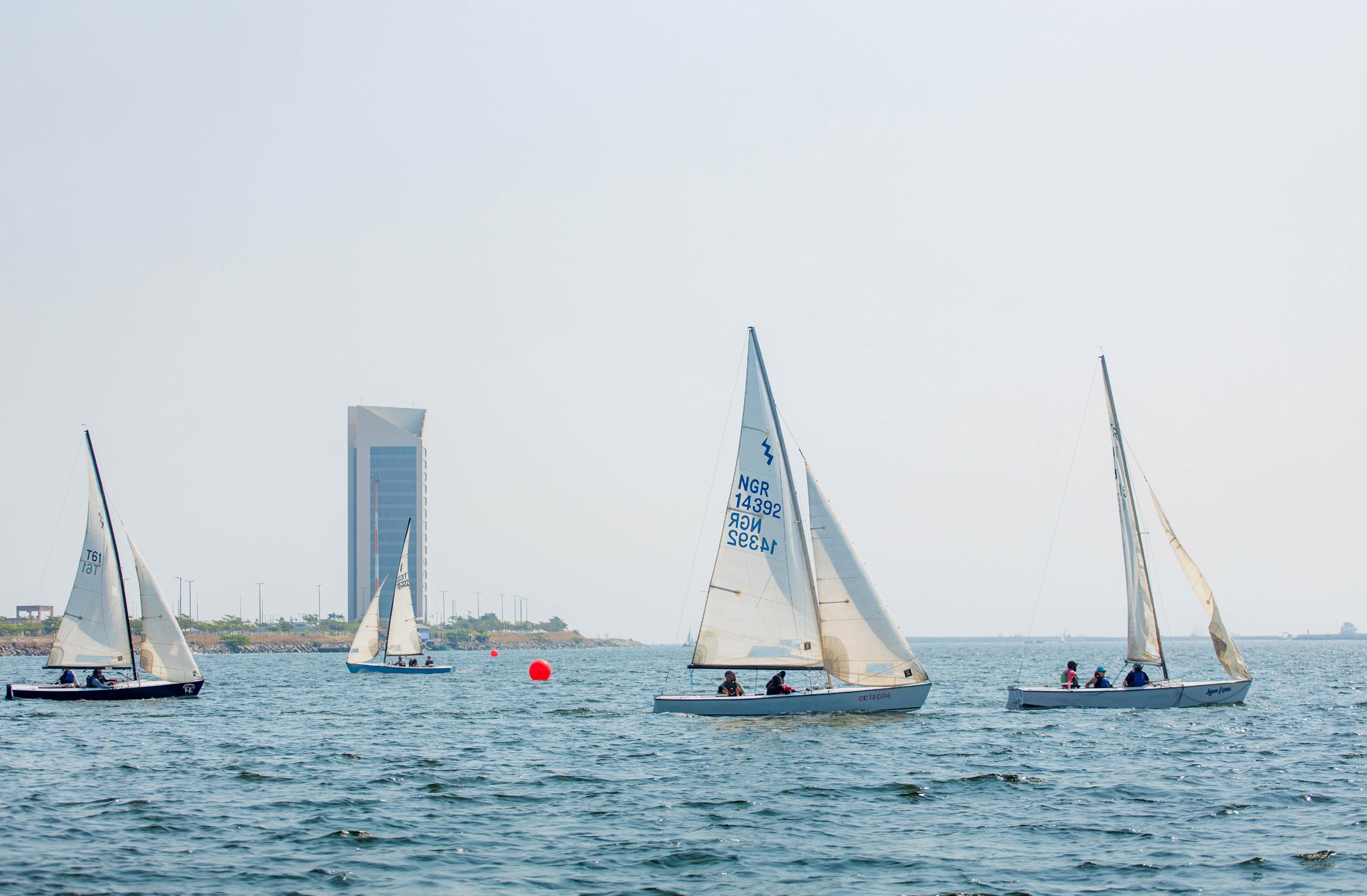


Interview Tolu Adesemowo Golfer and founder, Crossflex

Tolu Adesemowo is a seasoned entrepreneur and golfer who has made a significant impact in the sports industry. As the founder of Crossflex, he has established himself as a trusted supplier of premium golf equipment and clothing in Nigeria and beyond. With nearly two decades of experience, Tolu has built strong relationships with top brands and gained the trust of consumers by providing authentic, high-quality products. His dedication to authenticity and customer satisfaction has made Crossflex a go-to destination for golf enthusiasts.
How has golf, traditionally seen as an elite sport, become a platform for business, diplomacy, and tourism in Nigeria?
Naturally, golf should not be an “elite’ sport, because all that is needed to play it is possessed by everybody. Your hands to play, feet to walk and a good head to think, but the challenge of providing the expanse of land it requires makes it so, and perhaps the equipment, in some cases.
The few golf facilities are usually the property of private individuals or clubs, who, because of the need for sustainability or maintenance, need to demand some
commitment beyond what an average “Joe” can afford, putting it out of reach of most people. So, naturally, the class of people that the game attracts are people with an above-average income level. Businessmen and women, and even diplomats, fall into this bracket, and that is perhaps why these events fit perfectly as a platform for them.
What is the untapped potential of the Nigerian golf ecosystem, and what are we still getting wrong?
As a people, we are genetically good at sports if we make an effort at it. If we can have public courses and the government invests in a training schedule for public school-age kids to pick up the game, I mean, the government literally lowering or removing the barrier for entry, we would be amazed at the level of golf skills we can unlock from the public.
Again, I also think golf, as it is presently
constituted, can be explored and encouraged to create more green spaces and attract more tourism into the country. It has many layered ripple effects on the economy; the room for hospitality, transport, local business, employment opportunities, and different professions that would be affected.
How do we transform golfing from an elite sport to a bridge builder for corporate inclusion and access?
There are pockets of communities in Nigeria where samples of this have been proven. Some kids, through privileged access, get to play golf, and it changes their trajectory in life. Most golf-playing communities have these stories, and it can be multiplied if this is scaled, and only the government has the resources and capacity to do that. Apart from providing the facility, they can legislate it as part of the academic process.
What makes tournaments like the South African Consul Golf Cup vital to the image of golf in Nigeria? It deepens the relationship between the two countries without necessarily going through the boardroom or formal channels. A golf game takes as much as four hours, and a lot can happen in such a time. Besides, it also shows the South African community in Nigeria stretching to host, socialise and appreciate. There are many dimensions to this, but this had a broader impact beyond what can be expressed here.
Can you unpack the value chain in Nigeria’s golf industry, from events to hospitality and partnerships?
First, I think golfers are still some of the best travellers or consumers of premium hospitality products anywhere, including Nigeria. They are the ones who will book a five-star hotel for a weekend and eat in premium restaurants wherever they travel, and
hire the services of a concierge just so they won’t have to bother much with anything outside the golf they came to play. At the local club, they have the caddies, the club bar or “hole-19”; these are a value chain that unlocks in a golfing community or wherever a golf facility is situated. Mind you, this is not in any way an exhaustive list.
In your opinion, what’s preventing Nigeria from becoming a recognised global force in golf, and what would it take to bridge that gap? We need to have more access to the public courses, so we can increase our talent pool. Golf, as it is presently being structured, is basically for thriving as a social sport and on health grounds; people who hit their health goals through it.
If Nigeria were to host a global championship in golf tomorrow, what would be the most significant

I think golfers are still some of the best travellers or consumers of premium hospitality products anywhere, including Nigeria. “
gaps to fix?
We have a couple of international quality facilities; we may need to work more our administrative skills to execute such a global event. We would also need to raise our game in hospitality to match the expectations of the global standard. Live broadcast on a global level may spike the cost of such an event, but again, it is possible if ample time is given to prepare.
What does legacy look like for you? What would you love to be remembered for, not just in Nigerian sports, but in the global conversation around leadership and impact? I want to be remembered as one of the custodians of the standard of the game. From quality and right gears to event organisation and helping to unlock the growth and potential of Nigerian golf to the world.
Frank Ozomah is a distinguished lawyer, entrepreneur, and sports administrator. As Chairman of the Lagos State Cycling Association, he promotes cycling as a recreational and competitive sport, nurturing talent from grassroots to professional levels. With a successful career in law, brokerage, and travel, Frank brings leadership and vision to the cycling community, inspiring others to explore the benefits of cycling.
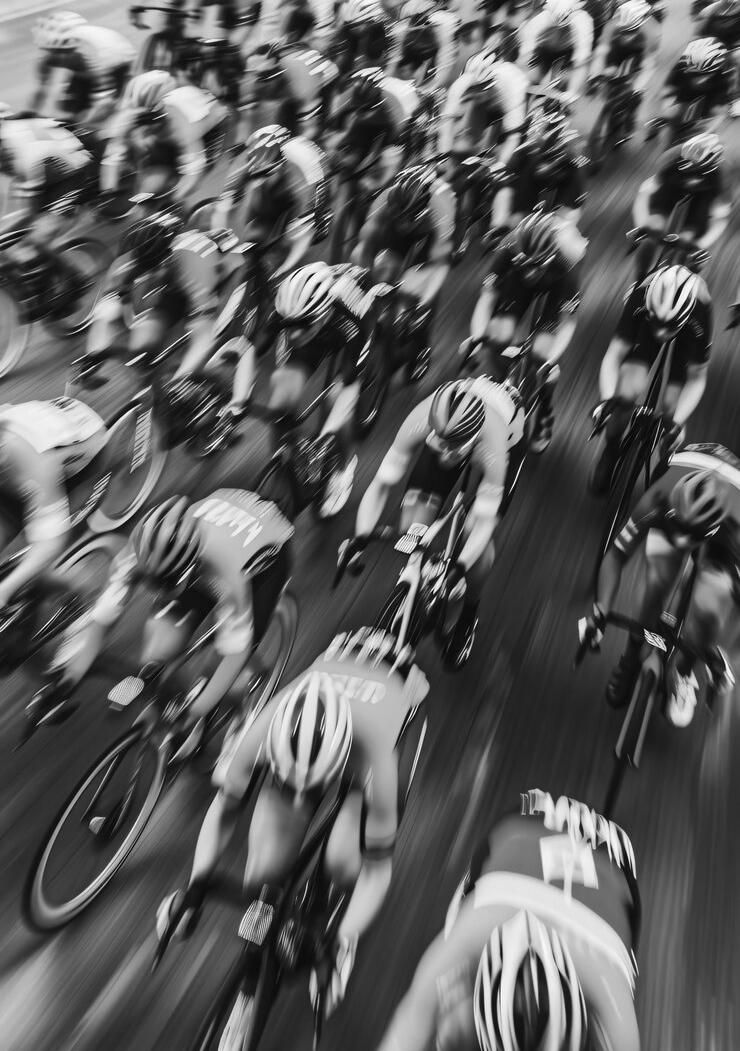
From colonial days to now, how has cycling evolved in Nigeria, and what cultural relevance does it now carry?
Well, if you’re talking of pre- and post-colonial era, particularly since Nigeria became amalgamated in 1960 and even after independence, cycling was a major form of road transportation. There were very few people with cars, and to commute from one place to the other, particularly in cities like Lagos, was done with bicycles. So if you look at pictures of Lagos in the 60s, in the 50s, you’ll see several people cycling to and from work. But then people became richer, and we evolved to owning cars.
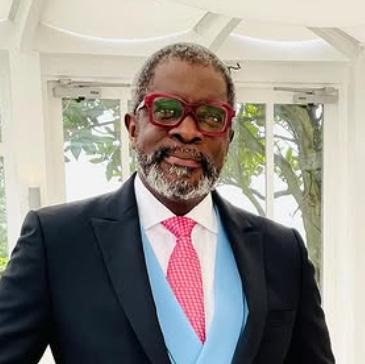
they are very embracing.
I’ll give you an example: we’ve had foreigners who came into Nigeria from Japan, Spain, and South America. They’ve all been members of our club. And one of the things they tend to comment on is how warm, embracing, and friendly we are.
Cycling was no longer a major mode of transportation. The government also started a public transport system. From the 80s to the 90s, fewer people cycled; you’d have the older person cycling, but they were few. But what has happened, particularly with our club, Cyclogy, was that it became the first cycling club in Lagos, and I want to say Nigeria as well, because I don’t think people were cycling even outside Lagos. We started the club in 2010, and we were the only ones cycling. The goal was to get people to see cycling as a major health benefit, creating camaraderie between citizens.
And we also had an ambition to sponsor, one day, hopefully, a team that will be at the Tour de France. The Tour de France is the most iconic cycling event in the world, and having a Nigerian team out there was one of the goals we set out to achieve. The way we were going to do that was to fish for talent at the grassroots, at the school level, and create a pipeline where we would have a lot of people involved in cycling. We have sponsored the Lagos State Cyclists to international leagues abroad, and now, we see several people cycling on the island, on the mainland, at clubs, etc. People are certainly more enthused about cycling.
What makes the Lagos cycling culture different from other global movements?
The cycling community here cannot divorce itself from the vibrant nature of Lagos and the Nigerian people,
Abroad, people are more individualistic. They are astonished that on our Saturday rides, we’d have anything between 50 to 80 people cycling. They don’t have those kinds of numbers in Europe or America. They are always surprised that we can gather so many people, and they feel quite at home.
Right now, we have a Cycology platform that includes all the foreign people who came to Nigeria and were members; they still communicate with the club. That’s where we are different. We’ve been able to show the warm culture of Nigeria, which is a friendly, accepting culture, through cycling.
What is your vision for cycling as a lifestyle movement across Nigeria?
As Chairman of Lagos State Cycling, the goals differ from those of other recreational clubs. The primary goal is to determine how we can support the Lagos State cyclists. We have to prepare

‘‘ The cycling community here cannot divorce itself from the vibrant nature of Lagos and the Nigerian people, they are very embracing.
and equip them so they can participate in various events that may happen locally or internationally. We have the National Sports Festival in Lagos State in May, so we have to see to the welfare of the cyclists, ensure that all their needs are met and that they are in the best shape to compete in these events. But the long-term goal is, as stated, to grow and maintain emerging talent by identifying them right from primary school.
We’re looking at a scheme to import bikes into Nigeria. In Europe, they have a strong cycling culture where they use a bike for one year and throw it away. We’re trying to find a way to get those bikes and distribute them to schools so people get interested in cycling at a very young age. Then we’ll start planning within the various local governments or school districts in Lagos, and plan events for these schools, so we can identify talents, ensuring there’s always a pipeline of athletes or cyclists good enough to represent the state at international or local meetings.
Do you have any other initiatives to catch them young? Other than what you have listed?
That’s the primary goal. If you look at countries that excel in sports; America, the United States, the United Kingdom, they all have school or district school events where those talents are identified. At both the state and national levels, they know exactly whom they want to recruit through creating competition.
It is our responsibility to organise as many events as possible in the various school districts so that they compete against each other. I’m confident that if we successfully establish the right structure, we’ll have several talented cyclists. Nigeria as a whole, in our sports industry, we’ve not been able to put a proper structure in place whereby we can identify talents to take part in various things. In the Olympics, swimming accounts for almost one quarter of all the medals earned. And you wonder, why isn’t Nigeria taking part in swimming?
Speaking of infrastructures, what would a city like Lagos look like if cycling is seen as essential public infrastructure?
We’ve had a series of conversations with the Lagos State government, and the goal is to model Lagos to be a modern city. The various environmental issues we face in Lagos will require us to change our attitude on the road. We started a campaign called Shared Road because there are maniacs on our streets, and they need to be mindful that there are people who are cycling, and we need them to be protected. We tried to create a cycling lane at Ikoyi, First and Second Avenue, but they didn’t do it properly. That was our initiative, which has to do with urban planning, on how we can change our streets to include cycling lanes.
Not just that, if we want to encourage more people to cycle, our offices need to be constructed differently so they can cycle to work and have a bath within the
office, like a lot of people do in the UK. They cycle to work in the morning, get to the office, jump into the bathroom, and get to work. After work, they get on their bikes and cycle home. This is pioneering a healthier society, meaning fewer people going to hospitals, and the government not spending as much on healthcare as it currently does. Encouraging environmental consciousness in Lagos requires paying attention to urban planning, bearing in mind that we want more people to be on the road. This involves building gradually; we’re not going to get there immediately, but a few small steps here and there will eventually lead us to change how we commute in Lagos.
What does legacy look like for you? What would you like to be remembered for, not just in Nigerian sport, but around leadership in Nigeria?
I was the first captain of Cycology, and I started with six other people. As the captain for the first four years, I succeeded in putting Cycology on a strong foundation. We started in 2010 or 2011 and are still going strong today. We started with a membership of seven people, but today, we have a membership of 200 people. With Lagos State Cycling, I want to leave a foundation where subsequent chairmen will have a foundation to develop further, being able to put in place a proper structure within the various school districts, whereby cycling is an event that takes place and is always on the calendar of the schools. That’s the legacy I would want to leave behind.

Interview
Temitope George Captain, Cycology Cycling Club

Temitope George is a lawyer with over two decades of experience in both the public and private sectors, and the founder of Protoss Consulting, where she trains professionals on etiquette and executive presence. A certified mediator and passionate cyclist, she began cycling in 2013 after joining the Cycology club, which she now leads as its fifth captain since 2022. Her love for cycling started as a personal fitness journey and has evolved into a long-term commitment to wellness, community, and leadership within the sport.
What has that journey been like from being a member to now being a captain? It’s been amazing. I joined Cycology when there were about 50 active members, and I’ve seen it grow in leaps and bounds. I guess everyone saw my passion for cycling, I didn’t just ride on Saturdays, I also cycled during the week. I became known as the solo cyclist because I’d often leave my house early to ride before work. At the office, people would say, “Oh my goodness, you’re so slim, what’s going on?” and I’d reply, “Cycling.” I shared my rides on Facebook and everywhere else, and people came to know about my love for it. From the time I joined, I was part of a subcommittee handling accommodation and logistics, then became Media and Publicity Secretary, where I led the rebranding of Cycology, and now, I’m the fifth Captain.
Cycology has had profound social and mental impacts on its members. Can you share some examples of these?
Many people, including expatriates, have said that Cycology felt like a home away from home, an ideal way to integrate into Nigeria or simply find a family. Personally, I
found my tribe, a group of people who share my interests. When my husband once ran for local government chairman, Cycology members were incredibly supportive of his campaign. Just yesterday, one of our members celebrated his 50th birthday in Egypt. I couldn’t attend because my son had just turned 13, but Kelly, the celebrant, posted a heartfelt appreciation about how Cycology is his second family. Another member, Kingsley, also turned 50 and said, “Thank you all for reminding me why I joined Cycology, the camaraderie, the family, the calls, even if I don’t ride often with everyone.” For the past 13 years, Cycology has been a constant in my life. People sometimes joke that it’s like a cult or a clique, but really, everyone finds their place. And if it is a cult, then so be it, because it’s one where people become stronger, fitter, and healthier; some even get off high blood pressure meds thanks to the shared commitment to fitness and community.
In your capacity as a captain, what would you say are some of the challenges that you currently face?
When Cycology started, we were the only
The ‘Sports’

ones cycling; if you thought of cycling in Lagos, you thought of Cycology. Over time, new clubs have emerged, especially on the mainland, with some of our former members setting up their groups. We fondly refer to them as our siblings on the mainland. While this expansion is a strength, it also presents a challenge: with more clubs out there, we need to raise our game, particularly in attracting younger members. As captain, I manage a club of over 200 people, including captains of industry, which can make coordination a bit demanding. Still, we’re fortunate to have reasonable people who see the club as a family, so overall, compliance remains high.
I saw a campaign about sharing the road movement. What does sharing the road mean to you and the community? Cycology launched the Share the Road campaign in 2018 while I was serving as media and publicity secretary. We worked with design consultants to develop compelling slogans, which we shared across radio, television, social media, and directly with public and private transport workers to raise awareness that cyclists are recognised road users under the Highway Code. The message was simple: we all have equal rights to the road, and we must share it responsibly. Many of us cycle for mental health, to manage work and life stress, and to navigate the challenges of living in Lagos. That’s why this campaign matters: you can’t push us off the road. We also emphasise safety and compliance among our members: we obey traffic rules, ride with the flow of traffic, stop at lights, and use hand signals. Cycology promotes safe cycling for everyone. We’ve had the support of the Lagos State Government—the governor, a cycling enthusiast himself, even invited us for breakfast last year and commended
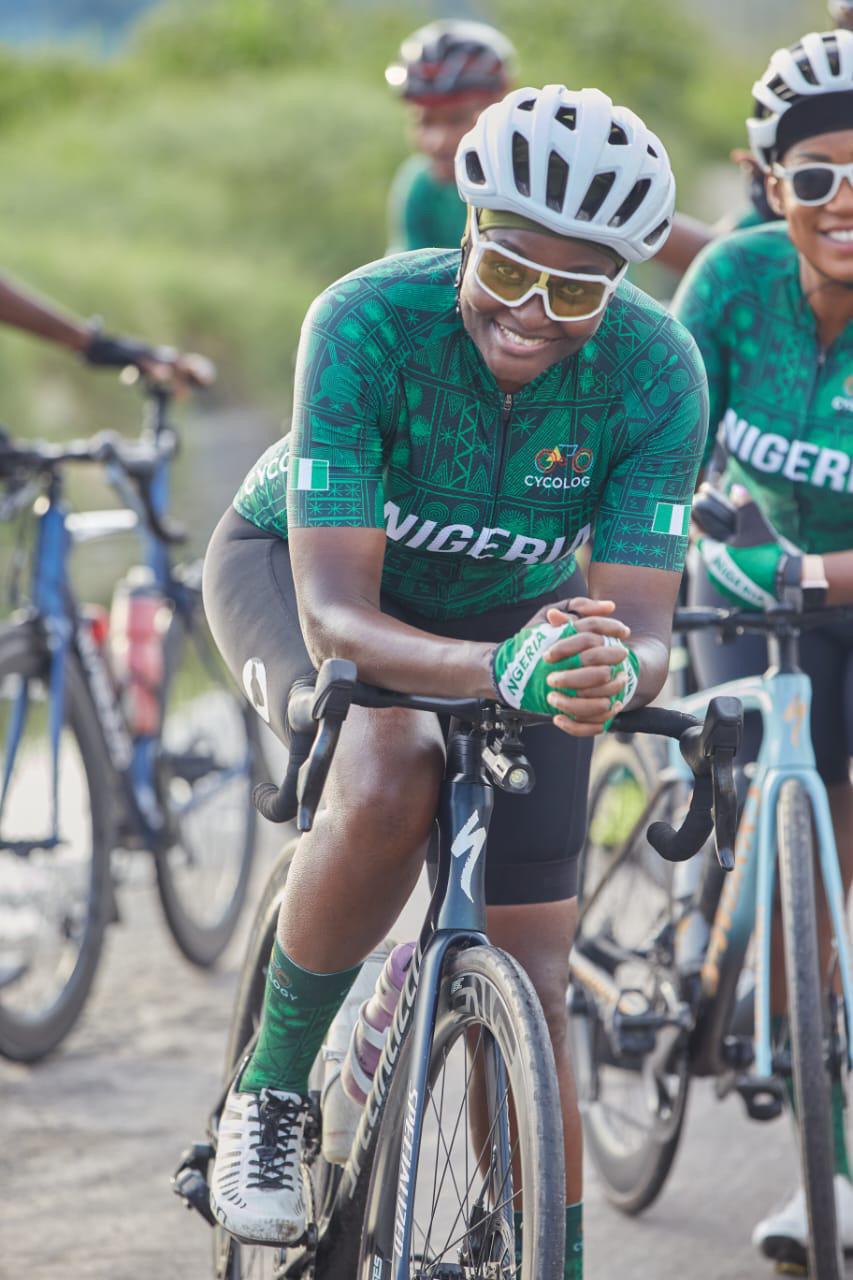
our contribution to a greener Lagos. We actively support the Lagos Non-Motorised Transport Policy led by the Ministry of Transport and LAMATA, and we collaborate with the Lagos Urban Development Initiative. It’s all about encouraging alternative transport for health, wellness, and safety.
What would a city like Lagos look like if cycling were seen as an essential public infrastructure?
There will be dedicated cycling lanes, clear road markings, and signs on major roads across Lagos indicating “cyclists are coming,” much like what exists for BRT buses. It’s possible, we’ve all seen how Lagos has evolved. With continuous education and awareness through our Share the Road campaign and support for the Lagos Non-Motorised Transport Policy, we believe that once people know better, they’ll do better. A megacity like Lagos should not only adopt such changes, it should lead the way.
What would you like to be remembered for as the fifth captain of Cycology?
I would like to be remembered as a pioneering captain. It was during my tenure that we took the Share the Road campaign beyond policy; we brought it directly to the streets, to bus stops like Yaba and road parks, engaging with the public firsthand. To commemorate International Women’s Day, we also held an all-women’s race featuring female cyclists from across Nigeria, including Olympian Ese Lovina Upasereye from Delta, who emerged the winner. I take pride in being a captain who not only spoke but took action, backed by a strong and supportive team that helped turn vision into reality.
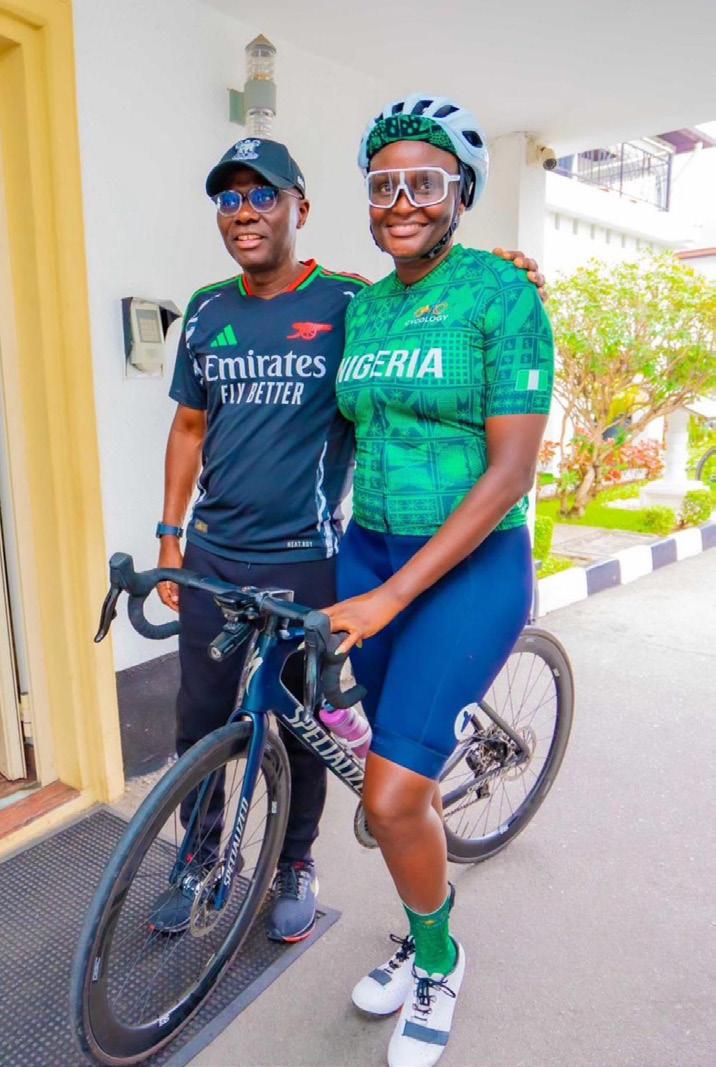

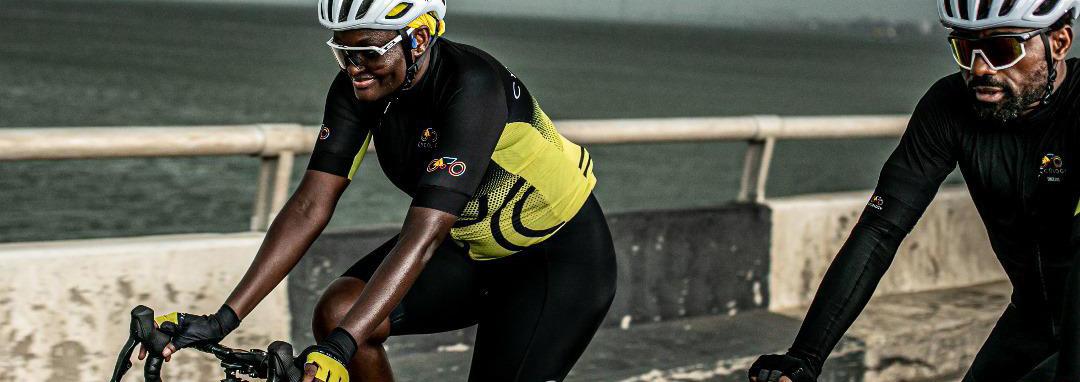

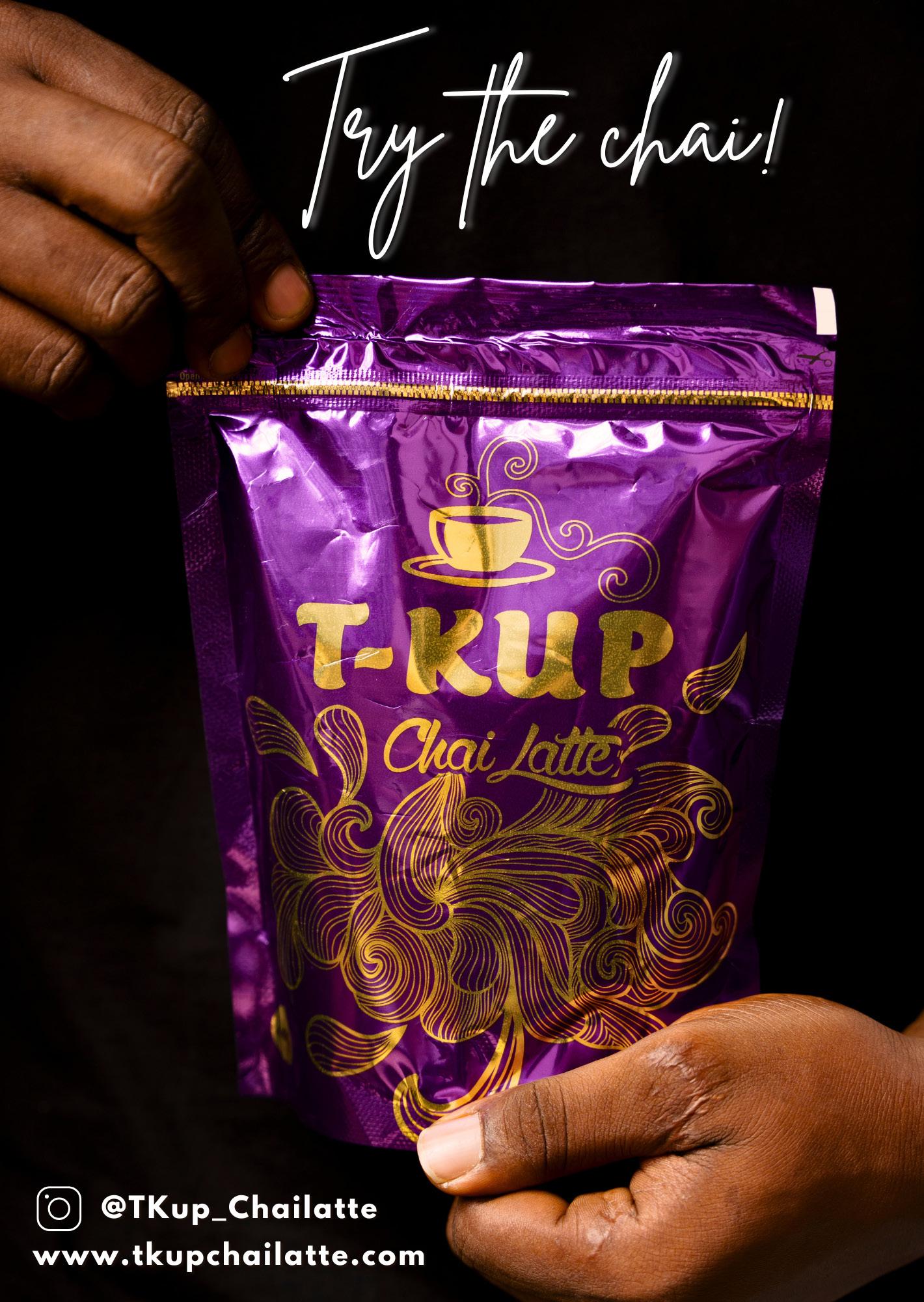

By: Matildah
Digital Marketing Executive, Lost in a City
Embark on an unforgettable journey with your family as you explore the world’s wonders. We’ve handpicked 10 family-friendly global destinations that blend adventure, relaxation, and cultural discovery perfectly. These spots promise moments that will bring you closer together and create memories to last a lifetime.
The Ikoyi Polo Club hosts exhilarating chukkas, where exciting rounds of four-member teams gallop across manicured grass, executing swift passes and strategic plays under professional umpiring. Each match is a test of horsemanship and teamwork. Riders of all levels refine their skills through riding drills, stick-and-ball practice, and interclub tournaments that foster competition and camaraderie.
Polo Road, Off Ribadu Road, South West Ikoyi t: 0909 114 2133 IG: @lagospoloclub
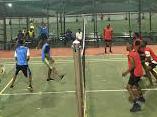

At Leisure Sports Park, indoor volleyball matches feature six‐player teams diving for spikes and strategic sets on professional-grade courts. Players join weekly leagues and drop‐in scrimmages, while certified coaches run clinics on serving mechanics, defensive formations, and rotational strategies to sharpen both individual technique and team synergy.
39 Kusenla Road, 4th Round‐About, Ikate Elegushi, Lekki T: 0814 000 0208 IG: @leisure_sports_paintball
Golfers at Lakowe Lakes tackle an 18-hole championship layout and a par3 course, honing drives, approach shots, and putting on undulating greens designed by Robert O’Friel. The academy offers swing analysis, bunker play workshops, and on-course strategy sessions, complemented by regular member‐guest tournaments and charity outings that blend competition with course camaraderie.
2

Kilometer 40, Lekki–Epe Expressway, Ibeju-Lekki T: 0812 199 7381 IG: @lakowe_lakes 4

Flag football at Showtime Arena features fast-paced, non-contact play on artificial turf; seven‐player teams execute quick passes, routes, and defensive flag pulls under floodlights for evening matches. The SFFL runs seasonal leagues, skills camps, and all-star games, while coaches teach playbook schemes, agility drills, and team‐building exercises to sharpen athleticism and gridiron IQ.
Meadow Hall Way, Alma Beach Estate, Lekki t: 0903 668 2255 IG: @showtimearena

Herel Play’s FIFA-standard five-a-side pitch hosts high-intensity mini-matches where teams rotate every 20 minutes, emphasising quick passing, tight turns, and relentless pressing. Organised leagues and drop-in sessions are complemented by technical training on ball control, finishing drills, and tactical positioning, ideal for players seeking a competitive edge and social play.
14 Ruxton Road, Ikoyi t: 0916 983 0299 IG: @herel.play


Padel at The Padel House features fast rallies on enclosed glass courts, combining elements of tennis and squash with two‐player doubles as the standard format. Clinics cover serve‐and‐volley technique, wall rebounds, and tactical positioning, while weekly ladders and tournaments foster a vibrant community of both novices and seasoned padel enthusiasts.
41, Ribadu Road, Ikoyi t: 0913 011 1333 IG: @thepadelhouse_nigeria
Fencers at Lagos Fencing Club engage in foil, épée, and sabre bouts on electronic pistes, practising lunges, parries, and ripostes in both private lessons and open sessions. The club hosts regular age‐group leagues and interclub tournaments, while coaches emphasise footwork drills, bladework precision, and strategic bout planning to develop competitive champions.
6a, Otunba Adedoyin Ogungbe Crescent, Lekki Phase 1 t: 0809 400 7777 IG: @lagosfencingclub

Tafawa Balewa Square Cricket Oval, Mission Street, Lagos Island t: 0706 993 4264 7 9
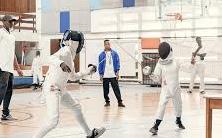
The Cricket Lab offers batting practice in three net lanes and simulated bowling via automated machines, focusing on drive, pull, and defensive stroke mechanics under varying speeds. Coaching includes video‐analysis breakdowns, fielding drills, and match‐scenario nets, supplemented by outdoor practice on the oval and competitive indoor leagues.
Grass and hard‐court tennis at Lagos Lawn Tennis Club features singles and doubles matches with emphasis on serve‐and‐volley tactics and baseline rallies. The club’s calendar includes junior circuits, mixed doubles mixers, and the annual Governor’s Cup, while coaches provide stroke clinics, match‐play strategy sessions, and fitness routines tailored to tennis performance.
Opposite Tafawa Balewa Square, Lagos Island t: 0909 999 1280 IG: @lagoslawntennisclub1895
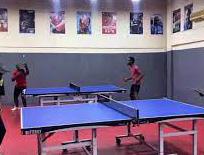

Ozone Table Tennis Club runs rigorous table-tennis sessions focusing on spin generation, footwork drills, and rally consistency on professional‐grade tables. Members compete in weekly internal leagues and workshops on serve variations, forehand loops, and defensive chops, all under the guidance of certified coaches who emphasise technique and match tactics.
Teslim Balogun Stadium, Surulere, Lagos t: 0806 416 2758 IG: @ozonetabletennisclub
By Enemona Udile
A good breakfast is important for a healthy start. Especially if you’ll do some heavy lifting that day and you’re not sure about lunch. This breakfast combo with the ultra-creamy Pomovina fresh parfait is the surest way to achieve that goal. Here’s how to make it.
Ingredients
1 Full Chicken Thigh
2 Teaspoons Paprika
2 Teaspoons Curry
2 Teaspoons Thyme
1 Rosemary (Fresh Stick)
2 Oranges
1 Onion Bulb
2 Seasoning Cubes
2 Tablespoons Oyster Sauce Fresh Pepper (Chopped): As Preferred
Barbecue Sauce: As Preferred
1 Ginger
1/2 Bulb Garlic
1/3 Cup Pomovina Fresh Unsweetened Greek Yoghurt
500ml Pomovina Fresh Parfait
1. Start by blending a generous amount of Pomovina Fresh unsweetened Greek yoghurt until it’s thick and creamy.
2. Add curry, paprika, thyme, black peppercorns, a squeeze of fresh orange juice, seasoning cubes, and a touch of oyster sauce.
3. Blend everything until perfectly smooth, then pour the mixture into a Ziploc bag with your chicken and let it marinate for at least 30 minutes to an hour if time allows.
4. While the chicken marinates, chop up some onions, ginger, garlic, coriander, and colourful

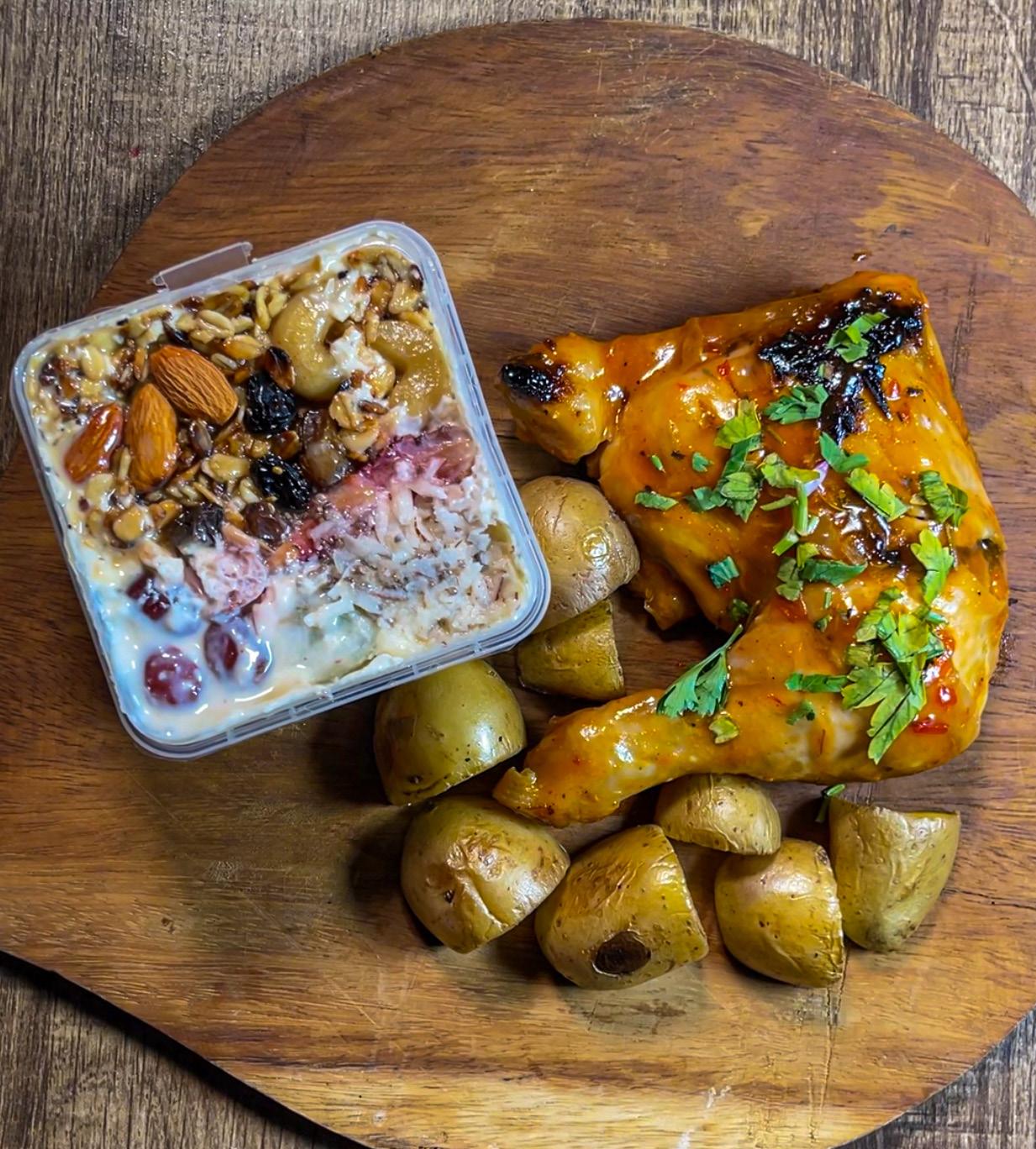
peppers.
5. Once the chicken has absorbed all that rich marinade, pan-sear it over medium heat in butter and a few sprigs of fresh rosemary, occasionally basting it with the marinade to lock in moisture and flavour.
6. Once the chicken is golden and toasted on both sides, remove it from the pan.
7. In the same pan, toss in your chopped onions, peppers, ginger, and garlic, allowing them to cook until fragrant.
8. Add a splash of barbecue sauce and a little more orange juice, then transfer everything to the
oven to finish.
9. As it cooks, your kitchen will be filled with the most heavenly aroma.
10. Once done, coat the chicken with the barbecue glaze and finish with a sprinkle of fresh coriander.
11. Let it rest for a minute before serving.
12. For a refreshing touch, plate the chicken with freshly sliced mangoes and a cold Pomovina Fresh parfait mix, filled with granola, sweetened yoghurt, strawberries, grapes, apples, chia seeds, and coconut. It’s the perfect high-energy breakfast, best enjoyed cold.
To get your hands on the freshest ingredients for this meal, go to “pomovina fresh” on instagram and treat yourself to the healthiest Naija breakfast.


Enemona Udile is a dynamic force in the culinary world, making waves in his 20s as Head Chef at the renowned Whiskey Mistress. A rising star, he claimed victory at the Gino X Capital Picnic Cooking Contest in 2024. Beyond the kitchen, Enemona is also a talented writer, content creator, and food journalist, using storytelling and social media to inspire a wider audience to explore the rich world of cuisine.
TIMELESS BEAUTY INSIDE OUT


WORLD-CLASS HEALTHCARE
At Proskin Clinic, we proudly offer LaseMD by Lutronic a cutting-edge, non-invasive laser treatment designed to transform your skin from within Using advanced fractional laser technology, LaseMD targets a wide range of concerns to reveal a clearer, smoother, and more radiant complexion
FAMILY PLANNING EMPOWERED CHOICES, EXPERT CARE
One Wellness Centre provides confidential, judgment-free family planning services tailored to your life, goals, and future Whether you’re spacing your children or choosing not to have more, our expert team is here to guide you through your options



Whether you’re struggling with hyperpigmentation, melasma, acne, acne scars, or uneven skin tone, LaseMD delivers powerful results with:
Minimal discomfort
Little to no downtime
Safe treatment for all skin tones
Visible, long-lasting improvements

If you’re ready to achieve flawless, glowing skin LaseMD is your solution OUR SERVICES INCLUDE
Take charge of your reproductivie health with One Wellness Centre From long-acting options to short-term methods, our compassionate professionals provide support every step of the way
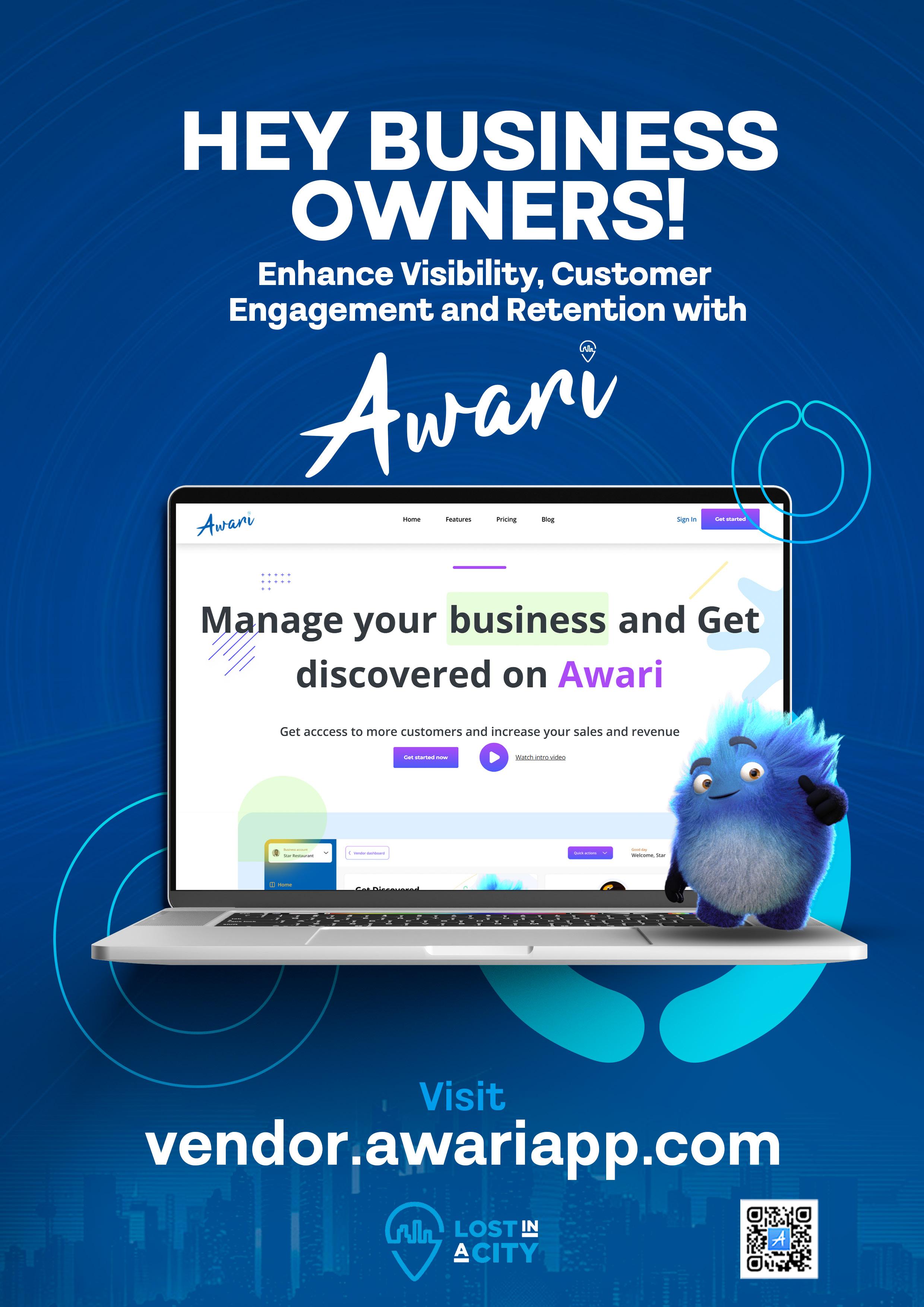



By Adewale Emmanuel Toriola Pro-Boxer IG: toriolaadewale

The terms “fight” and “boxing” are often used interchangeably in casual conversation, but they represent fundamentally different concepts. While both involve physical confrontation, their context, purpose, rules, and cultural significance diverge greatly. Boxing is a regulated sport with clearly defined rules, while a fight is typically an unregulated, spontaneous conflict that can occur anywhere, for any number of reasons.
Boxing is an ancient and respected sport with a long history. It has evolved into a professional and amateur discipline practised worldwide, governed by organisations that maintain the rules of fairness, safety, and sportsmanship. Boxers train for years to master footwork, punching techniques, defence, and conditioning. Matches are held in a ring with referees, judges, weight classes, and time limits. The aim is to outscore the opponent or achieve a knockout, but the competition unfolds within mutual respect and clear guidelines.
On the other hand, a fight is typically spontaneous and unregulated. Fights can occur due to personal disputes, self-defence situations, or emotional outbursts. The absence of referees and time constraints often results in a lack of regard for safety and fairness. Fights are more likely to result in serious injury or even legal consequences. Unlike boxing, which requires discipline, control, and respect for an opponent, fights often stem from anger, fear, or aggression and can spiral into chaos.
The motivations behind each are also distinct. Boxers enter the ring to test their skills, pursue titles, or earn a living. They accept the risks involved, but these risks are managed through strict protocols. Fighters in unsanctioned brawls, however, may react to provocation or defend themselves without warning. The spontaneous nature of a fight means neither side is prepared mentally or physically, just like boxers are when they walk into the ring.
As a pro-boxer who has been boxing for several years now, one thing that has helped me rise through the ranks is my ability to remove myself from aggressively fighting, throwing punches that do not land a mark or knockout my opponent. I enjoy the sport for the fun of it
It has influenced my life in many ways. I’ve been awarded the best worker of the year several times because of how calmly I
handle situations and how tactically I can be in the face of confrontation. Now I’m not saying boxers don’t get angry or aggressive because we are humans too, and aggression can also be a useful tool when used correctly. However, the game of boxing, like most sports, is built on tactics and patience rather than on aggression and brutality.
Another key difference is public perception. Boxing, as a sport, is broadcast on television, celebrated with championships, and respected for the athleticism and courage it demands. Fighters like Muhammad Ali and Mike Tyson are not just athletes but cultural icons. Fights, by contrast, are often viewed as antisocial behaviour. Whether it’s a street fight or a bar brawl, these encounters tend to be seen as negative, undisciplined, and potentially criminal.
While boxing and fighting might appear similar on the surface due to the use of physical force, they are fundamentally different in intent, structure, and consequence. Boxing is a sport, a disciplined, rule-bound competition, while a fight is typically a raw, uncontrolled confrontation. Understanding the difference not only clarifies the nature of each but also emphasises the importance of control, respect, and context in physical conflict.


Lost in Nigeria? No worries, as we’ve got you covered. Explore the diverse and captivating points of interest scattered across the country, curated just for you. Whether you’re seeking cultural immersion, outdoor escapades or culinary delights, we handpick a selection of upcoming experiences for you to discover and indulge in every month.

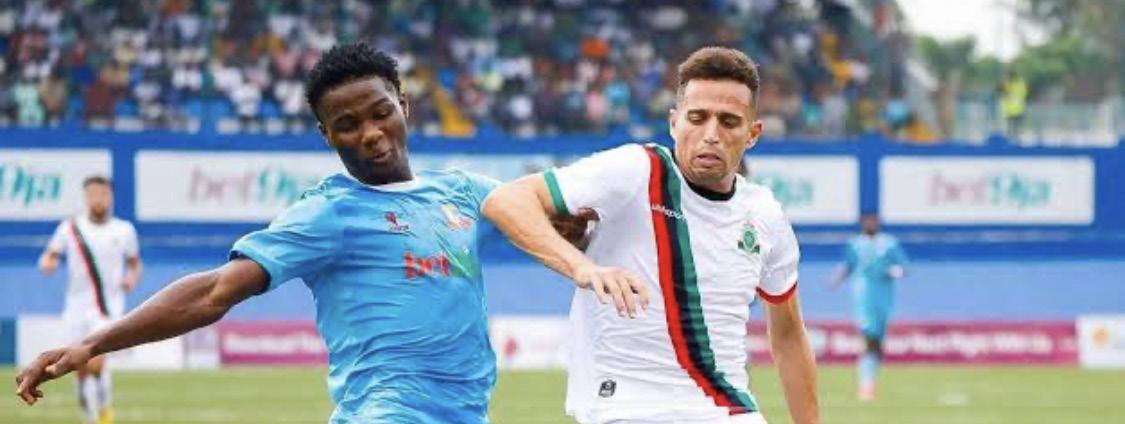



Lagos Alpha Flag football vs Panthers
Clash of the Titans. Get ready for an electrifying showdown as Lagos Alpha Flag Football takes on Panthers Sports at the iconic Showtime Arena! Sports, glitz, glam, but make it football. Expect a runway, truly a match to remember.
May 5th, 2025 | 6:45pm | Showtime Arena
Elkanemi Warriors FC vs Remo Stars FC
Witness the speed, agility, and strategy as the Elkanemi Warriors FC and Remo Stars FC battle it out on the field, sweats, grits and spirit. Who will emerge victorious? Be there to find out!
May 7th, 2025 | 3:00pm | Elkanemi stadium
Plateau United vs Lobi Stars
The Battle Begins. Witness the thrilling encounter between Plateau United and Lobi Stars at the New Jos Stadium! Both teams will clash in a battle of skill, strategy, and determination. Who will reign supreme? You don’t want to miss this game. It is a perfect opportunity for explorers, visitors and football enthusiasts to catch this local team in action and witness the spirit of Nigerian soccer
May 11th, 2024 | 4:00 PM | New Jos Stadium
Swing Against Cancer Golf Tournament 2025
4 Players per team, 1 pitch and 1 goal, to Swing and save. Get ready to tee off for a cause at the Ikoyi 1938 Golf Club, for a fun-filled day of golf, networking, and fundraising. Every birdie brings us closer to beating cancer! Come get entertained whilst still saving lives at this golf event happening this may Register Now and Make a Difference! Perfect location to spend your money towards a profitable cause and what’s better is that it’s Golf.
May 8th, 2025 | Ikoyi club 1938 Golf Club
Ikorodu City FC vs Abia Warriors
Get ready for an action-packed battle as Ikorodu City FC hosts Abia Warriors at the iconic Mobolaji Johnson Arena, Onikan! Expect high-flying tackles, stunning goals, and edge-of-your-seat action! Who will emerge victorious? Join us for an unforgettable afternoon of football, excitement, and community!
May 25th, 2025 | 4:00 PM | Mobolaji Johnson Arena, Onikan

By Ziko Ezekiel Sports Writer IG: ziko_ezekiel
Every now and then, a new sports betting company is launched in Nigeria, and it’s easy to see why. The industry has been on a steady rise in recent years, and it doesn’t look like it’s slowing down. Among Gen-Z and Millennials alike, sports betting has become a form of entertainment for some, and for others, a form of financial investment, or worse, a lifestyle or addiction.
It’s hard to tell if the rapid growth of the sports betting industry in Nigeria has anything to do with the cutting corners and quick fix mindset of a lot of Nigerians, because when it works, making money doesn’t get much faster than that. Whether it is done as a form of entertainment or an addiction, the primary motive remains quick money - the potential of multiplying your money in no time, albeit the risk of losing it.
According to the TGM sports betting survey conducted in Nigeria in October 2022, 70.22% of people who bet on sports are driven by desire, while 44.72% say they enjoy the excitement of sports betting. Apart from the potential of making quick money, the accessibility of sporting stations and sites heightens the patronage of it. Whether online or offline, it is incredibly easy to find and use sports betting sites and shops, and the process itself is almost effortless. Sitting with your phone for a few minutes, you can very easily send money to their betting accounts and place a stake on games. And for those without a phone or internet, all they have to do is stroll into one of the countless betting shops around and place a bet. With this level of ease and accessibility, coupled with the potential of making quick money, it’s hard to see a fall in the patronage

This begs the obvious question: is sport betting now a Nigerian culture, or is it just one of those phases we experience every now and then? With an estimated 60 million Nigerians actively involved in sports betting, raking in over 2 billion dollars, it is quite difficult to see how this phase will pass without a fight.
Another major factor impeding its advancement is the culture of football in Nigeria. Sport betting offers a lot of different options of events to bet on, but by far, football betting specifically has the most patronage, and it is as a result of the culture of football in Nigeria. European football, especially, has a massive fan base, and this translates to betting on European football matches. The familiarity, strong interest and knowledge a football fan has in football gives them more confidence to make predictions on the outcome of football matches, and when the option of monetising these predictions is easily accessible, why not, right? Fortunately or unfortunately, as long as the football culture grows in Nigeria, it’s hard to see sports betting doing otherwise.
The negligence of the government to set up effective regulations in Nigeria is another factor that definitely affects the growth of sports betting, an industry that, in some ways, exploits vulnerable individuals. With no parameters to check the activities of betting companies and shops, a deplorable outcome might ensue -
An increase in poverty, theft and substance abuse, as these betting stations continue to become shelters to their addicts and victims, creating the perfect cocoon to grow the pathogen that is poverty. If sports betting is to stay and continue on this steady rise. It should not go unchecked.
By Akinola Alli. Content writer
The NPFL was established in 1972 to provide a structured and competitive football environment in Nigeria. In 1990, the league underwent professionalization to enhance its standards and operations. Over the years, it has evolved to become the top-tier football league in Nigeria, showcasing the country’s best football talents. Typically, 20 teams compete in a round-robin format, and the season runs from August to May after which, top teams qualify for CAF Champions League and CAF Confederation Cup.
Here are five prominent Nigerian clubs part of the NPFL.
01 02 03 04 05
Enyimba International FC
Enyimba International FC, located in Aba, Abia State, is one of the most prominent clubs in the Nigeria Premier Football League, nicknamed the “People’s Elephant.”
They have achieved significant success, securing 9 NPFL titles and 2 CAF Champions League titles, and play their home matches at the Enyimba International Stadium.
Kano Pillars FC
Kano Pillars FC, located in Kano, Kano State, and nicknamed “Sai Masu Gida,” is another prominent club in the Nigeria Premier Football League with a notable history, including securing 4 NPFL titles; their home matches are played at the Sani Abacha Stadium.
Rangers International FC
Rangers International FC, located in Enugu, Enugu State and known as “The Flying Antelopes,” stands out in

the Nigeria Premier Football League with a record of 7 NPFL titles, playing their home matches at the Nnamdi Azikiwe Stadium.
Shooting Stars SC
Shooting Stars SC, based in Ibadan, Oyo State and known as the “Oluyole Warriors,” is a significant club in the Nigeria Premier Football League with a record of 5 NPFL titles, and they play their home matches at the Lekan Salami Stadium.
Rivers United FC
Rivers United FC, nicknamed “The Pride of Rivers,” is a top club in the Nigeria Premier Football League, based in Port Harcourt, Rivers State, and plays their home matches at the Yakubu Gowon Stadium; the club has achieved success by securing 1 NPFL title in the 2021–22 season.
In summary, the Nigeria Premier Football League plays a vital role in the nation’s football ecosystem, fostering talent development by providing a platform for local players to hone their skills and move on to national and international levels. Economically, the league generates employment, boosts tourism, and stimulates commerce during match days. Furthermore, NPFL clubs often act as cornerstones of their communities, building strong relationships with local supporters and investing in youth development initiatives.
Interview Coronavirus
Dambe warrior

Meet Abdullahi Ali a pro Dambe warrior from Baban layi local government area. He is popularly known as Coronavirus, a name that started as a joke but now stands testament to all his wins and successes in the game.
I have
is
What is your real name, and how did the nickname “Coronavirus” come about?
My real name is Abdullahi Ali. The name “Coronavirus” was given to me in the dambe house — it started as a nickname and stuck.
What house do you represent and what does it mean to you?
I represent the Kudu house in Kano. The house means everything to me because it’s where my journey truly began and it’s more than just a house to me; it’s a family that shaped who I am today. In dambe you are not allowed to fight an opponent of the same house, so the house you belong to is significant to the family and they show support and give morale during a fight. I am proud to fight for house Kudu.
How has being part of Dambe changed your life or helped your family?
Dambe has completely changed my life. Everything I have today is because of this sport. It’s how I support my parents and help my brothers pay for their education
What dreams do you have for your future in the sport?
I still have big dreams. I want to continue fighting and I’d also love to see Dambe grow more, so that people around the world understand and respect what we do.
If a young person wanted to join Dambe, what advice would you give them?
I would tell them to be focused and serious. Dambe is not just a sport; it’s part of our culture. If you respect it, it will give back to you. You have to train hard, be patient, and stay disciplined. Most of all, you should believe in yourself and trust that God will open the way for you, just like He did for me.


Dan Autan is a warrior, coach, mentor and teacher. He has been a Dambe coach for over 10 Years, acquiring a wealth of knowledge which he passes down to his team and trainees with love and passion helping them understand not only the physical techniques of Dambe but also its cultural roots and warrior spirit. The game of Dambe isn’t all wit and might but spirit and tenacity and that is what he teaches his players daily. He comes from a long line of dambe coaches/ warriors. For him, Dambe is not just a sport, it’s part of his life, his heritage.
How do you spot talent in a sport as physical and cultural as Dambe?
Talent in Dambe is not just about muscle or speed, it starts with the heart. I look for fighters who have fire in their eyes, those who are not just fearless but humble and value culture. Some boys walk into the arena and you can tell that they were born for this.
What are the key mental and physical traits of a great Dambe fighter?
Mentally, a great Dambe fighter must be brave, focused, and spiritually grounded. Dambe is not like other combat sports as it tests your mind just as much as your body. You need to know when to strike, when to wait, and how to read your opponent’s spirit. Strength matters, yes, but so does strategy and stamina. A true warrior trains both his
mind and body
What’s your proudest moment as a coach so far?
There have been many proud moments, but one that stands out was when one of my boys, a quiet, stubborn lad who used to sell sachet water won his first major Dambe match. I remember seeing tears in his eyes as he raised his hand in victory. That moment wasn’t just about a win, it was about transformation. He found his voice through the sport. Moments like that remind me why I coach.
What do you think people misunderstand the most about Dambe?
People often think Dambe is just a brutal, raw fight. They see the punches but miss the poetry. Dambe is full of tradition — the rituals, the music, the honour code. It’s a cultural ceremony as much as it is a competition. Fighters don’t just fight for money or fame they fight for their family name, for their house, for the pride of their people. If you don’t understand that, then you don’t understand Dambe at all.
In what ways do you see the sport evolving over the next 10 years?
In the next 10 years, I see Dambe becoming a global sport. With platforms like African Warriors Fighting Championship, more people are beginning to recognise its value and cultural heritage. I am hoping we see more international participation and recognition and better global recognition for dambe. But even as dambe grows, my hope is that we keep its roots strong; the traditions, the values, the storytelling. Dambe will go far, but it must never forget where it came from.
“A true warrior trains both his mind and body”

Interview Ibrahim Sagna Executive Chairman of Silverbacks Holdings
You have deep experience in global finance and investment, what excites you about sports, particularly Dambe, as an investable asset?
We allocate capital and resources to high growth industries and areas that remain underserved in Africa, especially industries that have the potential to redefine the region’s position on a global scale. We target tech enabled businesses able to capture growing shares of export oriented revenues. We have had great success in the fintech sector and increasingly in sports and entertainment. Combat sports have a global appeal and the estimated 550 million global fans have an insatiable appetite for more.
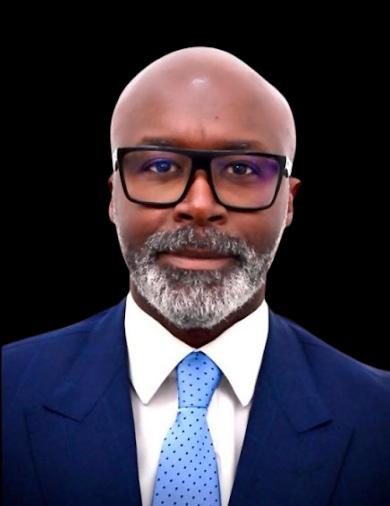
Africa possesses a gem in Dambe. In my home country, Senegal, we have a similar traditional sport; Laamb wrestling. It has historically commanded the largest pools of corporate sponsorships ahead of any other sports (from leading banks, the national betting company and telecom operators like Orange and Sudatel, who’ve contributed in the tunes of many millions of euros per year). We believe that Dambe can achieve an even bigger success. Our local portfolio company AWFC has already secured FX based sponsorship from Stake, an official sponsor of the UFC, who did its inaugural Africa sponsorship with AWFC, and recently partnered with the Netflix of sports, DAZN (which is backed by SURJ, a sovereign wealth fund of Saudi Arabia).
What unique potential does Dambe offer investors compared to traditional global sports?
The power of Dambe resides in its authenticity.. Anyone, no matter where they are from, can appreciate the raw competition of two warriors fighting for supremacy. Add the strong culture and traditions of the sport and you have a unique combat sports product that stands out in the global sports market place. AWFC’s jaw dropping viewership numbers, over 900 million views from fans around the world, are testament to this.
Why is now the right time for Africa to build its own sports IPs and franchises?
The world is becoming more African. Afrobeats, Amapiano, Nollywood are early signals. Culture is a weapon. It carries value
Ibrahim Sagna is the Executive Chairman at Silverbacks Holdings. a leading private investment firm focused on Africarelated companies in high-growth, underserved industries. He has experienced 30 years of global finance roles: IMF, AFC, Afreximbank and asset managers like Emerging Capital Partners (ECP) and Millennium Global.
and with the ascend of technology, it travels further, faster - visa free. We are actively working with specialists to improve and institutionalize Dambe. We want to elevate the level of its experience for both local and global audiences. While the continent is experiencing a wave of import of IP from international sports leagues such as NBA, NFL, PFL, Formula E, we believe that there is also substantial value in exporting unique local and homegrown IPs such as AWFC.
What investment model is best suited for a culturally-rooted but globally scalable sport like Dambe?
The business model for culturally rooted commercial properties like AWFC must remain anchored around high energy and top quality live events, complemented with subscriptions and merchandising in order to fuel more compelling fan experience. However, beyond everything else, it should be around technology first. Without it, the whole thing loses its crucial global play - which is absolutely critical in order to scale as it should.
How do you ensure profitability doesn’t erode cultural authenticity?
While we are deploying international capital into the company, integrating best practice processes, bringing global standards and governance, the IP and concept is developed, owned and, ultimately controlled by Africans. That’s an essential part of preserving its cultural authenticity. Furthermore, we are also keen to amplify the authentic narrative about Africa’s founders, funders and culture. We make sure we tell their stories through the media platforms we partner with such as Forbes local franchises, Tech Cabal, AllAfrica. com, African Business, Africa Private Equity News, How We Made It In Africa, Dynasty Media, Statement, Media54 or the ones we are directly invested in such as AMAKA or the ones we fully own like the IN THE VALLEY, a business podcast which has garnered a loyal base of audience of around 95k subscribers/followers and almost 20 million views across all social media platforms globally.
‘‘The power of Dambe resides in its authenticity.. Anyone, no matter where they are from, can appreciate the raw competition of two warriors fighting for supremacy

Interview Emmanuel Okona Operations lead AWFC
Emmanuel Okona is the Head of Operations at the African Warriors Fighting Championship. His role in leading the athletes and fostering productive community engagement attributes to part of the immense successes the AWFC has achieved over time. With 12+ years in community organising, BSc Town Planning, there’s no shortage of genius from him.

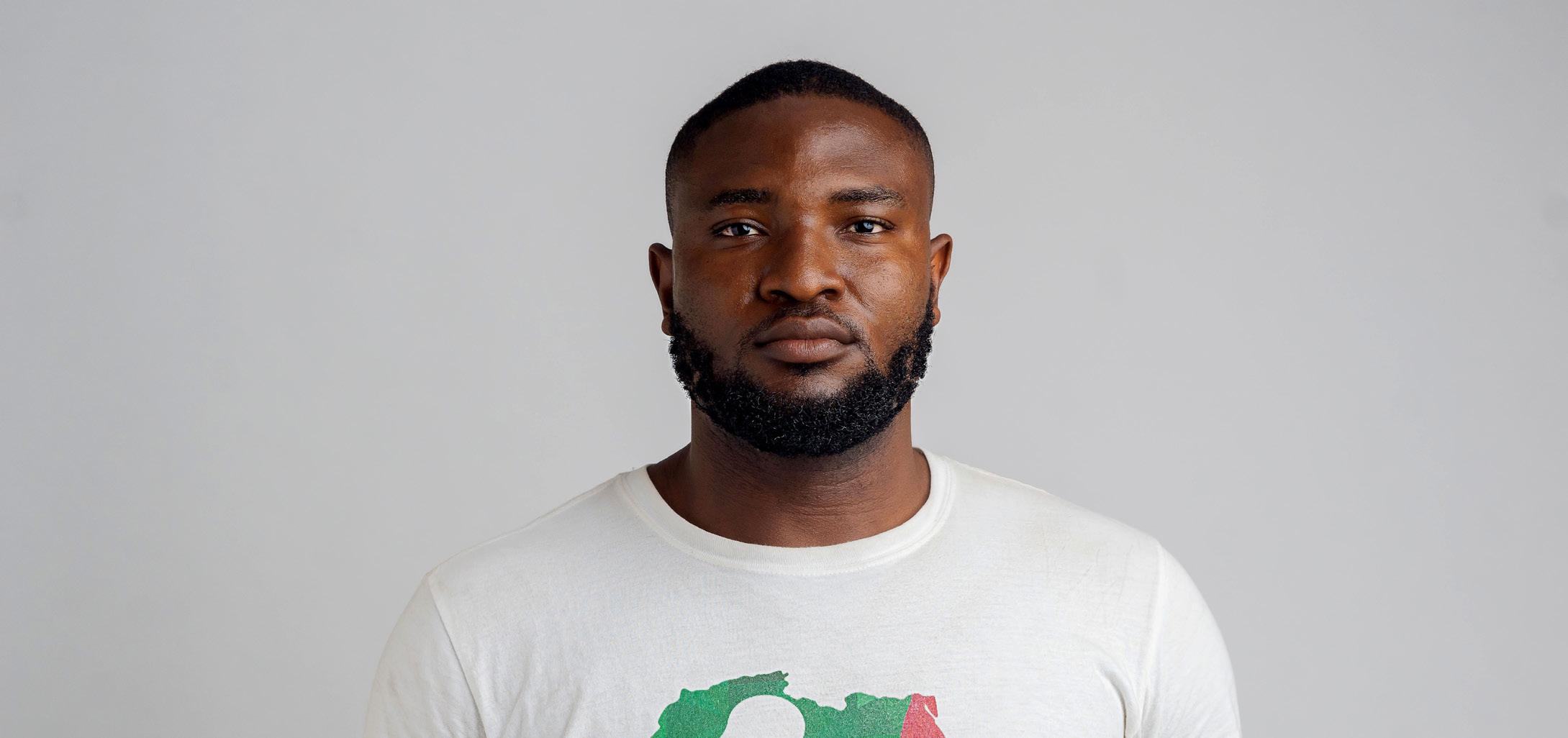
You lead athlete and community relations for AWFC. What does it take to earn trust and build credibility at the grassroots level?
Building trust and credibility at the grassroots level requires honesty, high level of transparency, emotional intelligence, grit, resilience, knowledge of history and language. You need to show a deep sense of respect for cultures different from the one you’re accustomed to and most importantly, keep a liberal mind. Leading the AWFC athletes requires a combination of these skills, because you’re dealing with raw, ruthless fighters who mostly do not understand English, who have a warfare mindset, and come from the heart of their mostly remote towns and villages. Dambe is a sport that is originally guided by local rules and is tied so much to the culture and norm of the northern Nigeria communities, so hierarchy is a big deal in these communities. So it’s almost a very delicate terrain to traverse. Over the years, we have come to understand this on a deeper level and have been able to create processes that have earned us the trust and loyalty of all the Dambe community across Nigeria. This has also enabled us to connect to the sport on a level that no one else has been able to achieve before.
How do you identify and train Dambe athletes in regions where the sport is still underground?
opportunity to experience a different form of life that is different from their everyday life. It goes from there to giving good incentives and fat match bonuses which support them and their families directly. On a community level, beyond putting them on the map, we have created inroads for government and northern elites to connect with these communities on a deeper level. In 2023 when we hosted the Emir’s Cup in Kano, it was the first time that a highlevel elite as the Emir was connecting with the Dambe fighters on a personal level. We have been able to create impacts for communities through organising local championships that have attracted positive attention to host communities, which otherwise wouldn’t have happened.
What does success look like for a Dambe athlete, beyond fame or victory?
“I see Dambe as an object of National unity. I see it as an opportunity for the youths to escape poverty”
The Dambe community is a very small community so information travels very fast here. Dambe fighters though not educated in western style are still visionary in their way. They prefer where there’s good vision and where they’ll get the opportunity to be seen by a bigger audience, so most of the time they are the ones to draw our attention to their villages. A typical big Dambe player will gladly invite you to come see the local talent in their village, and give them the chance to prove themselves. And most of the time, we listen and take the trip. This has greatly impacted the way we connect with them because they feel really honoured that we defy odds to visit their villages, connect with their leaders and give them platforms in the city to showcase their art. Once we spot the right talents(and we know them when we see them), we enroll them into structured training to teach them the AWFC Dambe rules, and polish their talents.
Dambe fighters often come from communities with limited resources, how does AWFC impact their lives and families?
For the Dambe fighters that are signed to us, it all begins with the level of exposure we give to them, it begins with giving them the
Dambe fighters are huge show men. Beyond that fame and incentives lie a huge sense of duty and loyalty owe not just to one self, but to one’s village, history and origin. To a Dambe fighter, a victory on the sand is akin to his village or clan defeating the opponent’s village or clan. So to them, success means community. Success to them means the progress of their houses’ heritage. And so when they fight, they fight for the honour of their towns and villages.
How are you preparing local talent for global competition standards?
Over the years, we have succeeded in sparking a mind-shift for the fighters in our network. This was deliberate because we always knew we were taking the sport global. So for me, we are more than ready to showcase the Dambe and its glory globally and standardisation of the rule set is a big part of that. Then there’s the training part, and we have invested heavily in that as well. We also have our plans and programs set up for integrating Dambe fighters into other forms of MMA and I’m excited about that.
What’s your long-term vision for Dambe within Nigeria’s youth ecosystem?
I see Dambe as an object of National unity. I see it as an opportunity for the youths to escape poverty. For now, it is a northern Nigerian thing but I see it being practiced and enjoyed by other regions of Nigeria and Africa, given that it is an African art and African traditional combat style.

Interview
Veronique Dos Reis Board member AWFC

M
eet Véronique Dos Reis, a seasoned entrepreneur, investor, and Frenchqualified lawyer with 15+ years of experience in tech and gaming across Europe, Africa, and Latin America. As a board member of African Warriors FC, she promotes Dambe, a traditional African martial art, blending heritage with modern strategy for global growth and sustainable development.
You bring legal expertise from the tech and gambling industries. What parallels do you see with sports, especially Dambe?
There are strong parallels in the areas of ethics, participant protection, and longterm ecosystem development. In both tech and gambling, success depends on building trust, enforcing fair rules, and offering a compelling user experience—principles that apply directly to the evolution of Dambe. From a strategic angle, growing a sport like Dambe also requires the same mindset used in scaling digital platforms: understanding your audience, telling your story, and building infrastructure for global reach.
What regulatory frameworks are most crucial in ensuring that traditional sports are protected yet commercialized ethically?

The foundation lies in creating structured federations or governing bodies that can define and enforce rules around ethics, anti-corruption, and athlete welfare. Without this, commercialization risks exploitation. For traditional sports like Dambe, the key is to protect cultural authenticity while instituting modern standards around safety, fair compensation, and transparent management.
How do you see sports betting (regulated responsibly) playing a role in expanding viewership or revenue for AWFC?
Mainstream sports often rely on sponsorship and broadcast rights—two revenue streams that can be difficult to secure for emerging or culturally specific sports like Dambe. Regulated sports betting presents an opportunity to boost visibility, drive engagement, and create new revenue channels if managed responsibly.
Securing our recent partnership with DAZN is a critical step in that direction, giving us a global platform to showcase the sport and elevate its profile. We are also actively pursuing a deal with a data rights company, which would be a major asset for both integrity and commercial value—particularly in opening the door to licensed betting operators. With proper safeguards in place, this can create a sustainable ecosystem that benefits athletes, fans, and the sport as a whole.
What does responsible governance look like in the context of a growing African sports brand?
It means prioritizing athlete support—not just during their careers but also in preparing for life after sport. This includes fair pay, health coverage, financial literacy, and long-term
development pathways. Governance should also involve building a robust pipeline for new talent, ensuring structured training environments, and creating a transparent, accountable management culture that can stand the test of international scrutiny.
What legal advice do you give to emerging sports organizations looking to expand into international markets?
You don’t need to start from scratch—there’s immense value in learning from other sports at different levels of maturity. Even if your sport lacks a global regulatory body, you can adopt best practices around contracts, athlete protection, IP rights, and governance from more established disciplines. Aligning early with these professional standards builds credibility and opens doors to international partners, investors, and fans.
‘‘ The foundation lies in creating structured federations or governing bodies that can define and enforce rules around ethics, anti-corruption, and athlete welfare

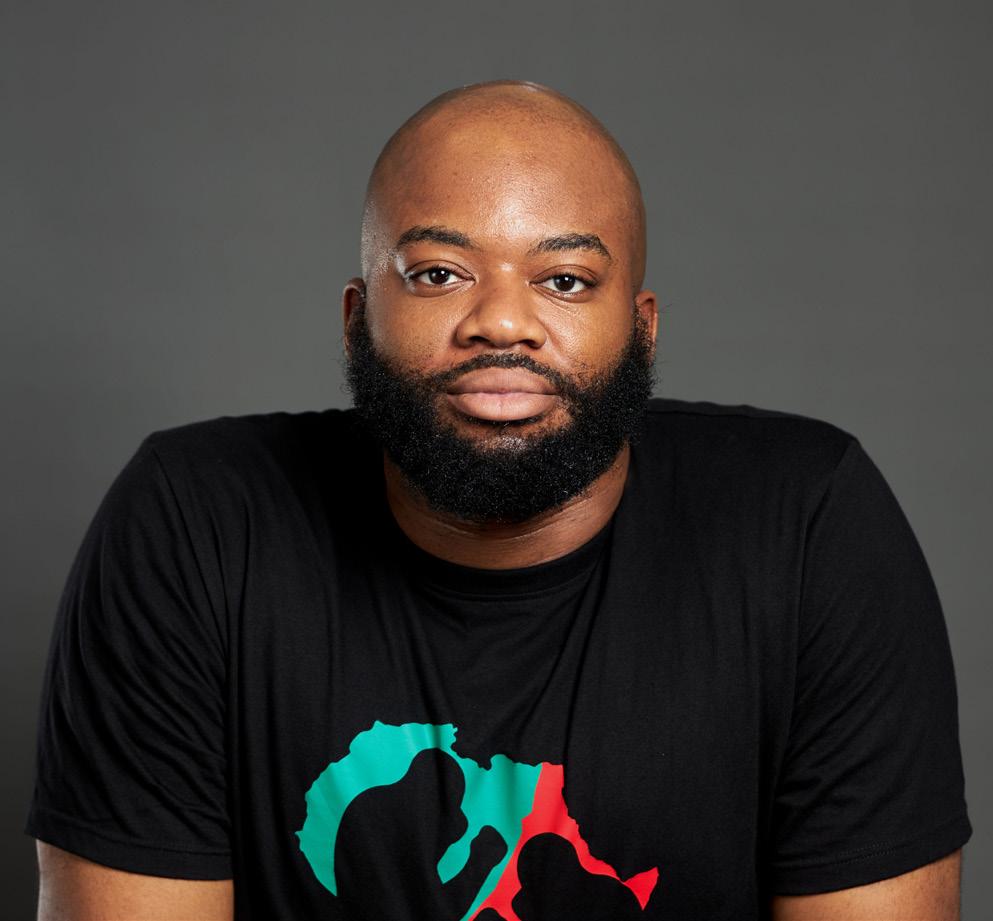
Maxwell Kalu, Founder & CEO
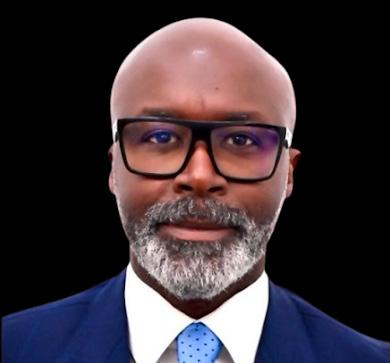
Ibrahim Sagna, Advisory Board
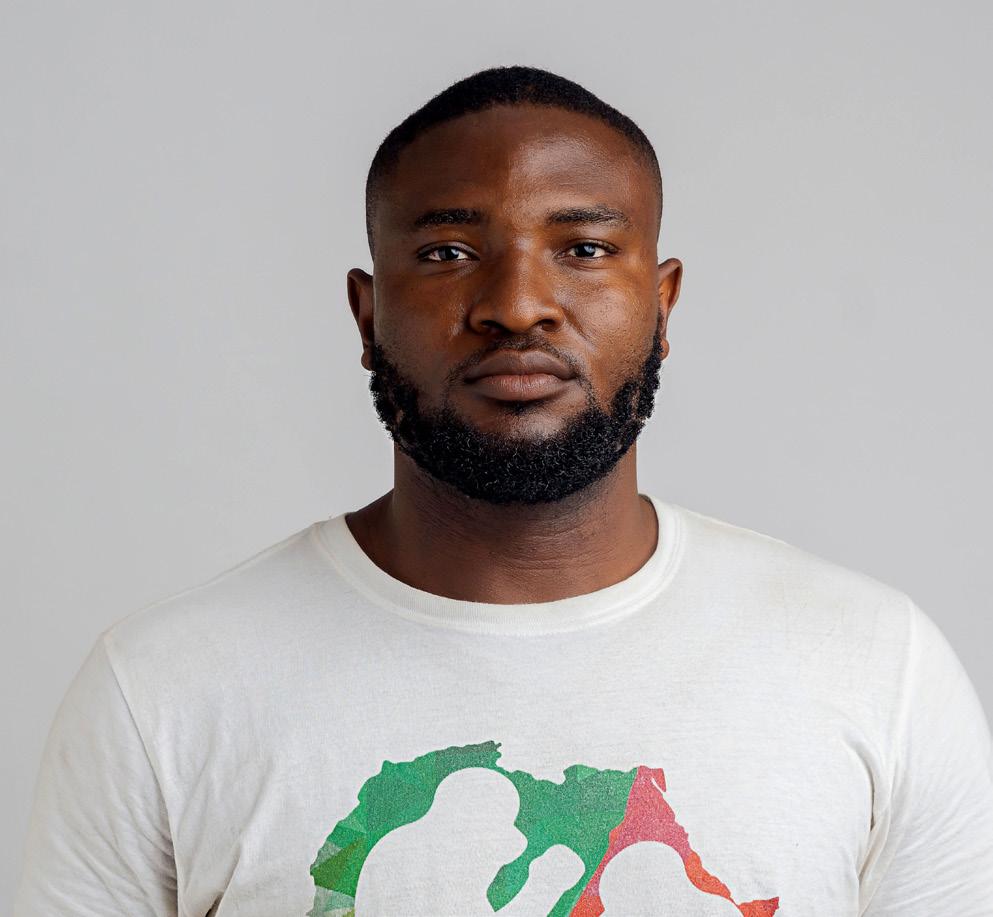
Emmanuel Okona, Operations Lead

Sandy Climan, Advisory Board
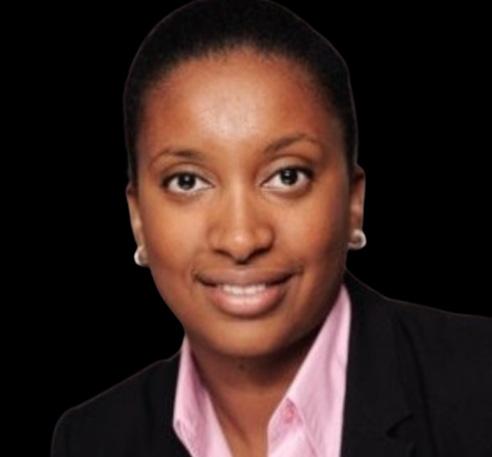
Veronique Dos Reis, Advisory Board
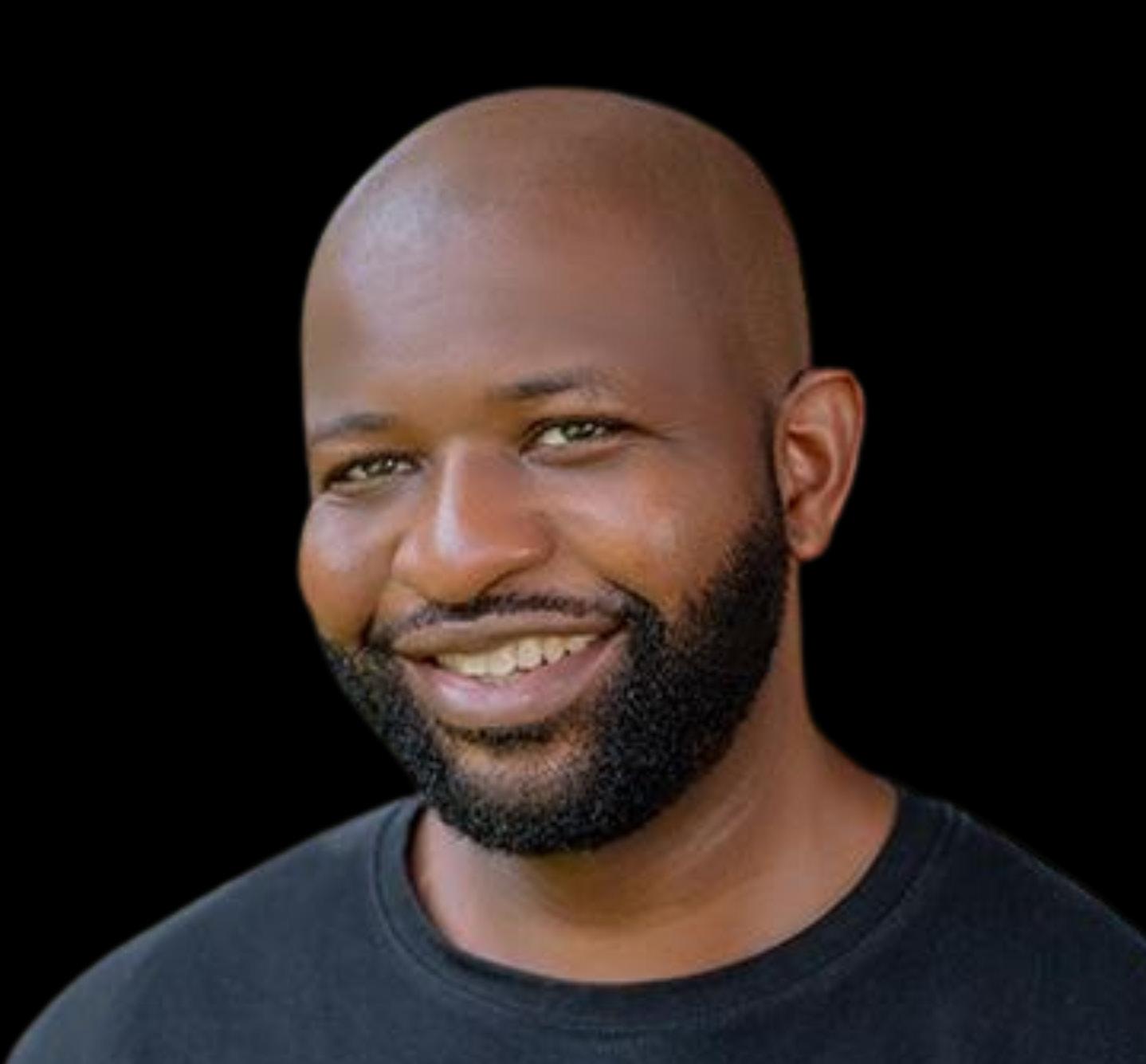
Chidozie David Okonkwo, Advisory Board
